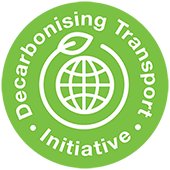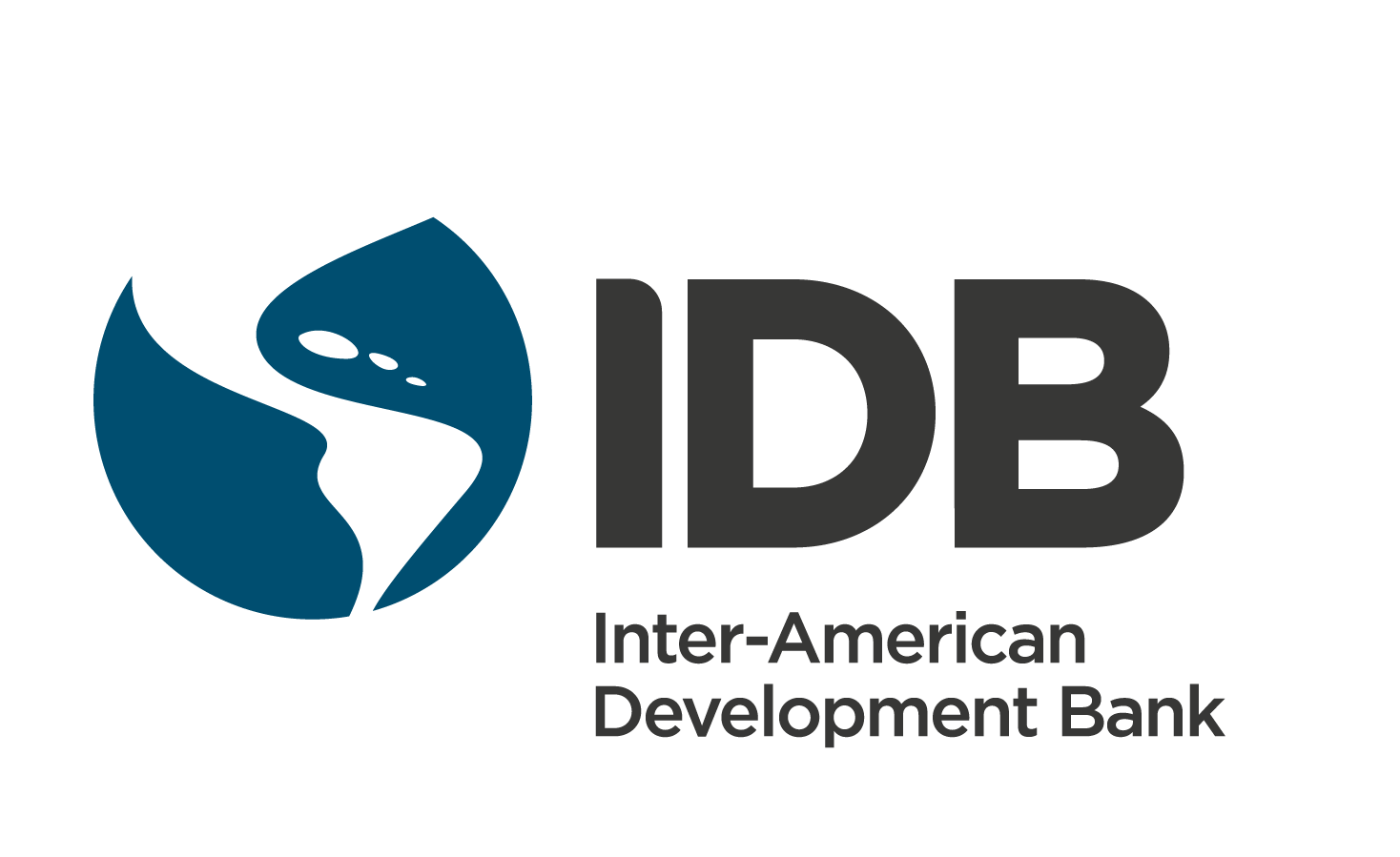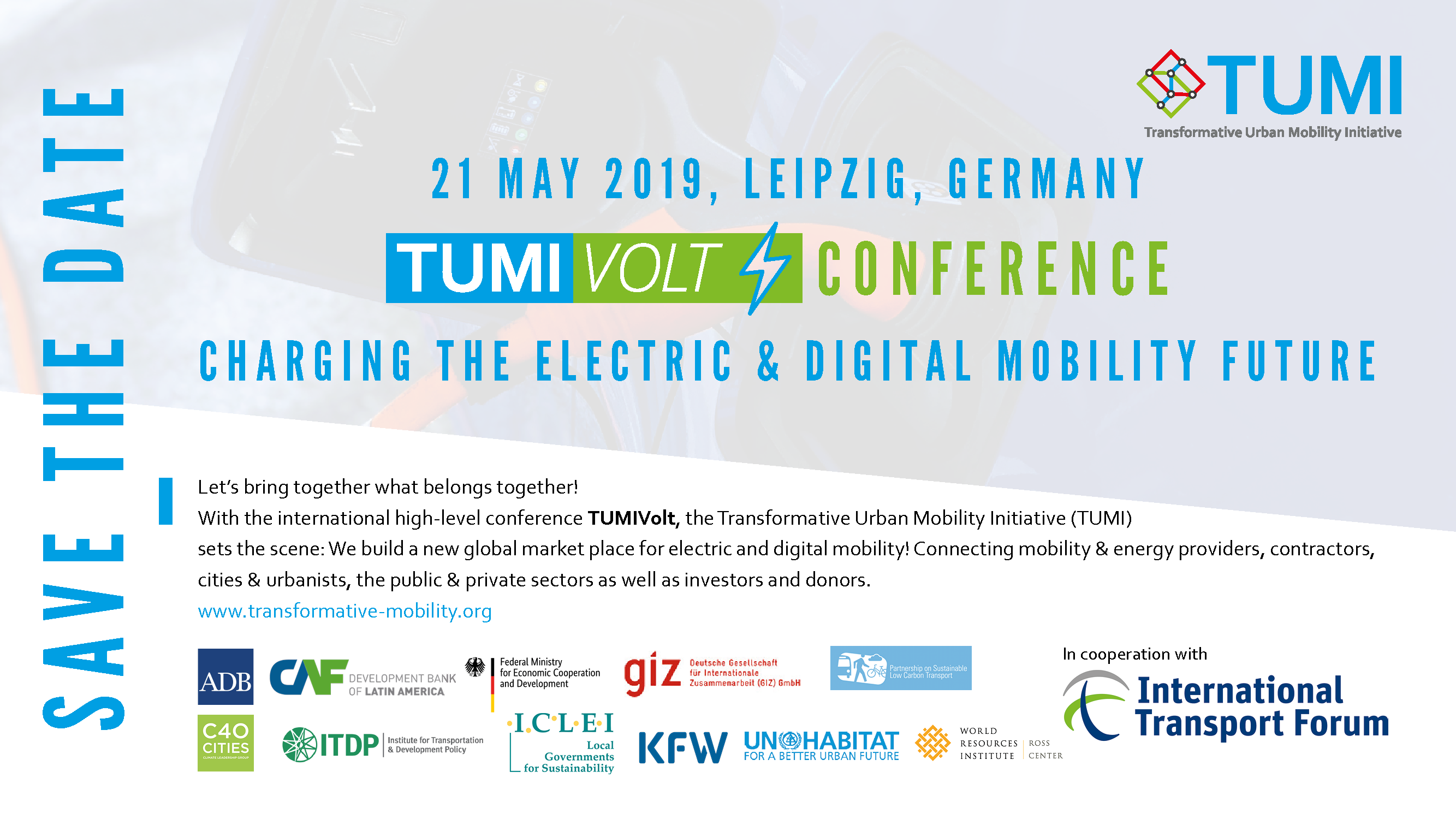
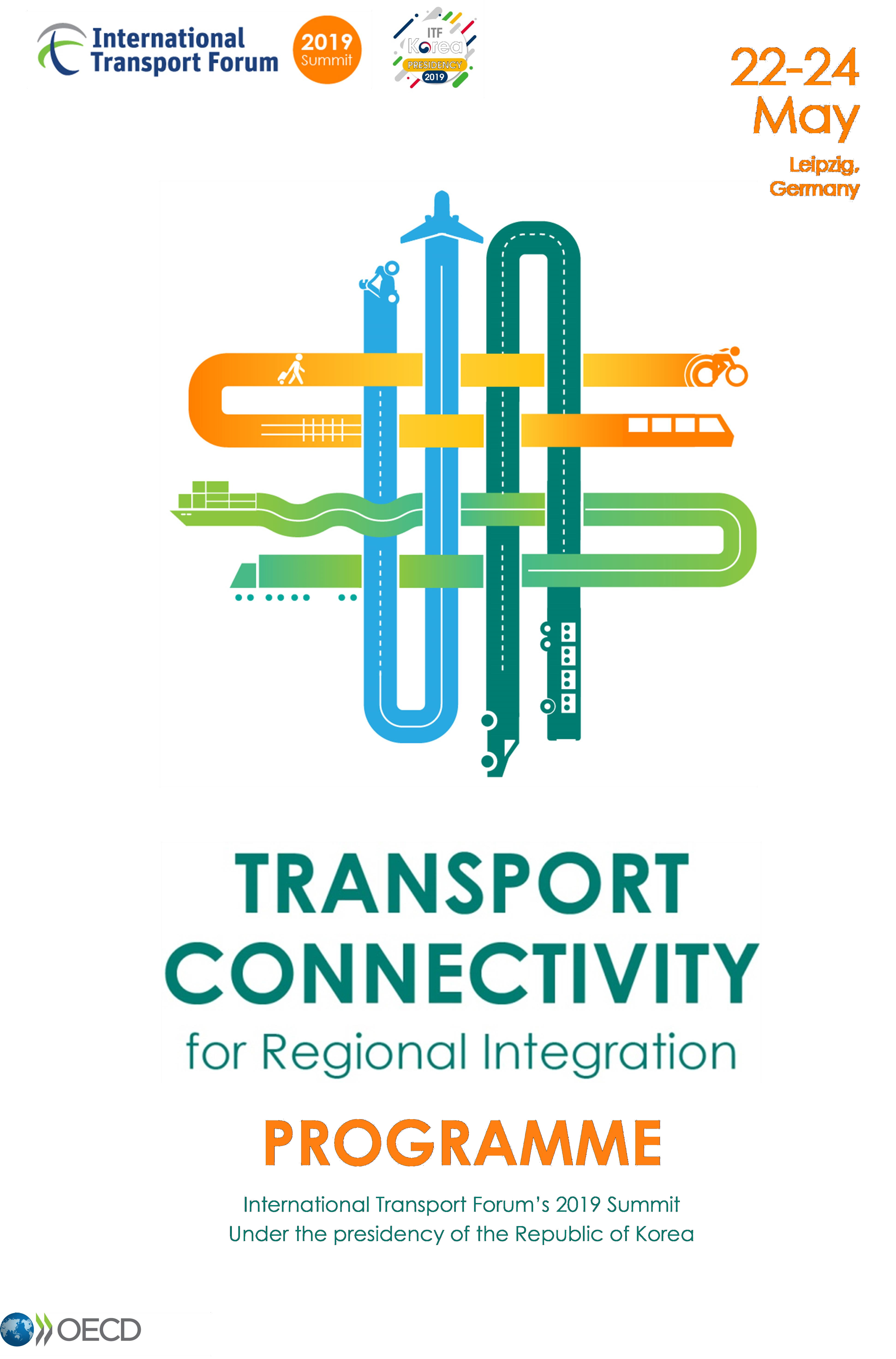
| how_to_reg | Booking required |
| Lunchtime Session | |
| location_on | Off-site |
| lock_open | Restricted participation |
- how_to_reg Booking required
TUMIVolt Conference - Charging the electric & digital mobility future
Messehaus – M4
Let’s bring together what belongs together!
With the international high-level conference TUMIVolt, the Transformative Urban Mobility Initiative (TUMI) sets the scene:
We build a new global market place for electric and digital mobility! Connecting mobility & energy providers, contractors, cities & urbanists, the public & private sectors as well as investors and donors.
Registration here: https://transformative-mobility.org/news/tumivolt [2] . Please direct your questions or interest to info@transformative-mobility.org [3]
- how_to_reg Booking required
- location_on Off-site
- lock_open Restricted participation
Pre-Summit Research Day
Messehaus – M3
The International Transport Forum (ITF), together with European Conference of Transport Research Institutes (ECTRI), the US Transportation Research Board (TRB) and the World Conference on Transport Research Society (WCTRS), are pleased to announce the holding of a Research Day on “Transport Connectivity for Regional Integration”. This Research Day will be held in Leipzig, Germany on Tuesday 21 May 2019, in conjunction with the International Transport Forum’s 2019 Annual Summit (22- 24 May 2019).
Objectives
The objective of the Pre-Summit Research Day is to bring together top academics researchers and practitioners to present and discuss topics relevant to the Summit’s theme, providing highly valued input to the Summit’s core programme.
It is critically important that research results are brought into practice, especially considering the pace with which our transport system is currently evolving. The Research Day offers a great opportunity to exchange ideas not only between researchers, but also with representatives from governments, cities, and other decision makers.
Focus
While the 2019 ITF Summit on “Transport Connectivity for Regional Integration” will discuss connectivity in all of its dimensions (physical, institutional, digital, modal, operational) and will cut across individual/passenger travel and freight logistics and supply chains, the Research Day will limit its scope to specific topics. In particular, in order to plan their actions and investments for the coming years, policy makers need the input from researchers to provide knowledge and solutions on how to:
- Harness the potential of transport innovation for better connectivity;
- Ensure that connectivity solutions are sustainable and equitable;
- Improve freight and logistics management;
- Enhance regional integration through better air connectivity.
Draft Programme
Moderation of the Day: Tatiana Samsonova (International Transport Forum, OECD, France)
9h30-9h45: Welcome and Introduction of the Research Day
Young Tae Kim (International Transport Forum, OECD, France)
9h45-10:00: Connectivity for regional integration – challenges, opportunities, perspectives
Dr. Jaehak OH President, National Transport Strategy Planning – The Korea Transport Institute, KOTI on behalf of ITF 2019 Presidency Country
10h00-11h20: Innovation and New Mobility Services
Moderator: Clara de la Torre (European Commission, DG RTD)
- Strategies to better link rural areas to European and national transport networks by innovative public transport services
Alexander Nitschke (Ministry for Regional Development and Transport of Saxony-Anhalt, Germany)
- Automated, electric, connected and shared urban mobility: New business roles for service provision and workforce training
Evangelos Bekiaris (Centre for Research and Technology Hellas/Hellenic Institute of Transport, Greece)
- Development and demonstration of a block chain-based MaaS platform for smart mobility service implementation
Youlim Jang (Korean Transport Safety Authority, Korea)
11h20-11h40: Coffee Break
11h40-13h00: Sustainable Transport Solutions
Moderator: Karen Vancluysen (POLIS Network, Belgium)
- National Transport Policy and Cities: Policy instruments and governance reforms for compact and connected urban growth
Catarina Heeckt (London School of Economics, LSE Cities, United Kingdom)
- Economic viability for an innovative sustainable transport solution – used diesel bus conversion into electric bus
Kristīne Malnača (Transport and Telecommunication Institute, JSC Ferrus, Latvia)
- Mobility budgets as a sufficiency approach in transport policy
Florian Lorenz (Lorenz Consult, Mobalance Research Consortium, Austria)
13h00-14h00: Lunch break
14h00-15h20: Freight and Logistics Management
Moderator: Robert Missen (European Commission, DG MOVE)
- Transport connectivity barriers to regional integration: a complex network perspective
Agustina Calatayud (Inter-American Development Bank) and and John Mangan (Newcastle University)
- Missing links for real world truck platooning
Wolfgang Schildorfer (University of Applied Sciences Upper Austria, Department for Logistics, Austria)
- Problems and solutions when establishing an urban multi-use transshipment terminal
Tale Ørving and Olav Eidhammer (Institute of Transport Economics, Norway)
15h20-15h40: Coffee Break
15h40-17h00: Air Connectivity
Moderator: Jagoda Egeland (International Transport Forum, OECD, France)
- A Global Air Cargo Network Model for Connectivity Analysis
Alessandro Bombelli (Delft University of Technology, the Netherlands)
- Prospects of China' Aviation Liberalization and Impacts on Connectivity/Integration in East Asia and World
Tae Hoon Oum (WCTR Society, Sauder School of Business, University of British Columbia, Canada)
- Measuring Air Connectivity: A Global model for policy-makers
James Wiltshire (International Air Transport Association, Switzerland)
17h00-17h30: Key points and conclusions of the Research Day
Tatiana Samsonova (International Transport Forum, OECD, France) with Sessions Chairs
Download the full agenda and background information:
Participants are welcome to attend a reception organised by Leipzig Halle Airport starting at 18:00. Additional information on the program of the event, transport and registration can be found here: http://2019.itf-oecd.org/innovation-effectiveness-and-efficiency-humanitarian-air-cargo [6]
Practical Information
Date: The Research Day will take place on Tuesday, 21 May, one day prior to the official opening of the ITF Summit on Wednesday, 22 May.
Where: The venue for the Research Day is Leipziger Messe, Leipzig.
Who can attend: The event is aimed at researchers and policy makers involved in transport connectivity for regional integration questions.
All participants must be registered to the ITF Summit. Practical considerations depend on your current situation, as detailed below.
- If you are registered to the ITF Summit, you can attend the Research Day at no extra cost, up to the capacity of the venue. Please email Caroline Alméras at itf2019researchday@gmail.com [7] .
- If you are not registered to the ITF Summit, a special registration fee of € 450 will apply. This will cover attendance at both the Research Day as well as the subsequent three Summit days. The fee covers meals (lunches and dinners, except the evening of 21 May) and transport during the Summit days (22, 23 & 24 May and airport transfer). To register, please email Caroline Alméras at itf2019researchday@gmail.com [7]. If space is available, you will receive in return a registration code to use on the ITF Summit registration portal: http://2019.itf-oecd.org/ [8].
- if you are accepted as speaker or if you are a moderator/organizer of the Research Day, you will receive a complementary pass for the Research Day and Summit. If not received yet, please request the complementary pass to Ms. Assia Djahafi at assia.djahafi@itf-oecd.org [9] and register then on the ITF Summit registration portal http://2019.itf-oecd.org/registration [10] with the given code.
Please note that there will not be a shuttle service to the venue, Leipziger Messe. The Leipziger Messe is easily accessible by public transport from the city centre and official hotels. More information here [11] .
ITF Summit badges will be ready for collection at CCL Registration Desk.
Contacts
- ECTRI: Caroline Alméras, caroline.almeras@ectri.org [12]
- ITF: Tatiana Samsonova, tatiana.samsonova@itf-oecd.org [13]
- TRB: William Anderson, WBAnderson@nas.edu [14]
- WCTRS: Lóri Tavasszy L.A.Tavasszy@tudelft.nl [15]; Thierry Vanelslander thierry.vanelslander@uantwerpen.be [16]
8th International Public Transport Forum
Messehaus – M1
Welcome Lunch (12:30) Sponsored by MOLIT, Republic of Korea
Opening and Welcome Remarks (13:45)
- Vice Minister, MOLIT Republic of Korea
- Young-Tae Kim, Secretary General, ITF
Photo Session (13:50)
Keynote Speeches (14:00)
- Ulf Middelberg, Management Director, Leipzig Public Transport Authority.
Connectivity Masterplan for Leipzig and its Region
- Jaehak Oh, President of KOTI,
Korea’s Initiatives in Public Transport & Smart Mobility
Session 1 (14:30)
Travel behaviour change and shared mobility: Impacts on public transport
Will travel behaviour change significantly in the next decade? Will public transport services change significantly in the next decade? How might demand for public transport services evolve in the next 10 years? How should public transport supply and regulation adapt?
Chair: Andrew Jackson, Managing Director, Consulting Jackson Ltd.
Speakers :
- Kiron Chatterjee, Associate Professor, University of West England
Travel Behaviour: What has Changed?
- Regina Clewlow, CEO, Populus.ai
Weak signals and outliers – emerging behavior and how it might matter
- Joohwan Jung, CEO, Kakao Mobility
Shared mobility in Korea: Impacts & social conflicts
Discussants:
- Clayton Lane, Mobility Specialist, WhereIsMyTransport
- Robert Valkovic, Principal Transport Specialist, ADB
- Tom Worsley, Visiting Fellow, University of Leeds
Coffee Break (15:50)
Session 2 (16.20)
Effective policy frameworks for responding to changing environments and demand
How have governments responded to changing demand on public transport systems to ensure they provide the services needed by citizens at affordable cost? What contracting arrangements have proved most successful and most flexible?
Chair: Guangzhe Chen, Senior Director, World Bank Group
Speakers:
- Ricardo Hurtubia, Professor, Universidad Catolica de Chile
The experience of reforming bus concessions in Santiago de Chile
- Graham Currie, Professor, Monash University, Melbourne
Good practice in concessions for public transport
- Nak Moon Sung, Chief Director, The Korea Transport Institute
Integrating Public Transport System in Seoul Metropolitan Region: Experience & challenges
Discussants:
- Hironori Kato, Professor, University of Tokyo
- Dong Wook Cho, Vice President, Korea Smart Card Company
- Jin -Hyuk Chung, Vice-chairman, Korean Society of Transportation
Session 3 (17.40)
Regional connectivity: Public transport and strategic development
Public transport is lifeblood of employment markets. Investments in metro and rail systems can transform regional economies. But which kinds of investment deliver the biggest benefits what can research usefully bring to decision-making?
Chair: Stephen Perkins
Speakers:
- Jean-Claude Prager, Director, Societé du Grand Paris,
Le Grand Paris Express, autonomous regional metro, economic and urban impacts
- Jin Hyuk Jung, Vice-chairman, Korean Society of Transportation
Seoul metropolitan rapid railway: Impacts on people’s life & urban development
- Jooyeon Lee, Associate Research Fellow, KOTI
15 years of KTX operation: Impacts and future direction
Discussants:
- Chia-Lin Chen, Professor, University of Liverpool.
- Emile Quninet, Professor, Paris School of Economics
- Robert Guild, Chief Sector Officer, ADB
Practical Information:
Date: The 8th International Public Transport Forum will take place on Tuesday, 21 May, one day prior to the official opening of the ITF Summit on Wednesday, 22 May.
Where: The venue for the forum is Leipziger Messe, Leipzig.
Registration: If you are registered to the ITF Summit, you can attend the International Public Transport forum at no extra cost, up to the capacity of the venue. To confirm your attendance, please email Mr. Youngkook Kim at Youngkook.Kim@itf-oecd.org [18] to register for this Forum.
Please note that there will not be a shuttle service to the venue, Leipziger Messe. The Leipziger Messe is easily accessible by public transport from the city centre and official hotels. More information here [11] .
ITF Summit badges will be ready for collection at CCL Registration Desk.
- how_to_reg Booking required
- location_on Off-site
Innovation, Effectiveness and Efficiency in Humanitarian Air Cargo
logos.PNG [19]
Akkon Hochschule, Leipzig/Halle Airport and Volga-Dnepr Group are pleased to invite you to an exciting and dedicated full-day workshop focusing on the needs of the International Humanitarian and Disaster Response Community.
Agenda
Block A
12:00 - 16:00 (including a break): Learning & Workshop
- Aviation standards in Humanitarian sector
- Airport management in Humanitarian sector
- Logistics for Emergency Medical Teams (EMT)
- Logistics in Civil Protection Response
- Private vs Public Sector QA panel
Block B
17:00 - 19:30: “Open Planes” & Loading Demonstrations
- IL76-TD-90VD and AN124-100 loading tours
- Loading demo of EMT kits from German NGOs
- Loading demo of SAR Helicopter (TBC)
- Get together
Block A is a mixture of presentations, discussions, working groups and panels with facilitators from the academic community, the commercial sector and NGOs/government. Block B is designed to showcase the unique capabilities of the aircraft and technical teams, and also for the humanitarian community to network and ask questions of the private sector transport community.
Practical Information:
Where: The venue is Leipzig/Halle Airport.
Who can attend: Any participant registered for the Summit.
How to register: Please indicate your interest in attending the event (either the whole event or Block B only) via the contact mentioned below.
Fee: There is no fee for this event.
Transport: Transportation will be provided. Details will be announced upon registration.
Security: Registered participants will be asked to send a copy of their passports to the event organizers prior to the event for security clearance reasons no later than 17 May 2019.
Contact:
Ms. Cornelia Duncan
Marketing Manager
Mitteldeutsche Flughafen AG
Phone: +49 341 224 1167
Cornelia.Duncan@mdf-ag.com [20]
- how_to_reg Booking required
- location_on Off-site
BMW Plant
Meet at Transport Information Desk, Level -1
- how_to_reg Booking required
- location_on Off-site
Walking tour of Leipzig - from16:45 and from 18:00
Meet at Transport Information Desk, Level -1
- lock_open Restricted participation
TRB International Cooperation Committee Mid-Year Meeting
Hall 5, Level +1
.
- lock_open Restricted participation
SuM4All Steering Committee
Messehaus – M2
Coffee at ITF Stand
ITF Stand
Open Stage Café
ITF Stand
- lock_open Restricted participation
EU Africa Task Force on Connectivity
Messehaus – M1
Towards safe, efficient and sustainable road freight transport – infrastructure and vehicle fleet perspective
Hall 4, Level +1
Road freight transport is forecast to continue to grow substantially in most countries. The anticipated increase in infrastructure capacity will not, on its own, be sufficient to accommodate projected traffic levels at socially acceptable cost. Approaches that relate to both, the vehicle fleet and the infrastructure are needed. Using high capacity vehicles (HCVs) is one of the most efficient measures to absorb some of this growth and to reduce CO2 emissions. In hand with this come new policies for extending the life of road assets.
This session is based on recently published ITF-reports which are results from two working groups: Policies to Extend the Life of Road Assets, By mitigating deterioration caused by trucks (PELRA) and High Capacity Transport: Towards Efficient, Safe and Sustainable Road Freight.
The session examines international experience with HCVs and discusses policies to extend the life of road assets by mitigating the road infrastructure wear. Measures designed to improve the environmental performance of road freight can often contribute to longer life span of road assets. The consequences of these approaches on other transport modes, industry and society are discussed.
Loes Aarts
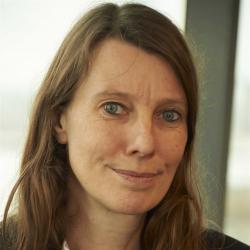
Jointly responsible for the strategic agenda of the road administration on transport and logistics. The current focus is on network use optimization and sustainable freight transport.
Involved in policy-making on weights and dimensions of commercial vehicles and in the assessment of Field Operational Tests with automated and cooperative vehicles on public roads. Loes Aarts is President of the International Forum for Road Transport Technology (IFRTT) and former chair of the OECD-ITF working group Policies to extend the life of road assets.
Alan McKinnon
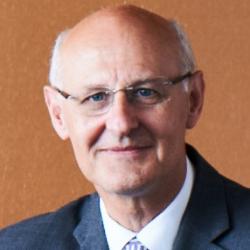
Alan McKinnon is Professor of Logistics in the Kühne Logistics University, Hamburg. A graduate of the universities of Aberdeen, British Columbia and London, he has been researching and teaching in freight transport / logistics for 40 years and published extensively on many different aspects of the subject. Much of his research in recent years has been on the decarbonisation of logistics. Professor McKinnon has been an adviser to several governments, parliamentary committees and international organisations, including the ITF/OECD, the World Bank, European Commission, the United Nations and the IPCC. He was chairman of the World Economic Forum’s Logistics Council and the Transport Advisory Group of the EU Horizon 2020 research programme.
Jerker Sjögren
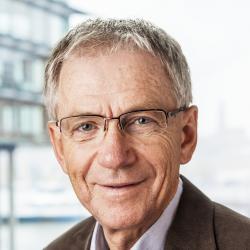
Jerker Sjögren is economist (Umeå University/School of Economics, 1972). He has a long career within both public and private sector as management consultant or head of different organizations. Since beginning of 2016 Jerker Sjögren is an independent consultant within his own company, Jesjo Konsult. From March 2011 Jerker Sjögren has been responsible for building up and operating CLOSER, a new Swedish arena for transport efficiency, focusing on innovation and research. High Capacity Transport (HCT) is one of three focus areas for CLOSER. Since 2015 Jerker Sjögren has been chairman for the ITF/OECD working group on HCT. Jerker Sjögren was earlier Senior Adviser at the Swedish Ministry of Enterprise, Energy and Communications responsible for strategic logistics issues and coordinator of the Swedish Logistics Forum.
Miglé Blusevičiūtė

At the European Association for Forwarding, Transport, Logistics and Customs Services (CLECAT), Ms Miglė Blusevičiūtė is focusing on road and maritime transport policy issues at the European level, aiming to integrate sustainability aspects into logistics supply chain. Prior to that, Miglė worked on environmental and sustainability issues pertaining to road transport at the European headquarters of the Goodyear Tire and Rubber Company and also as a consultant for Hyundai Motor Europe. Holding a Master’s degree in EU policy studies, she gained experience at the European Commission’s Directorate-General for Internal Market and Industry, as well as the World Trade Organisation.
Christopher Walker
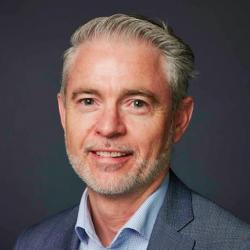
Responsible for executive leadership and strengthening relations with partner universities involved in the research and teaching of public administration, public sector leadership and research into public policy and regulation. Chris has had a 20 year career in the Australian public service working in senior executive positions in health, transport and central agency portfolios. Chris’s PhD examined regulatory reform in the Australian trucking sector and current research examines the international transfer of models of road transport regulation, as well as the implications of digital regulation and compliance in the road transport sector.
Mobility as a Service (MaaS): Success factors for integrated mobility solutions?
Hall 2, Level +1
This “MaaS-terclass” will engage with participants to chart out the policy role in guiding the design and uptake of “Mobility as a Service” (MaaS).
Transport faces an enduring paradox – at peak hours and in the busiest areas, our cities and networks are both congested and awash with unused capacity. Against this backdrop are people who simply want to get from point A to point B in the most responsive, flexible, reliable and affordable way. As in other areas of their lives, users want to have the option to choose the most convenient ways and value their trip experiences.
Transport has been a siloed world of independent and separately operated and regulated services, but the future of urban mobility may now be more aligned with other “as-a-service” models where actors engage directly to access the services that provide them with the most value. The number of actors offering new transport services is growing as technology creates new possibilities in accessing shared resources, automating vehicle systems and connecting supply and demand. MaaS digitally joins up different transport, information and payment services into a smooth and reliable customer-driven experience. In this “MaaS-terclass”, we will explore role for policy in facilitating its implementation and uptake.
Key questions:
• What is Mobility as a Service? A product? A concept? An ecosystem?
• What is the core value proposition that MaaS can deliver to people?
• How well positioned are service providers to deliver on that proposition?
• Where is MaaS today? Where might it be tomorrow?
• Are there key areas where concrete policy action (on standards, on regulation, on legal aspects, on the allocation of space…) can overcome roadblocks to broad adoption of MaaS?
• What principles should be embedded in the regulatory framework around MaaS?
Philippe Crist

Philippe Crist is Advisor for Innovation and Foresight at the International Transport Forum (ITF) at the Organization for Economic Cooperation and Development (OECD). He coordinates the research of the ITF’s Corporate Partnership Board and manages international research projects for the ITF’s 59 Member countries. His current work focuses on disruptive urban mobility scenarios and examines how car-based and active mobility, public transport and taxis must adapt to these. He is also leading work on Data science and public policy within the ITF investigating new strategies to leverage knowledge derived from new and rapidly growing data sources to improve transport decision-making. In 2016 he won the Danish Cycling Embassy's Leadership Award for Cycling Promotion. His other work currently looks at managing mobility in rapidly growing urban areas, assessing GHG emission strategies in the transport sector, as well as investigating national transport asset and network management strategies. He also does much of his best thinking on a bicycle.
Timothy Papandreou

Timothy is a key advisor and thought leader on the future of transportation and automation, with a strong track record to deliver innovative multi-modal transportation and land development projects. He is the Founder of City Innovate, a smart city accelerator. Timothy was the Strategic Partnerships lead at Waymo/Google X, helping commercialise a Moonshot company while being fully immersed in AI with the world's most experienced automated vehicle technology. Prior experience includes Chief Innovation Officer for San Francisco’s transportation agency, leading the US Smart City Challenge, the agency’s Strategic Work Plan that met its 50% private auto/50% sustainable mode share goal 3 years early and the Vision Zero traffic safety programme.
Krista Huhtala-Jenks

Krista Huhtala-Jenks has been working on developing the revolutionary Mobility as a Service concept for several years. At MaaS Global, the world's first true MaaS operator with its Whim service, Krista leads a dual role as the Head of Go-to-Market, and Head of Ecosystem & Sustainability. She focuses on rapidly expanding Whim to new markets, working closely with all stakeholders interested in making MaaS a reality. Having previously worked on MaaS policy and legislation at the Finnish Ministry of Transport and Communications she strongly believes that MaaS is the win-win solution for people's mobility needs and the society. Besides her day job, Krista moonlights as a hard core metal head.
Karen Vancluysen

Karen Vancluysen was appointed as Secretary General of the Polis network in September 2014, after having been the network's Research Director for 8 years. Since 1998, she has been involved in European urban transport networking and policy activities and many EU research and innovation projects covering a wide range of urban mobility topics. Polis is the leading European network of cities and regions focussing on urban transport innovation. For 30 years already, members have been working together to develop sustainable and innovative urban mobility solutions for the city of today and tomorrow. Polis supports the exchange of experiences between European local and regional authorities, facilitates the dialogue with other actors of the transport sector, including industry and research, and acts as the urban mobility voice of its members towards the European institutions. The network engages in debates around topical issues such as MaaS, automated transport, electromobility, and shared mobility services.
Paulo Humanes

Paulo Humanes is Head of Global Strategic Business Development at PTV Planung Transport Verkehr AG, a German company specialising in software solutions and consulting services for traffic and transportation, mobility, and logistics. His international career includes over a decade in the UK in transport planning with Stirling Maynard and as Technical Director in Jacobs Consulting, he has an extensive background in transport planning and modelling. A passionate transport professional, he is interested in the future of mobility and how it will impact lives, businesses, government, and cities. He is also an Advisory Board Member of Newcastle University. In his role with PTV, he applies his expert knowledge in traffic and transport planning in his work with governments, businesses and cities, helping them to rise to future challenges and develop better, greener and safer transport solutions on local, regional, national and global scales. A Portuguese national, Paulo speaks six languages fluently.
Prosperity through connectivity: Tourism and regional sustainable development
Hall 3, Level +1
This panel will examine the impact of increased connectivity on tourism growth and sustainable development. Specifically, it will showcase examples of where tourism has increased as a result of improving connectivity. Tourism has experienced steady growth in the last decade and this trend is expected to continue, with an average annual increase of 3.3% in international tourism forecast by the United Nations World Tourism Organization (UNWTO). Improved transport connectivity facilitates more tourism, especially in remote areas and on islands. Yet unchecked growth in the number of visitors can bring negative impacts such as depleting resources, increasing CO2 emissions, and higher living costs for people residing in the area. Tourists also have different mobility needs from those of residents, and peaks in tourist traffic can disrupt services for locals.
Key questions:
- How can tourism support local economies (e.g., agro- tourism, small- and medium-sized enterprises, local products)?
- Can the mobility needs of tourists and local residents align?
- How can sustainable tourism deal with the problem of seasonal peaks?
Ali Aslan
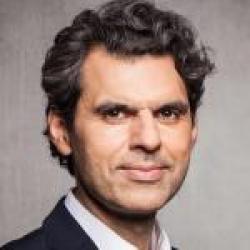
Ali Aslan is an international television presenter, moderator and journalist. His career has included working for global news networks such as CNN, ABC News, Channel News Asia and Deutsche Welle TV.
Adrian Gane
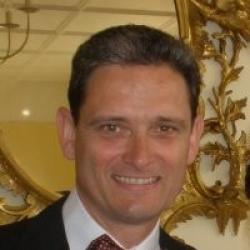
Mr. Adrian Gane has been Regional General Manager in Sales, at Etihad Airways since July 2012. Mr. Gane is currently CEO of a major lobbying organisation in the UK, and a senior Government Affairs Director and advisor with Etihad Airways based in Abu Dhabi. Mr. Gane served as Managing Director of Amadeus Gulf from April 14, 2011 to July 2012. He served as Commercial Director and a Member of the Management Board at OnAir Switzerland Sarl since February 2006, with extensive commercial and political experience gained in a variety of roles held internationally (Far East, Middle East, Europe) and in the UK.
Angus McKenzie
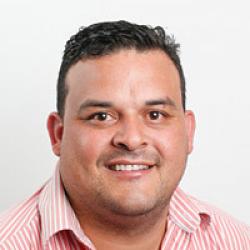
Angus Mckenzie has joined the government as a councillor of the city of Cape Town since August 2016.
Sigurður Ingi Jóhannsson
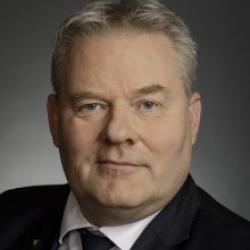
Sigurður Ingi Jóhannsson is the Minister of Transport and Local Government of Iceland. He has been in this position since 2017. He is also the Minister for Nordic Co-operation and Chairman of the Progressive Party.
Alain Dupeyras
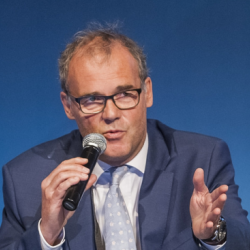
As Head of the Regional Development and Tourism Division in the OECD (Organisation for Economic Co-operation and Development) Centre for Entrepreneurship, SMEs, Regions and Cities, Alain Dupeyras oversees OECD work on tourism, on rural policies and on other regional and territorial issues. Alain works closely with Members and Partners, the private sector and other international organisations to develop policies that address major challenges in all these policy areas. The Tourism Committee [21], the Regional Development Policy Committee [22], and the Working Party on Rural Policy [23] are key OECD fora to assist governments in the assessment and improvement of these policies. Through the Working Party on Tourism Statistics [24], Alain also contributes to an improved measurement and analysis of tourism services.
Jaehak Oh
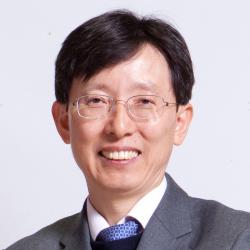
Dr. Oh obtained his PhD degree for transport studies at University College London in 1990. Since 1992, he has been working for The Korea Transport Institute (KOTI). Dr. Oh was Vice President and Director of National Transport Strategy Planning at KOTI during 2011 to 2017. During the last 27 years, Dr. Oh has project managed more than 70 of KOTI’s transport projects. During 2006 to 2011, He was the project manager of the national R&D, “Transport Connectivity and Transfer technology Development.” He has played a key role in innovating transport systems for green growth and formulating infrastructure policies for the Korean government. Since 2009, Dr. Oh has been the research project manager of High-Speed Rail(KTX) economic development which aims to promote regional and urban development through KTX station area development. At present, he is a SC Member of WCTR-Society and an Editorial Board Member for the WCTR Journal of Transport Policy. Also, Dr. Oh is Chairperson of International Scientific Committee of EASTS(East-Asian Society of Transportation Studies).
- lock_open Restricted participation
Meeting of the Ministers of Transport and Heads of Delegation from the BSEC Member States
MPA3, Level 0
- how_to_reg Booking required
- lock_open Restricted participation
Commuter Mobility – Collaboration for New Intermodal Solutions
Messehaus – M6
Today, commuting is a major challenge for cities, companies, and their employees. It is becoming increasingly severe due to human settlement and mobility patterns, congestion, absence of sufficient public transport, driving bans in cities and many other factors. Only a joint effort of affected cities, mobility solution providers, companies, science, and the commuters itself can solve this problem. To balance these heterogeneous interests, it requires a broad dialogue addressing the following question: How can the involved parties cooperate to develop new sustainable and intermodal mobility solutions for commuting?
To discuss this question and learn from existing best practices, the Volkswagen Group’s Sustainability Council brings together the perspectives of city authorities, commuters, and mobility providers.
You want to join the event? Please apply via email to Ms. Pauline Sprenger, Office of the Sustainability Council: pauline.sprenger@volkswagen.de [25]. Please point out your interest and professional relation to the topic
- lock_open Restricted participation
TUMI Challenge Winner Workshop
Messehaus – M8
Open Stage Café
ITF Stand
The Belt & Road: Delivering Sustainable Transport for EurAsia
Hall 4, Level +1
logos.PNG [26]
Launched in 2013, the Belt and Road Initiative (BRI) aims to alter the socio-economic landscape along the Silk Road linking Asia and Europe. The first phase of these multi-billion dollar infrastructure investments focuses on developing and modernising means of transport covering highways, railways, ports, airports and pipelines. This “Modern Silk Road”, for which China invests several billions of dollar a year, aims to make Eurasia a thriving economic trading area. To advance this cause, China has entered into bilateral agreements with most of the countries from Eastern Europe to Southeast Asia.
Current estimates for required funding range between USD 4 to 10 trillion for the coming decade. To date, most financing has been provided by governments and multilateral and commercial banks. However, as this is finite, private investors, typically reluctant to allocate resources to riskier long-term projects, must be sufficiently encouraged to invest and yields must therefore be attractive. Besides funding, substantial reforms, such as improving financial integration and trade liberalisation, must be implemented within and outside of China. This session contributes to the BRI debate by discussing key questions: 1. What measures must be implemented to incentivise investments in these projects? 2. What is required to create conducive environments for the development of sustainable transport infrastructure projects? 3. How can international cooperation and coordination be maximised?
SESSION ORGANISER: International Road Federation (IRF)
SESSION CO-ORGANISERS:
- China Highway and Transportation Society (CHTS)
- Black Sea Economic Commission (BSEC)
Speakers:
- Mehmet Cahit TURHAN, Minister of Transport and Infrastructure, Turkey
- Kiran K. KAPILA, Chairman, International Road Federation
- Guangzhe CHEN, Senior Director, Transport Global Practice, World Bank Group
- Michael B. CHRISTIDES, Secretary General, BSEC
- Nicolas BEAUMONT, Senior Vice President Sustainable Development and Mobility, Michelin Group
- Supee TERAVANINTHORN, Director General, Investment Operations, AIIB
- Adefunke ADEYEMI, Regional Director for Advocacy and Strategic Relations for Africa, IATA
- Julien GHATA, Partner, PwC Luxembourg
- Susanna ZAMMATARO, Director General, International Road Federation
Speakers Biographies:
Programme overview available: ![]() here [29]
here [29]
Contact person: Ms. Julia Funk – Data and Programme Manager, IRF at jfunk@irfnet.ch [30]
- lock_open Restricted participation
Transport and climate: moving forward from COP24
MPA2, Level 0
The 24th session of the Conference of the Parties (COP24) to the United Nations Framework Convention on Climate Change (UNFCCC) in Katowice, Poland delivered the Katowice Rulebook, implementing the Paris Agreement. This important moment marks the beginning of a process where countries need to start stepping up actions for climate protection and to define a clear policy pathway, especially for transport, where it remains one of the most challenging sectors to decarbonise. Currently, only 60% of the Nationally Determined Contributions (NDCs) have included any kind of transport measures and these measures often lack a comprehensive approach to address the challenges in reducing carbon emissions in passenger and freight transport. In addition, there are many other transport initiatives that have not been captured in NDCs, especially in emerging economies, where NDCs are often not aligned with national transport plans. It is recognised that governments will continue to have a significant role to play and the policies they implement will determine the direction of where the sector and its many stakeholders need to go. The transport sector has to start acting fast to provide the enabling framework for the sector to scale up action, by using available cost effective solutions to significantly reduce transport emissions, create co-benefits and change behaviour through the provision of reliable, safe and affordable services at the same time.
This roundtable serves as a platform for transport Ministers to focus on some of the above mentioned issues with leaders in the private sector and international organisations.
Joint Statement of Ministers participating in the Ministers’ Roundtable on Transport and Climate: Moving forward from COP 24 at the International Transport Forum’s Annual Summit on 22 May 2019
Melinda Crane

Melinda Crane is Chief Political Correspondent at Deutsche Welle-TV and hosts the talk shows "Quadriga" and "People and Politics" She was Senior Producer of "Global Players" on CNBC. She has moderated a wide variety of podium discussions and conferences for public organisations and private sector clients. Among her areas of expertise are transatlantic politics; women, family education issues; climate and environment; business and economics; new media and the internet. Crane holds a Juris Doctorate from Harvard Law School and a Doctoral Degree in political economy from the Fletcher School of Law and Diplomacy.
Stientje van Veldhoven

Stientje van Veldhoven began her career in 1997 as personal assistant to Elly Plooij van Gorsel, a member of the European Parliament for the People’s Party for Freedom and Democracy (VVD). From 1999 to 2003 she served as an innovation policy officer at the Ministry of Economic Affairs. From 2003 she worked at the Permanent Representation of the Netherlands to the European Union as first secretary for research policy and as scientific and technological attaché. In 2007 Ms Van Veldhoven became a policy advisor at the European Commission, focusing on the coordination of intergovernmental initiatives. From 2009 to 2010 she was unit coordinator for the Zuidvleugel Randstad region at the Ministry of Economic Affairs. On 17 June 2010 Ms Van Veldhoven became a member of the House of Representatives for Democrats ’66 (D66), with policy responsibility for issues including sustainability, mobility, climate and energy, development cooperation, and agriculture, nature and food quality. From 2012 to 2017 she served as a member of the presidium and secretary to the D66 parliamentary party. On 26 October 2017 Stientje van Veldhoven was appointed State Secretary for Infrastructure and Water Management in the third Rutte government.
François Davenne
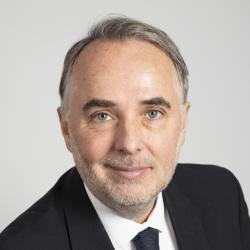
François Davenne, a graduate of the Ecole Nationale Supérieure des Télécommunications d’Evry in 1988 and of the Ecole Nationale d’Administration (ENA) in 1999, has always promoted interdisciplinarity as a key factor for success. After experience in international satellite telecommunications, his first assignments were in the housing sector and required strong financial and legal skills. He was involved in policy and regulation of the sector, and managed key operational programmes, in particular for the city of Paris. After three years in the French Ministry of Transport working on railway safety and regulations, with the emphasis on European regulations, he was elected Secretary General of OTIF in 2012, where, since 1 January 2013, he has promoted interdisciplinarity and partnership building to expand the uniform regulations for international carriage by rail. He’s currently Deputy Director General of UIC, the International Union of Railways. He will become Director General of the organisation end of June 2019.
Umberto de Pretto
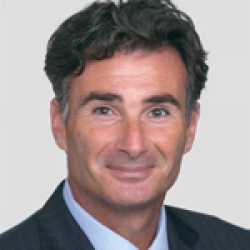
Umberto de Pretto is the Secretary General of the International Road Transport Union (IRU). He joined the IRU in 1995 as Head of Economic Affairs. He then became Policy Coordinator and Head of Strategy, and was appointed Deputy Secretary General in 2002. His vision looking forward to 2020 is that the IRU will lead the road transport industry in embracing innovation and making sure that the industry is ready for the challenges and opportunities ahead. After graduating from Ottawa’s Carleton University in Political Science, Economics and International Relations, he worked as a Legislative Assistant for Ministers and Members of the Canadian Parliament and then moved to Paris in 1992 to take on the position of Head of the Transport Division, to be shortly afterwards named Deputy Director of the International Chamber of Commerce, responsible for International Commercial Practices and Techniques.
Erik Jonnaert
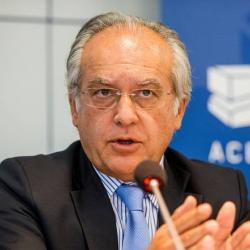
Erik Jonnaert is the Secretary General of the European Automobile Manufacturers’ Association (ACEA), a position he has held since July 2013. Prior to his ACEA appointment, Mr Jonnaert was Procter & Gamble's (P&G) Vice President for External Relations in Europe and Asia. Mr Jonnaert began his career at Linklaters law firm, before moving on to gain over 25 years of public and regulatory affairs, communications, and stakeholder relations experience in various leadership roles at P&G. In addition to his ACEA posting, Mr Jonnaert is currently chairman of the steering committee of EATA, the European Automotive and Telecom Alliance, which aims to accelerate the deployment of connected and automated driving. Jonnaert is also on the Supervisory Board of ERTICO (advocating intelligent mobility solutions) and on the Board of the Mobility as a Service (MaaS) Alliance. A Belgian national, Mr Jonnaert holds masters in law from the University of Ghent, Belgium and from Harvard Law School, USA.
Violeta Bulc
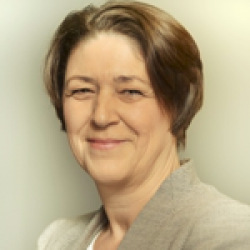
Violeta Bulc is the European Commissioner for Mobility and Transport. She has been appointed to the office in November 2014. As Commissioner, Ms Bulc has placed priority on digitalisation and innovation in transport. Ms Bulc brings a diverse set of expertise and professional experiences to the role. Immediately prior to her appointment to the European Commission, she was the Deputy Prime Minister of Slovenia, with ministerial responsibility for development, strategic projects and cohesion. From 2013 to 2014, Bulc was Chief of the Program Committee of the SMC Party, Slovenia. She was also CEO of Vibacom Ltd, Sustainable Strategies and Innovation Ecosystems from 2000 to 2014. Between 1999 and 2000 she was Vice-President of Telemach, a telecommunications provider. A Slovenian citizen, Violeta Bulc earned a Bachelor's degree in Computer Science and Informatics at the Faculty of Electrical Engineering, University of Ljubljana, Slovenia, as well as a Master's degree in Information Technology at the Golden Gate University of San Francisco.
Abdelkader Amara
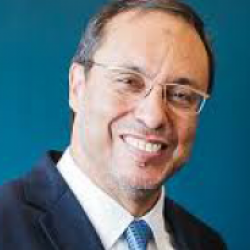
Tomas Eneroth
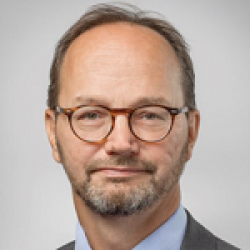
Tomas Eneroth is Minister for Infrastructure of Sweden since July 2017, responsible for transport and infrastructure in the Ministry of Enterprise and Innovation. He studied sociology and political science at Växjö University College. Before being appointed Minister for Infrastructure Mr Eneroth was Parliamentary Group Leader for the Social Democratic Party (2014–2017). Mr Eneroth has been a Member of Parliament since 1994 and during this time he has filled several different positions in different policy areas, including Chairman of the Committee on Social Insurance and Deputy Chairman of the Committee on Industry and Trade. He was a political adviser in the Ministry of Education between 1996 and 2002, and State Secretary in the same Ministry in 1999.
Gloria Hutt Hesse

Ms. Hutt Hesse holds a degree in Civil Engineering from the Catholic University of Chile and she has completed International Finance and Business Administration programs at Georgetown University. She was a Professor for the Master’s in Public Policy program in the School of Economics and Business of University of Chile. From June 2014 to January 2018, she was a partner of Quiz Consulting, specializing in transportation studies. She was a member of the board of directors of the Mejillones port facilities company Complejo Portuario Mejillones and consultant for the think tank Consejo de Políticas de Infraestructura and think tank Horizontal. For 12 years, Ms. Hutt Hesse was a partner and Regional Director for Latin America at Steer Davies Gleave, a prestigious British consulting firm specializing in transportation. There she was in charge of operations in Chile, Colombia, and Puerto Rico, and later broadened the presence of the company to Brazil and Mexico. She was a founder member and also the coordinator and general manager for the Evópoli political party. From 2010 to 2014 she acted as Transportation Viceminister. During her office, she coordinated the creation of the National Transportation Policy and development master plans for public transportation and national port and rail systems, proposing a long-term vision for Chilean transportation. A year ago Gloria Hutt Hesse became Minister of Transport and Telecommunications in Chile. In her spare time, she does gardening and follows her passion of designing sewing.
Cecile Texier
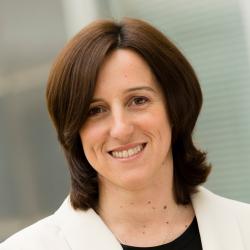
Cécile Texier is the Sustainability & CSR Vice-President of Alstom, a key player in the transport sector, developing and delivering sustainable solutions focused on shared and electrical mobility. Cécile drives the Sustainability, CSR and Climate strategy, 3-year plan and policies, local communities investment programs, sustainability in marketing activities, extra-financial reporting and dialog with stakeholders. In 2018, she was also appointed Global Diversity Champion of the Company.
She initially joined Alstom Group as Environment Health and Safety analyst in 2005 to manage corporate Energy and CO2 programs. She had previous experience as environmental auditor at KPMG, leading assessments of environmental issues in the frame of merger and acquisition projects and verification of extra-financial data, and at the French National Institute for Environment and Risks (INERIS) where she started her career as environmental management consultant in 1997. She is also a Board member of the Alstom Foundation.
Cécile Texier holds a Civil Engineer degree from Ecole des Mines de Saint-Etienne, France.
Rafał Weber
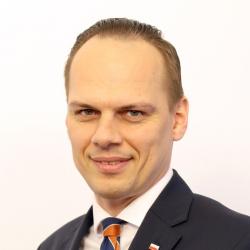
Rafał Weber is responsible for matters related to road transport, public roads and road safety. Since 2015, he is a member of the Parliament. There, he is a member of the parliamentary committee of infrastructure and national defense commissions.
From 2014 he was the deputy director of the Provincial Traffic Center in Tarnobrzeg (Poland). In 2010-2014 and 2014-2015, the councilor of the City Council in Stalowa Wola (Poland). Mr. Weber is a graduate of the Higher School of Law and Administration in Rzeszów (Poland)
Dragos-Virgil Titea
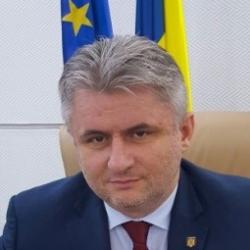
Dragos-Virgil TITEA’s third tenure as Secretary of State at the Ministry of Transport Romania started in 2018. His successive appointments rely on his in-depth interdisciplinary education and professional career in public/ private administration in the transport field, encompassing transport law, aviation and rail sectors and not only.
Dragos-Virgil TITEA holds a JD/LLB degree with the Bucharest University-Faculty of Law, along with post-university certifications in civil aviation security- airport access, monitoring and supervision, civil aviation internal quality audit and security management, as well as in internal affairs, classified information protection, security and governance.
His professional career comprises extensive mandates as a legal/administrative manager at the Romanian Administration of Air Traffic Services (ROMATSA R.A.), and a member of the Administration Board/Shareholders General Assembly at ROMATSA, as well as at the Romanian National Railway Company and the Telecommunications Society of the Romanian National Railway Company.
Saša Dalipagić
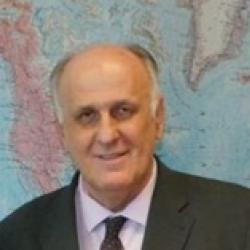
Saša Dalipagić was born on 20 May 1950 in Kakanj. He attended primary and secondary school (Gymnasium) in Mostar and graduated from the Road Transport College in Zagreb in 1975 earning the degree as road transport engineer.
1997 – 2015 until he was appointed Deputy Minister of the Ministry of Communications and Transport of Bosnia and Herzegovina he worked with the Ministry of Transport and Communications of the Herzegovina-Neretva Canton as Inspector for Road Traffic and Supervision of the Construction and Maintenance of Road Infrastructure. He has also been engaged as Traffic Court-Appointed Expert, having completed in that capacity a large number of expert reports for the courts in this Canton.
James Grabert
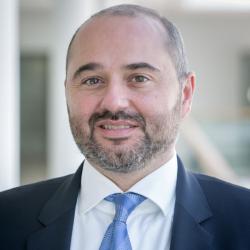
Mr. Grabert has worked for the United Nations Climate Change Secretariat (UNFCCC) for more than 20 years. He heads the Sustainable Development Mechanisms Programme of the UNFCCC, leading the work on market-based approaches to climate change mitigation. Prior to 2006 he served as a greenhouse gas emissions specialist and worked in numerous expert groups of the United Nation's Intergovernmental Panel on Climate Change. In addition, he also currently leads the secretariat’s work on Global Climate Action in supporting Non-State-Actors’ efforts towards the Paris Agreement. Before joining the United Nations, he was an industry and regional analyst for the World Economic Forum in Geneva, Switzerland.
Mr. Grabert holds a B.A. in Economics and International Relations from Wheaton College, Masters of International Economics from the Institut de Hautes Études Internationales in Geneva, and has undertaken post-graduate studies in Management at Stanford University, University of Navarra (IESE) and London Business School, and in Development at Harvard University.
Connecting vehicles and infrastructure
Hall 2, Level +1
Connected vehicles communicate with infrastructure and other vehicles surrounding them to provide the driver with information for travel decisions. This session will focus on connectivity technologies that will transform road transport in the coming years, including vehicle-to-vehicle (V2V) and vehicle-to-infrastructure (V2I) technology. It will examine issues for passenger as well as freight traffic, including technological requirements for connectivity, international standardisation, safety and enforcement implications. Possible funding sources for implementation will also be discussed.
Key facts:
- Vehicle connectivity is paving the way for enhanced navigation, real-time traffic and parking information, streaming info-tainment and integration between dashboards, smartphones and wearable devices. (International Organization for Standardization, On the road to transport connectivity, https://www.iso.org/news/2016/09/Ref2114.html [33])
- Up to 84% of annual vehicles sold globally in 2035 could be connected and/or autonomous according to market forecasts. (Transport Systems Catapult, Market Forecast for Connected and Autonomous Vehicles, July 2017 https://assets.publishing.service.gov.uk/government/uploads/system/uploads/attachment_data/file/642813/15780_TSC_Market_Forecast_for_CAV_Report_FINAL.pdf [34]
Lead questions:
- What are the technological and standardisation requirements for connected vehicles of the future? What is the role of international cooperation in this?
- What are possible funding options for implementation of V2V and V2I connectivity in passenger and freight transport fleets?
- How can related communication, data storage and sharing be accomplished in a controlled and secure manner?
- What are the enforcement implications and how could the connectivity of the vehicles be used to enhance their operational performance as a part of the supply chain? What are the benefits to logistics?
Background reading:
- Smart Use of Roads, ITF Report, https://www.itf-oecd.org/smart-use-roads [35]
- Data-led Governance of Road Freight Transport: Improving Compliance, https://www.itf-oecd.org/data-led-governance-road-freight-transport [36]
- Commercial Vehicle On-Board Safety Systems Roundtable, https://www.itf-oecd.org/commercial-vehicle-safety-systems-roundtable [37]
- Safer Roads with Automated Vehicles? https://www.itf-oecd.org/safer-roads-automated-vehicles-0 [38]
- Automated and Autonomous Driving, https://www.itf-oecd.org/automated-and-autonomous-driving [39]
- Policies to Extend the Life of Road Assets, https://www.itf-oecd.org/policies-extend-life-road-assets [40]
Shailen P. Bhatt
As its chief executive, Bhatt promotes policies that advance the development and deployment of intelligent transportation technologies throughout the United States. He has testified before Congress about the positive safety impact of intelligent transportation technologies, including connected and automated vehicles. Bhatt is a leading voice in transportation on technology’s ability to save lives and reduce crashes on U.S. roadways. He speaks extensively about the importance of vehicles to communicate with each other and all roadway users as one of the best ways to improve safety and reduce congestion. He is also passionate about reducing transportation’s carbon footprint and the need to provide seamless mobility and transportation choices to people no matter where they live. Bhatt was appointed as a transportation leader by three governors. While serving as Executive Director for the Colorado Department of Transportation (CDOT), the agency launched the Road X program, which is focused on deploying innovative technology solutions such as connected vehicles and teaming with the private sector to shape the future of transportation. Prior to CDOT, Bhatt was Cabinet Secretary for the Delaware Department of Transportation. He was also a presidential appointee at the U.S. Department of Transportation. Bhatt has served as Chair of the Board of Directors for the National Operations Center of Excellence (NOCoE) and the Executive Committee of the I-95 Corridor Coalition; he was a member of the World Economic Forum’s (WEF) Global Agenda Council on the Future of Automotive and Personal Transport. Bhatt graduated summa cum laude with a Bachelor of Arts in Economics from Western Kentucky University. He lives with his wife and two young daughters in Washington, DC.
Patrick Mallejacq
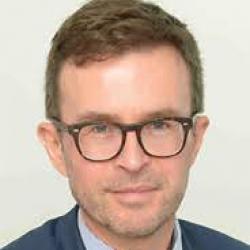
Information pending.
Axel Threlfall
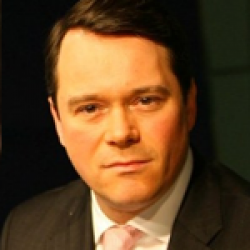
Axel Threlfall is Editor-at-Large, Reuters, based in London. Alongside his editorial duties, he hosts high-profile engagements and thought leadership events for and on behalf of Reuters and Thomson Reuters, such as the Newsmaker series and the World Economic Forum news programs in Davos. He was previously Lead European Anchor for Reuters Digital Video. Prior to joining Reuters, Axel spent four years as an anchor for CNBC in London. Before that, he was an editor with The Wall Street Journal in New York and a news reporter for Bloomberg in London. He has also advised businesses and NGOs on their dealings with the international media. Axel is frequently asked to moderate events for international organizations, including the United Nations and the OECD. He has a BA in History from Durham University and a postgraduate degree in journalism from City University, London.
Christoph Bergdolt
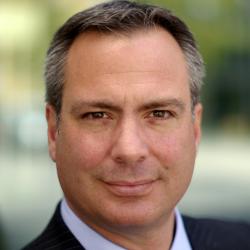
Mr. Christoph Bergdolt is the Vice President for Product and Technology in Swarco AG Group. In his position he is responsible for all the product companies of the ITS division and corporate Innovation and Technology. Areas of activities cover most of the ITS domain ranging from smart mobility, urban traffic control, highways and tunnels, car parking, e-mobility to public transport.
Christoph has more than 20 years’ experience in managing director positions, global sales and business development in the transportation sector. He hold executive positions at Siemens (Member of the Siemens One Board Airports / Transportation), Atos and other global enterprises. He has a cross-cultural sensitivity with broad academic foundation, in Law and Master in Business Administration (International Business).
Jean Baptiste Burtscher

Women's travel and participation in regional transport systems
Hall 3, Level +1
Travel patterns of women differ from those of men in developed and developing countries alike, and in both rural and urban areas. These differences are evident in modal choice, time of travel, trip purpose, routes, trip chains, and travel distance. These distinctions stem from systemic differences in access to resources, household responsibilities, travel preferences, safety concerns, and social norms surrounding mobility for women. As a result, women experience unique time and resource constraints with respect to their travel activities. They also face safety and security issues that are more acute and pervasive than for men. Socio-economic gender disparities tend to be self-reinforcing, as mobility itself provides access to sources of income, education, healthcare, and other opportunities. A better understanding of women’s travel patterns can inform transport planning and policies which enhance connectivity for women and help them reap the social and economic benefits associated with it. This session will examine gender-specific aspects of mobility.
Key facts:
- Although men make longer trips, women make more frequent, shorter and more complex trips , with many cities reporting over 50% of public transport trips being made by women;
- Women prefer trains, buses, taxis and walking or cycling, over private vehicles (Ng, W. and A. Acker. (2018) Understanding Urban Travel Behaviour by Gender for Efficient and Equitable Transport Policies, International Transport Forum Discussion Paper No. 2018-01) https://www.itf-oecd.org/sites/default/files/docs/urban-travel-behaviour-gender.pdf [41] [41]
- In Europe, the transport workforce is 22% female despite women accounting for 46% of the total workforce (https://www.governmenteuropa.eu/women-in-transport-eu-platform-change/85971/ [42])
Lead questions:
- What economic and social benefits will improved mobility for women bring?
- What actions should be prioritised to improve the mobility needs of women in developed countries?
- What actions should be prioritised to enhance mobility for women in less developed economies?
Background reading:
- Women’s Safety and Security: A Public Transport Priority https://www.itf-oecd.org/sites/default/files/docs/womens-safety-security_0.pdf [43]
- Understanding Urban Travel Behaviour by Gender for Efficient and Equitable Transport Policies https://www.itf-oecd.org/sites/default/files/docs/urban-travel-behaviour-gender.pdf [41]
- Gender and Transport https://www.itf-oecd.org/sites/default/files/docs/dp201111.pdf [44]
- Women’s Issues in Transportation: Bridging the Gap https://wiit-paris2014.sciencesconf.org/conference/wiit-paris2014/pages/Proceedings_The_5th_International_Conference_on_WIiT.pdf [45]
- Research on Women's Issues in Transportation, Volume 1: Conference Overview and Plenary Papers https://www.nap.edu/catalog/23274/research-on-womens-issues-in-transportation-volume-1-conference-overview-and-plenary-papers [46]
- Gender Equality and Mobility: Mind the Gap! Civitas Policy Note https://civitas.eu/sites/default/files/civ_pol-an2_m_web.pdf [47]
Juliette Foster

Juliette Foster is an award-winning broadcaster and businesswoman. She has worked for the BBC (British Broadcasting Corporation) and has anchored flagship programmes at Bloomberg Television, Sky News and BBC World Service Television.
Diego Diaz
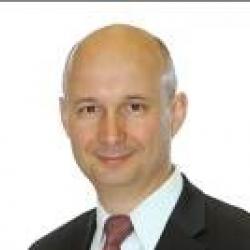
Since 2013 Diego DIAZ has held the positions of President of SNCF International and International Director of SNCF MOBILITES.
Diego DIAZ began his career as a Product and Project Manager for Thales Avionics before joining Bombardier Transportation where he held several leadership positions in the Services and Light Rail Divisions before being appointed Director of Strategy, Marketing & Sales.
Mr. Diaz holds a Master of Science in Aeronautics & Astronautics from M.I.T (Massachusetts Institute of Technology), a Master of Business Administration from the M.I.T Sloan School of Management and a French engineering degree from the “Institut Supérieur de l’Aéronautique et de l’Espace” (ISAE-SUPAERO).
Karla Gonzalez Carvajal

Ms. Carvajal is a specialist in the subject of negotiation and alternative dispute resolution. She obtained her MBA with an emphasis on Marketing at the University of San Diego in California and holds a degree in Law from the University of Costa Rica. Her work over the last decade has provided her with extensive experience in the area of public service. She has specialized in Alternative Conflict Resolution Methods and is currently a member of the Centro Internacional de Arbitraje y Conciliación Comercial (International Center for Arbitration and Commercial Conciliation). She was a member of Road Safety Committee, which is led by the Fundación Internacional de Automovilismo (International Automobile Foundation). As Minister of Public Works and Transportation in Costa Rica she achieved a fourfold increase in the investment of public works, the resumption of construction at the national airport, which was stalled due to conflicts, the transformation of the driver’s license system, the promotion of a new traffic law and the inclusion of road safety components in the design of road infrastructure. She is currently Transport Sector Manager for South Asia at the World Bank. Karla is also leading the Gender Task Force for the World Bank's Transport Global Practice, working to operationalize the gender agenda in the transport sector.
Bipasha Baruah
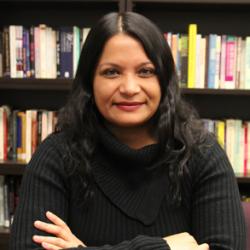
Dr. Bipasha Baruah conducts interdisciplinary research on gender, development and globalization; women and work; and social, political and economic inequality. Dr. Baruah’s current research focuses on climate change and social justice. It aims broadly to understand how to ensure that a global low-carbon economy will be more gender equitable and socially just than its fossil-fuel based predecessor. Dr. Baruah frequently serves as an expert reviewer and consultant on gender equality issues to international development and environmental protection organizations.
Mattias Landgren

Mattias Landgren is State Secretary to Tomas Eneroth, Minister for Infrastructure. He holds a Master’s Degree in Law from Uppsala University. Prior to serving as State Secretary, Mr. Landgren held various positions at the public sector, including: Political Adviser at the Prime Minister's Office, Chief Legal Officer at the Building Workers' Union and Collective Agreements Expert and Head of Section at Unionen (trade union). He has also worked as a law lecturer at Stockholm University.
Heather Thompson
Heather Thompson brings decades of experience in the environmental non-profit sector to ITDP. Most recently, she has been advising clients, including the Asian Development Bank, The David and Lucile Packard Foundation, and the Environmental Defense Fund, in designing strategies that will have a large-scale impact. Ms. Thompson has been involved with ITDP for many years, initially as co-founder and Vice President of programs for ClimateWorks. Ms. Thompson has sat on the ITDP board of directors for the last eight years, serving as board chair for the last two years. She holds a MSc in environmental economics from the University of York, U.K. and a B.S. in biological sciences from the University of California, San Diego.
Rana Kortam
Rana Kortam is the Global Head of Women’s Safety Public Policy for Uber. She leads the company’s efforts around the issue, working with governments, researchers, NGO’s, as well as local policy teams in over 60 countries Uber operates in. Her passion is ensuring women find a safe ride and a flexible way to earn income in Uber.
A born and raised Egyptian, she previously led public policy for Uber in Egypt, shaping the future of regulation for the budding tech ecosystem.
A techie at heart, Rana graduated Summa Cum Laude from the American University in Cairo with a Bachelor’s degree in Electronics Engineering. Prior to joining Uber, she led developer relations for Google in the Middle East and Africa, before managing public policy for British American Tobacco in North Africa. Straddling the worlds of tech and policy, and a serious zeal for everything women empowerment, she is an expert in several public policy issues, including women’s mobility and safety, gender based violence especially in transport and public spaces, gender equality and economic enablement.
- lock_open Restricted participation
RFC Rhine-Alpine CEOs' Meeting
- lock_open Restricted participation
Mobility Board of Stewards
Hall 5, Level +1
- Lunchtime Session
Leading the change towards greater diversity in transport
MPA4, Level 0
A Summit networking lunch around the theme of “Leading the change towards greater diversity in transport” will be jointly hosted by ITF, TUMI Women Mobilize Women, International Association of Public Transport (UITP) and the World Bank (Partners).
This session aims to highlight the role of leaders - women and men - in transforming the sector and promoting greater diversity in transport. It will be an opportunity for all stakeholders to share current developments and recent and planned initiatives on enhancing gender diversity in transport. The outcomes of this session/ key messages will be published in the 2019 ITF Compendium on Women in Transport and in other relevant channels by the Partners.
The luncheon will gather approximately 100 participants, representing governments, international organisations, business, civil society, media and academia in order to provide a wide range of perspective on the topic and encourage exchange and debate.
The participants will be seated at round tables (8-10 participants per table); each table will be hosted by discussion leaders.
Discussion leaders:
- Muneeza Alam, Transport Economist, The World Bank
- Guangzhe Chen, Senior Director, Transport Global Practice, The World Bank
- Sandra LaFortune, Director General, International Relations and Trade Policy, Transport Canada
- Mohamed Mezghani, Secretary General, International Association of Public Transport (UITP)
- Magdalena Olczak-Rancitelli, Manger, Summit and Institutional Relations, ITF
- Vera Scholz, Director, Division Climate Change, Environment and Infrastructure, GIZ
- Cecil Texier, Sustainability & CSR Vice-President of Alstom
- Sheila Watson, Sheila Watson, Deputy Director & Director of Environment and Research, FIA Foundation
- Asa Vagland, Senior Advisor, Transport Markets Division, Ministry of Infrastructure Government Offices of Sweden
Ali Aslan

Ali Aslan is an international television presenter, moderator and journalist. His career has included working for global news networks such as CNN, ABC News, Channel News Asia and Deutsche Welle TV.
Guangzhe Chen
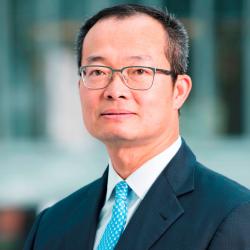
Mr. Chen assumed the role of Senior Director for the Transport Global Practice (GP), within the Infrastructure Vice-Presidency at the World Bank Group, in November 2018. In this position, he leads the formulation and implementation of strategy and programs for sustainable road, urban, rail, logistics, water and air transport, as well as key cross-cutting agendas such as road safety, climate adaptation/mitigation, gender, human capital development, disruptive technologies and financing. He has a leading role in the global Sustainable Mobility for All initiative, that gathers over 50 foremost international development organizations and key sector players to set the framework for sector coordination and development impact. Mr. Chen supports the development and delivery of knowledge and financing programs to country clients, overseeing a total portfolio of roughly $40 billion, in over 180 projects in more than 100 countries. He leads a team of some 250 specialists from over 80 nationalities, based in more than 40 countries.A Chinese national, Mr. Chen holds a graduate degree in Economics from Harvard University, USA, and B.A. in Economics from Zhongshan (Sun Yat-Sen) University, Guangzhou, China.
Cecile Texier

Cécile Texier is the Sustainability & CSR Vice-President of Alstom, a key player in the transport sector, developing and delivering sustainable solutions focused on shared and electrical mobility. Cécile drives the Sustainability, CSR and Climate strategy, 3-year plan and policies, local communities investment programs, sustainability in marketing activities, extra-financial reporting and dialog with stakeholders. In 2018, she was also appointed Global Diversity Champion of the Company.
She initially joined Alstom Group as Environment Health and Safety analyst in 2005 to manage corporate Energy and CO2 programs. She had previous experience as environmental auditor at KPMG, leading assessments of environmental issues in the frame of merger and acquisition projects and verification of extra-financial data, and at the French National Institute for Environment and Risks (INERIS) where she started her career as environmental management consultant in 1997. She is also a Board member of the Alstom Foundation.
Cécile Texier holds a Civil Engineer degree from Ecole des Mines de Saint-Etienne, France.
Mohamed Mezghani
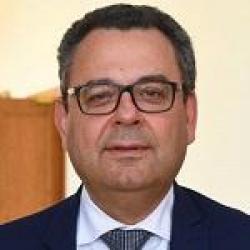
Mohamed Mezghani has been working for more than 25 years in public transport and urban mobility related fields. He has been elected Secretary General of the International Association of Public Transport (UITP) and will be taking office on 1/01/2018. He has been Deputy Secretary General of UITP the since January 2014. Until then, he has worked at UITP as Senior Manager (1999-2001) and Knowledge Director (2001-2006) chairing the department developing knowledge-related services for UITP members: professional training, research projects, thematic studies, technical advice, conferences, networking activities, information centre, etc. From 2006 till 2013, he has worked as independent consultant and Adviser to UITP on several technical assistance and training projects in Africa and the Middle-East and managed a number of projects involving numerous experts and multidisciplinary teams. Before joining UITP, M. Mezghani has been working as consultant in the French group, BCEOM, (from 1990 to 1999) more particularly in the urban mobility field. He has managed and carried out projects including policy definition, technical assistance and research activities in several countries in Europe, sub-Saharan Africa and Arab countries. During his collaboration with the French Agency for Environment and Energy Management, ADEME, (from 1988-1990), M. Mezghani carried out actions aimed at identifying and evaluating transport energy efficiency projects likely to be financed by the Agency in France. He has been graduated in Industrial Engineering (1987) from Ecole Nationale d’Ingénieurs de Tunis, Tunisia and has a Master in Transport (1988) from Ecole Nationale des Ponts et Chaussées, Paris, France.
Vera Scholz
Vera Scholz is Director Climate Change, Environment and Infrastructure within GIZ where she started to work in 1999. She is working in development cooperation since 20 years. Her areas of expertise are climate change, management of natural resources, infrastructure (energy, transport and water), voluntary social and environmental standards, corporate social responsibility and public private partnerships for sustainable development. She has been working in Asia (India) and Africa (Kenya). Vera Scholz has a master in political science with focus on international relations.
Mary Crass

Mary Crass is Head of Institutional Relations and Summit for the Paris-based International Transport Forum, an intergovernmental organisation linked to the OECD. She is responsible for the ITF’s relations with Member countries, international organisations and associations, and the annual International Transport Forum Summit in Leipzig each May https://www.itf-oecd.org/ [48]. She has contributed to the organisation’s work on sustainable urban travel, accessible transport and social inclusion, and crime and terrorism issues in transport. She served as sherpa to the ITF Secretary General on the United Nations Secretary General’s High-Level Advisory Group on Sustainable Urban Transport, and was on the drafting committee for the final report of that group delivered to UN Secretary General in October 2016.
She recently chaired the International Road Transport Association’s (IRU) Future of the Taxi Reflection Group and is currently co-chair of the Transportation Research Board’s Accessible Transportation Committee - subcommittee on Policy and Practice.
Prior to joining the OECD, Ms. Crass worked as a private consultant focusing on transport and environment issues for among others the UN Environment Programme, the European Commission and OECD, as well as private enterprise. She was previously with a U.S.-based environmental consulting firm specialising in environmental technical assistance work in developing countries and emerging economies.
Ms. Crass has a Masters Degree from the Johns Hopkins University School of Advanced International Studies (SAIS) with specialisations in international economics and energy and environment policy and a B.A. from the University of Texas at Austin.
Open Stage Café
ITF Stand
Safety for Vulnerable Road Users – New challenges of modern Mobility
Hall 4, Level +1
DEKRA logo-small.jpg [49]

Road safety is essential to the sustainability of transportation. Vehicles and roads are becoming safer, and the number of serious accidents has declined. However, there is no reason to rest on our laurels. The fact is: there are still too many fatalities and serious injuries to understand and eliminate dangers requires root cause research, which lead to concrete recommendations for action. DEKRA accident research has been dedicated to this for 40 years now.
There is a large group of vulnerable road users, like children, pedestrians or motor cyclists, who are confronted by special dangers. Often, they cannot properly assess certain traffic situation. Furthermore, the modern way of mobility includes much more challenges which has to be focused than in the past. There are new possibilities for road users to move, for example pedelecs, electric bikes and scooters. On the one hand it increases the level of mobility, but on the other hand the potential risks for accidents grow as well.
This side event provides an overview of these challenges by Clemens Klinke, Member of the Board of Management DEKRA SE. Together with international experts on road safety, current challenges of modern way of mobility will be discussed and suggestions for action will be given. You are welcome to join the discussion as part of the auditorium. "
Speakers:
- Volker Noeske, Head of DEKRA Technology Center
- Saul Billingsley, Executive Director, FIA Foundation
- Guido Ensemeier, Department Manager for traffic and urban development of Kerpen (Germany)
Moderator:
- Véronique Feypell de la Beaumelle, Manager of the Road Safety Programme, International Transport Forum
Contact person: M. Jeremy Scheibe, Research Assistant, Jeremy.Scheibe@dekra.com [50]
- Lunchtime Session
Decarbonising Transport: Towards a catalogue of effective measures
Hall 2, Level +1
The ITF’s Decarbonising Transport initiative is a global, data-driven, multi-stakeholder initiative of over 70 key stakeholders to support the transition to carbon neutral transport. It is the ITF’s major contribution to better understanding of how to ensure a low-carbon future for transport.
This initiative aims to build capacity to help close the gaps between climate commitments and carbon dioxide (CO2) reductions that mitigation actions will deliver on their strategic objectives by providing the best possible assessment of the impact of given mitigation policies.
This session will feature the ITF’s Decarbonising Transport initiative and the various related project outcomes; it will highlight existing and upcoming work streams and activities across different topics and regions.
Key facts:
- Transport activity currently contributes 23% of global CO2 emissions from fossil fuels. This share is expected to rise over coming years.
- Motorised mobility in cities is set to double between 2015 and 2050, rising by 41% to 2030 and 94% by 2050.
Key questions:
- What are the potential political pathways towards achieving decarbonisation of transport?
- What are the roles of the different transport stakeholders in achieving our goals?
- As we move forward, how can we take stock and positively inform the next round of Nationally Determined Contributions (NDCs), due in 2020?
Background:
ITF Decarbonising Transport initiative [51]
Stientje van Veldhoven

Stientje van Veldhoven began her career in 1997 as personal assistant to Elly Plooij van Gorsel, a member of the European Parliament for the People’s Party for Freedom and Democracy (VVD). From 1999 to 2003 she served as an innovation policy officer at the Ministry of Economic Affairs. From 2003 she worked at the Permanent Representation of the Netherlands to the European Union as first secretary for research policy and as scientific and technological attaché. In 2007 Ms Van Veldhoven became a policy advisor at the European Commission, focusing on the coordination of intergovernmental initiatives. From 2009 to 2010 she was unit coordinator for the Zuidvleugel Randstad region at the Ministry of Economic Affairs. On 17 June 2010 Ms Van Veldhoven became a member of the House of Representatives for Democrats ’66 (D66), with policy responsibility for issues including sustainability, mobility, climate and energy, development cooperation, and agriculture, nature and food quality. From 2012 to 2017 she served as a member of the presidium and secretary to the D66 parliamentary party. On 26 October 2017 Stientje van Veldhoven was appointed State Secretary for Infrastructure and Water Management in the third Rutte government.
Umberto de Pretto

Umberto de Pretto is the Secretary General of the International Road Transport Union (IRU). He joined the IRU in 1995 as Head of Economic Affairs. He then became Policy Coordinator and Head of Strategy, and was appointed Deputy Secretary General in 2002. His vision looking forward to 2020 is that the IRU will lead the road transport industry in embracing innovation and making sure that the industry is ready for the challenges and opportunities ahead. After graduating from Ottawa’s Carleton University in Political Science, Economics and International Relations, he worked as a Legislative Assistant for Ministers and Members of the Canadian Parliament and then moved to Paris in 1992 to take on the position of Head of the Transport Division, to be shortly afterwards named Deputy Director of the International Chamber of Commerce, responsible for International Commercial Practices and Techniques.
Gloria Hutt Hesse

Ms. Hutt Hesse holds a degree in Civil Engineering from the Catholic University of Chile and she has completed International Finance and Business Administration programs at Georgetown University. She was a Professor for the Master’s in Public Policy program in the School of Economics and Business of University of Chile. From June 2014 to January 2018, she was a partner of Quiz Consulting, specializing in transportation studies. She was a member of the board of directors of the Mejillones port facilities company Complejo Portuario Mejillones and consultant for the think tank Consejo de Políticas de Infraestructura and think tank Horizontal. For 12 years, Ms. Hutt Hesse was a partner and Regional Director for Latin America at Steer Davies Gleave, a prestigious British consulting firm specializing in transportation. There she was in charge of operations in Chile, Colombia, and Puerto Rico, and later broadened the presence of the company to Brazil and Mexico. She was a founder member and also the coordinator and general manager for the Evópoli political party. From 2010 to 2014 she acted as Transportation Viceminister. During her office, she coordinated the creation of the National Transportation Policy and development master plans for public transportation and national port and rail systems, proposing a long-term vision for Chilean transportation. A year ago Gloria Hutt Hesse became Minister of Transport and Telecommunications in Chile. In her spare time, she does gardening and follows her passion of designing sewing.
Clara de la Torre

Since 1 February 2016, Clara de la Torre is appointed Director for 'Transport' in the Directorate-General for Research & Innovation at the European Commission, marking the forth assignment at such position in the course of last 8 years. Previously, starting in 2014, she was responsible for the dossier 'Key Enabling Technologies', following a 3-years' appointment as Director in the field of 'Research and Innovation.' In her first post as a Director, from 2008 to 2010, she was in charge of 'Inter-institutional and legal matters related to the Framework Programme' at the European Commission.
After a couple of years in private sector, her professional career was focussing on the research policies which became the springboard to working opportunities at the European Commission in 1987. In the late 90's, she was dealing with 'National Research Policies & Intergovernmental Cooperation.' She was also working at the EU Joint Research Centre both in Brussels and Seville, where she was Advisor to the Director of the Institute for Prospective Technological Studies.
Clara de la Torre has a degree in Economics and Business Administration from the Universidad Autónoma of Madrid.
Sharon Masterson
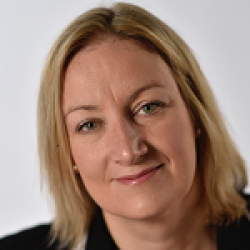
With over 20 years’ international experience in the technology and transportation and sectors, Sharon Masterson currently works with the International Transport Forum (ITF) at the Organisation for Economic Cooperation and Development (OECD), an intergovernmental organisation of 59 member countries to facilitate global dialogue for better transport. In her role with the Corporate Partnership Board, the ITF’s platform for engaging with the private sector, she works with leading global enterprises to ensure transport policy discussions are enriched with a business perspective. Prior to joining the OECD in 2009, she spent ten years in commercial and operational management positions in Groupe Air France, Paris and Dublin and worked as Area Manager Benelux for a company supporting US tech companies launch in Europe. She worked as Business Development Manager in a tech startup and has also spent a number of years in Germany at Würth GmbH & Co. KG.
James Grabert

Mr. Grabert has worked for the United Nations Climate Change Secretariat (UNFCCC) for more than 20 years. He heads the Sustainable Development Mechanisms Programme of the UNFCCC, leading the work on market-based approaches to climate change mitigation. Prior to 2006 he served as a greenhouse gas emissions specialist and worked in numerous expert groups of the United Nation's Intergovernmental Panel on Climate Change. In addition, he also currently leads the secretariat’s work on Global Climate Action in supporting Non-State-Actors’ efforts towards the Paris Agreement. Before joining the United Nations, he was an industry and regional analyst for the World Economic Forum in Geneva, Switzerland.
Mr. Grabert holds a B.A. in Economics and International Relations from Wheaton College, Masters of International Economics from the Institut de Hautes Études Internationales in Geneva, and has undertaken post-graduate studies in Management at Stanford University, University of Navarra (IESE) and London Business School, and in Development at Harvard University.
- lock_open Restricted participation
TUMI Partners Meeting
Messehaus – M8
Connecting global regions for sustainable economic growth
Hall 1, Level +1
Around the globe, between countries, from city to city, or to the other side of town, good transport infrastructure and efficient mobility services bring people together and goods to their markets. The connectivity that transport provides widens horizons and opens up opportunities. It builds stronger communities and expands their reach. It strengthens our economies and helps our societies to prosper.
The Opening Plenary session will set a scene for the Summit debates that will explore how better transport connectivity can help integrate regions - from local communities and cities to global regions - and enable the achievement of economic, social, and environmental goals.
Panel discussion:
- How does better transport connectivity engender more sustainable development in global regions?
- How does improved connectivity impact wider economic growth, in particular, with regard to investment, trade, and tourism?
- How can governments better incentivise increased investment in infrastructure for better connectivity?
- What is the role of international cooperation in supporting and improving connectivity on a global level?
The Opening Plenary will be preceded by opening remarks from the Minister of Republic of Korea, the 2019 presidency country of ITF, the Minister of Germany for the host country and the ITF Secretary-General.
Pat Cox
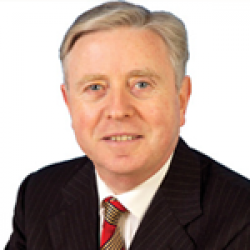
Pat Cox has been President of the European Parliament Former Members’ Association (2010-2014), President of the European Movement International (2005-2011), a former President of the European Parliament (2002-2004), and Member of the European Parliament (1989-2004). Between 1998 and 2002 he was President of the European Liberal Democrat and Reform Party (ELDR) Group European Parliament. Prior to this Cox was a current affairs television broadcaster for RTE, Ireland's national broadcaster, from 1982 to 1986 and Secretary General Progressive Democrat Party (Ireland) between 1986 and 1989.
Andreas Scheuer
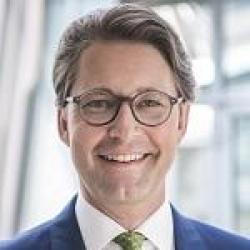
Andreas Scheuer is Federal Minister of Transport and Digital Infrastructure of Germany since March 2018. He studied political science, economics and sociology at Passau University, graduating with the degree of Magister Artium in 2001. In 2004 he got an award of a doctorate by the Charles University in Prague. Mr Scheuer has been Member of the German Bundestag since 2002. From 2009 to 2013 he was Parliamentary State Secretary at the Federal Ministry of Transport, Building and Urban Development and Federal Government Coordinator for Freight Transport and Logistics. From December 2013 to March 2018 he was Secretary-General of the Christian Social Union (CSU).
Kitack Lim

Mr. Lim was born in Masan, Gyeongsangnam-do, in the Republic of Korea. He majored in nautical science at the Korea Maritime and Ocean University (KMOU), Busan, graduating in 1977. He worked on ships as a Korean naval officer and for an international shipping company. He joined the Korea Maritime and Port Administration in 1985, while continuing with further studies at the Graduate School of Administration, Yonsei University, obtaining a Master’s Degree in 1990. He then studied maritime administration at the World Maritime University (WMU), graduating with a master’s degree. From 1995 he attended a doctoral programme for international law at KMOU, completing course work in 1998. Mr. Lim began attending IMO meetings as part of the Republic of Korea’s delegation in 1986 and he engaged in activities to promote maritime safety through effective implementation of IMO conventions in his country and other IMO Member States in the Asian region. He was elected Chair of IMO's Sub-Committee on Flag State Implementation (FSI - now III) in 2001 and of the Tokyo Memorandum on Port State Control in 2004. In 2006, Mr. Lim was appointed Director General of the Maritime Safety Bureau of the Ministry of Land, Transport and Maritime Affairs (MLTM) and then as a Senior Maritime Attaché at the Embassy of the Republic of Korea in London and led all IMO work for the Republic of Korea, serving as an Alternate Permanent Representative to IMO up to August 2009. Following that, he was re-appointed Director General for Maritime Safety Bureau (MLTM). In March 2011, Mr. Lim was appointed Commissioner of the Korean Maritime Safety Tribunal (KMST). In July 2012, he assumed the position of President of Busan Port Authority, until January 2016 when he took up his appointment as Secretary-General of IMO.
Alexandre de Juniac
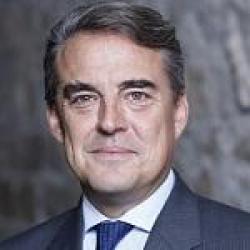
Alexandre de Juniac became the seventh person to lead the International Air Transport Association (IATA) when he took on the role of Director General and CEO from 1 September 2016. De Juniac has almost three decades of experience in both the private and public sectors. This includes senior positions in the airline and aerospace industries and the French government. De Juniac served as Chairman and CEO of Air France-KLM (2013-2016) and prior to that as Chairman and CEO of Air France (2011-2013). Under de Juniac’s leadership Air France and Air France-KLM underwent a successful restructuring that improved efficiency and strengthened performance. He has also served on the IATA Board of Governors (2013-2016). De Juniac has broad aviation sector experience, including 14 years at French aerospace, space, defense, security and transportation company Thales, and its predecessor companies Thompson-CSF and Thompson SA (1995-2009). In his last position at Thales, de Juniac was responsible for the company’s operations and sales in Asia, Africa, the Middle East and Latin America.De Juniac has also held positions in the French government. His career began with the Conseil d’Etat (State Council) from 1988 to 1993. Subsequently, he served in the Department of Budget (1993-1995); and in the Ministry of Economy, Industry and Employment as Chief of Staff to then Minister Christine Lagarde (2009-2011). A French citizen, de Juniac was born in 1962. He is a graduate of the Ecole Polytechnique de Paris and Ecole Nationale de l’Administration. At IATA he works from both the association’s main offices in Montreal, Canada and Geneva, Switzerland.
Violeta Bulc

Violeta Bulc is the European Commissioner for Mobility and Transport. She has been appointed to the office in November 2014. As Commissioner, Ms Bulc has placed priority on digitalisation and innovation in transport. Ms Bulc brings a diverse set of expertise and professional experiences to the role. Immediately prior to her appointment to the European Commission, she was the Deputy Prime Minister of Slovenia, with ministerial responsibility for development, strategic projects and cohesion. From 2013 to 2014, Bulc was Chief of the Program Committee of the SMC Party, Slovenia. She was also CEO of Vibacom Ltd, Sustainable Strategies and Innovation Ecosystems from 2000 to 2014. Between 1999 and 2000 she was Vice-President of Telemach, a telecommunications provider. A Slovenian citizen, Violeta Bulc earned a Bachelor's degree in Computer Science and Informatics at the Faculty of Electrical Engineering, University of Ljubljana, Slovenia, as well as a Master's degree in Information Technology at the Golden Gate University of San Francisco.
Stientje van Veldhoven

Stientje van Veldhoven began her career in 1997 as personal assistant to Elly Plooij van Gorsel, a member of the European Parliament for the People’s Party for Freedom and Democracy (VVD). From 1999 to 2003 she served as an innovation policy officer at the Ministry of Economic Affairs. From 2003 she worked at the Permanent Representation of the Netherlands to the European Union as first secretary for research policy and as scientific and technological attaché. In 2007 Ms Van Veldhoven became a policy advisor at the European Commission, focusing on the coordination of intergovernmental initiatives. From 2009 to 2010 she was unit coordinator for the Zuidvleugel Randstad region at the Ministry of Economic Affairs. On 17 June 2010 Ms Van Veldhoven became a member of the House of Representatives for Democrats ’66 (D66), with policy responsibility for issues including sustainability, mobility, climate and energy, development cooperation, and agriculture, nature and food quality. From 2012 to 2017 she served as a member of the presidium and secretary to the D66 parliamentary party. On 26 October 2017 Stientje van Veldhoven was appointed State Secretary for Infrastructure and Water Management in the third Rutte government.
Jeong Ryeol Kim
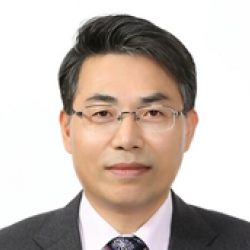
Mr. Jeong Ryeol Kim was appointed as Vice Minister for Transport, Ministry of Land, Infrastructure and Transport of Korea in April 2018. Having joined the Ministry of Land, Infrastructure and Transport from 1989, he has been in senior positions in Transport and Logistics, Road, Public Housing Construction, Policy Planning, as well as Public Agency Relocation departments. He also has experience as visiting professor in Portland State University, USA in 2015, as well as seconded to Urban Housing Office in Gyeonggi Provincial Government, Korea.
Amani Abou-Zeid
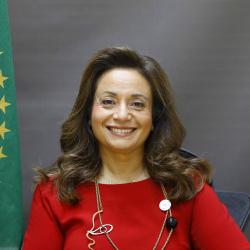
Dr Amani Abou-Zeid is the African Union Commissioner in charge of Infrastructure, Energy, ICT and Tourism.
For more than 30 years, Commissioner Abou-Zeid has served in leadership positions in international organisations, such as the African Development Bank, UNDP and USAID, with a focus on infrastructure and energy programmes. Over her career, she has amassed a remarkable mix of experience from across Africa, France, UK and Canada and worked across constituencies and with wide array of stakeholders.
An Egyptian national, Dr Abou-Zeid has a multi-disciplinary academic training: B.Sc. in Electrical Engineering from Cairo University; an MBA in project management from the French University for African Development (Université Senghor); a Masters of Public Administration MC/MPA from Harvard School of Government; and a Ph.D. in Social and Economic Development from The University of Manchester, UK. She also has a degree in Arts from Université Sorbonne-Paris IV.
Li Xiaopeng
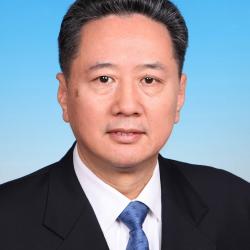
Li Xiaopeng is serving as the Minister of Transport of the P.R. China. He is the former chief executive of China Huaneng Group, a power generation company. He was also Governor of Shanxi between 2012 and 2016.
Elaine L. Chao
Secretary Elaine L. Chao is the U.S. Secretary of Transportation. She also served as U.S. Secretary of Labor, the first Asian American woman appointed to the President's cabinet in American history. Prior to the Department of Labor, Secretary Chao was President and Chief Executive Officer of United Way of America.
She has also served as Deputy Maritime Administrator; Chairman of the Federal Maritime Commission; Deputy U.S. Secretary of Transportation; and, Director of the Peace Corps. She earned her MBA from the Harvard Business School.
Ministers’ Tour of the Exhibition
Exhibition Area
Open Stage Café
ITF Stand
- lock_open Restricted participation
Decarbonising Transport (DT) project in Emerging Economies
The Decarbonising Transport in Emerging Economies (DTEE) project aims to help national governments and other stakeholders to identify transport measures and establish pathways to reduce transport CO2 emissions and meet their climate goals and NDCs.
The project will be focused on four ITF member countries: Argentina, Azerbaijan, India and Morocco. ITF will support their carbon dioxide (CO2) emissions reduction ambitions by designing a common assessment framework for transport emissions. The framework will cover several transport sectors and modes and will be tailored to each case. This includes the development of modelling tools, policy scenarios and catalogues of effective measures in close co-ordination with each of the countries' national government agencies, other local decision makers, academia, experts and civil society organisations.
Capacity building will be fostered through activities including stakeholder workshops, training, policy briefs and mitigation action plans to help improve future transport research and policy development beyond the project duration.
The project is funded by the International Climate Initiative (IKI) of the German Federal Ministry for the Environment, Nature Conservation and Nuclear Safety (BMU). It will be implemented in collaboration with The Wuppertal Institute (WI).
- lock_open Restricted participation
Governance of new mobility
MPA2, Level 0
Unprecedented innovation in passenger mobility transport services over the last decade has drastically changed around the world. Traditional centralised transport service provision, based around collective public transport services and taxis has been supplemented or replaced by new forms of services based on cheap and widely available telecommunications that provide decentralised and more personalised services to clients.
This transformational change has impacted traditional transportation services around the world and led to questions on how best to provide the right level of governance for these new services. Jurisdiction of these new forms of mobility varies from country to country or even city to city, and in some cases, being ignored by both. The provision of new mobility also provides potential opportunities to governments to formulate new economic, social and environmental policies, including increasing employment in key sectors of innovation.
In order to both enable and ensure the sustainable development of the mobility system, there are a number of well-defined areas in which governments intervene. These can be clustered into three broad headings of “public policy”, “market failure” and “investment as policy”. In this new mobility landscape, authorities become just one planning and arbitration actor amongst others, although they still have to cover market failures. Private entities or agents can act as service providers; however, governments may still be held accountable for services, performance, and responsibility, especially if things go wrong. The governance of the “Smart Mobility” transition may need to simultaneously address the “why” (the public policy function), “what” (the rules of the game), “who” (the networks of actors and their position, power and objectives) and “how” (the manner in which the public is involved and accountability and transparency are guaranteed). In assessing the need for changes to transport system governance to anticipate the impact of new mobility, governments also need to consider how these innovations could be used to support broader policy objectives and benefit their citizens.
This roundtable serves as a platform for transport Ministers to focus on some of the aforementioned issues with colleague Ministers, and stakeholders.
Suggested topics for discussion include:
- How can governments fulfil their obligations to ensure new mobility options are safe, inclusive, efficient and promote welfare for travellers without imposing additional barriers to innovation and delivery? How can more dynamic forms of mobility that are less centred on traditional transport hubs change infrastructure planning processes?
- How might governments develop strategies that enable the benefits from new mobility to be realised whilst managing potential risks? How do we ensure that we identify the benefits and risks from new mobility? (e.g. Data privacy)
- What levers, including financial or regulatory, do governments have to influence or improve outcomes under new mobility? What kind of best practice can be shared across countries?
- How can we ensure that the individual interests of “Smart mobility” companies do not collide with the interests of better access and less congestion in urban and rural areas? How do states or supranational governments allow competition and whilst maintaining accountability?
Background reading:
Axel Threlfall

Axel Threlfall is Editor-at-Large, Reuters, based in London. Alongside his editorial duties, he hosts high-profile engagements and thought leadership events for and on behalf of Reuters and Thomson Reuters, such as the Newsmaker series and the World Economic Forum news programs in Davos. He was previously Lead European Anchor for Reuters Digital Video. Prior to joining Reuters, Axel spent four years as an anchor for CNBC in London. Before that, he was an editor with The Wall Street Journal in New York and a news reporter for Bloomberg in London. He has also advised businesses and NGOs on their dealings with the international media. Axel is frequently asked to moderate events for international organizations, including the United Nations and the OECD. He has a BA in History from Durham University and a postgraduate degree in journalism from City University, London.
Elaine L. Chao
Secretary Elaine L. Chao is the U.S. Secretary of Transportation. She also served as U.S. Secretary of Labor, the first Asian American woman appointed to the President's cabinet in American history. Prior to the Department of Labor, Secretary Chao was President and Chief Executive Officer of United Way of America.
She has also served as Deputy Maritime Administrator; Chairman of the Federal Maritime Commission; Deputy U.S. Secretary of Transportation; and, Director of the Peace Corps. She earned her MBA from the Harvard Business School.
Li Xiaopeng

Li Xiaopeng is serving as the Minister of Transport of the P.R. China. He is the former chief executive of China Huaneng Group, a power generation company. He was also Governor of Shanxi between 2012 and 2016.
Alexey Semenov
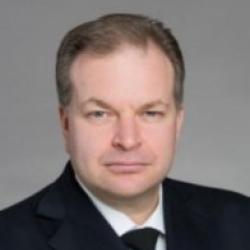
Kitack Lim

Mr. Lim was born in Masan, Gyeongsangnam-do, in the Republic of Korea. He majored in nautical science at the Korea Maritime and Ocean University (KMOU), Busan, graduating in 1977. He worked on ships as a Korean naval officer and for an international shipping company. He joined the Korea Maritime and Port Administration in 1985, while continuing with further studies at the Graduate School of Administration, Yonsei University, obtaining a Master’s Degree in 1990. He then studied maritime administration at the World Maritime University (WMU), graduating with a master’s degree. From 1995 he attended a doctoral programme for international law at KMOU, completing course work in 1998. Mr. Lim began attending IMO meetings as part of the Republic of Korea’s delegation in 1986 and he engaged in activities to promote maritime safety through effective implementation of IMO conventions in his country and other IMO Member States in the Asian region. He was elected Chair of IMO's Sub-Committee on Flag State Implementation (FSI - now III) in 2001 and of the Tokyo Memorandum on Port State Control in 2004. In 2006, Mr. Lim was appointed Director General of the Maritime Safety Bureau of the Ministry of Land, Transport and Maritime Affairs (MLTM) and then as a Senior Maritime Attaché at the Embassy of the Republic of Korea in London and led all IMO work for the Republic of Korea, serving as an Alternate Permanent Representative to IMO up to August 2009. Following that, he was re-appointed Director General for Maritime Safety Bureau (MLTM). In March 2011, Mr. Lim was appointed Commissioner of the Korean Maritime Safety Tribunal (KMST). In July 2012, he assumed the position of President of Busan Port Authority, until January 2016 when he took up his appointment as Secretary-General of IMO.
Tālis Linkaits
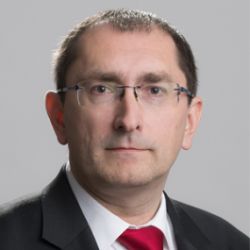
Gloria Hutt Hesse

Ms. Hutt Hesse holds a degree in Civil Engineering from the Catholic University of Chile and she has completed International Finance and Business Administration programs at Georgetown University. She was a Professor for the Master’s in Public Policy program in the School of Economics and Business of University of Chile. From June 2014 to January 2018, she was a partner of Quiz Consulting, specializing in transportation studies. She was a member of the board of directors of the Mejillones port facilities company Complejo Portuario Mejillones and consultant for the think tank Consejo de Políticas de Infraestructura and think tank Horizontal. For 12 years, Ms. Hutt Hesse was a partner and Regional Director for Latin America at Steer Davies Gleave, a prestigious British consulting firm specializing in transportation. There she was in charge of operations in Chile, Colombia, and Puerto Rico, and later broadened the presence of the company to Brazil and Mexico. She was a founder member and also the coordinator and general manager for the Evópoli political party. From 2010 to 2014 she acted as Transportation Viceminister. During her office, she coordinated the creation of the National Transportation Policy and development master plans for public transportation and national port and rail systems, proposing a long-term vision for Chilean transportation. A year ago Gloria Hutt Hesse became Minister of Transport and Telecommunications in Chile. In her spare time, she does gardening and follows her passion of designing sewing.
Melinda Hanson
Melinda Hanson, Senior Manager for Sustainability, joined Bird from the National Association of City Transportation Officials, where she served as deputy director of NACTO's international programs. Before that, Melinda was a consultant for the Asian Development Bank, helping design and implement public transit projects in Pakistan and the Philippines. Earlier in her career, she was a founding staff member of the ClimateWorks Foundation where she managed the sustainable transport portfolio
Tomas Eneroth

Tomas Eneroth is Minister for Infrastructure of Sweden since July 2017, responsible for transport and infrastructure in the Ministry of Enterprise and Innovation. He studied sociology and political science at Växjö University College. Before being appointed Minister for Infrastructure Mr Eneroth was Parliamentary Group Leader for the Social Democratic Party (2014–2017). Mr Eneroth has been a Member of Parliament since 1994 and during this time he has filled several different positions in different policy areas, including Chairman of the Committee on Social Insurance and Deputy Chairman of the Committee on Industry and Trade. He was a political adviser in the Ministry of Education between 1996 and 2002, and State Secretary in the same Ministry in 1999.
Violeta Bulc

Violeta Bulc is the European Commissioner for Mobility and Transport. She has been appointed to the office in November 2014. As Commissioner, Ms Bulc has placed priority on digitalisation and innovation in transport. Ms Bulc brings a diverse set of expertise and professional experiences to the role. Immediately prior to her appointment to the European Commission, she was the Deputy Prime Minister of Slovenia, with ministerial responsibility for development, strategic projects and cohesion. From 2013 to 2014, Bulc was Chief of the Program Committee of the SMC Party, Slovenia. She was also CEO of Vibacom Ltd, Sustainable Strategies and Innovation Ecosystems from 2000 to 2014. Between 1999 and 2000 she was Vice-President of Telemach, a telecommunications provider. A Slovenian citizen, Violeta Bulc earned a Bachelor's degree in Computer Science and Informatics at the Faculty of Electrical Engineering, University of Ljubljana, Slovenia, as well as a Master's degree in Information Technology at the Golden Gate University of San Francisco.
Jaeho Lee

Jaeho Lee has been a Director of Digital Economy Institute of Kakao Mobility. The company is the number one mobility platform of Republic of Korea, providing services of taxi hailing, navigation, parking, designated driver, and electric bike sharing. As of April 2019, the number of registered users is more than 22 million.
Jaeho is also a member of the Technology Commercialization Advisory Board and the Industry-Academia Networks Forum of Korean Government. He worked for Hyundai Research Institute, Hyundai Motor Company, and LGCNS as an economist and consultant. His specialties include digital economy, O2O business, automotive industry, and industrial policies.
Michio Kikuchi
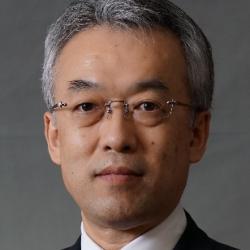
Mr. Michio Kikuchi was appointed as Vice-Minister for Engineering Affairs for the Ministry of Land, Infrastructure, Transport, and Tourism (MLIT) of Japan in July 2018. Having joined the Ministry of Transport in April 1985, he has held senior leadership positions mainly in Ports and Harbours Bureau. He holds a Master of Science in Civil Engineering.
Rafał Weber

Rafał Weber is responsible for matters related to road transport, public roads and road safety. Since 2015, he is a member of the Parliament. There, he is a member of the parliamentary committee of infrastructure and national defense commissions.
From 2014 he was the deputy director of the Provincial Traffic Center in Tarnobrzeg (Poland). In 2010-2014 and 2014-2015, the councilor of the City Council in Stalowa Wola (Poland). Mr. Weber is a graduate of the Higher School of Law and Administration in Rzeszów (Poland)
Chris Grayling
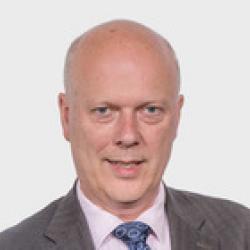
Chris Grayling was appointed as Secretary of State for Transport on 14 July 2016. He was elected Conservative MP for Epsom and Ewell in 2001.
Chris served as Minister of State at the Department for Work and Pensions from May 2010 until September 2012. He was Lord Chancellor and Secretary of State for Justice from September 2012 until May 2015, and Lord President of the Council and Leader of the House of Commons from May 2015 until 14 July 2016. He also held a number of shadow front bench posts, including Shadow Home Secretary and Shadow Secretary of State for Transport.
Chris was educated at The Royal Grammar School, High Wycombe and Sidney Sussex College, Cambridge, where he studied history.
Jeong Ryeol Kim

Mr. Jeong Ryeol Kim was appointed as Vice Minister for Transport, Ministry of Land, Infrastructure and Transport of Korea in April 2018. Having joined the Ministry of Land, Infrastructure and Transport from 1989, he has been in senior positions in Transport and Logistics, Road, Public Housing Construction, Policy Planning, as well as Public Agency Relocation departments. He also has experience as visiting professor in Portland State University, USA in 2015, as well as seconded to Urban Housing Office in Gyeonggi Provincial Government, Korea.
David Thiel
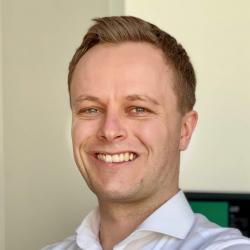
David Thiel, General Manager JUMP Berlin, joined Uber in 2014 and held several positions at Uber in Germany, Switzerland and The Netherlands. He introduced new business models, led EMEA product operations and most recently launched the JUMP bicycles business in Germany. Prior to Uber, David gained experience in automotive industry focusing on quality and lean methodologies at Toyota and Porsche Consulting. He holds a degree in Aerospace Engineering and Business Administration.
Maurice Geraets
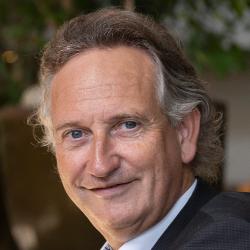
Maurice Geraets MSc MBA is statutory director for the main legal entity of NXP Semiconductors world wide: NXP Semiconductors Netherlands B.V., with a yearly financial revenue of multi billion USD. Mr Geraets has 25 years of experience in the IT and electronics industry and works at NXP Semiconductors since 2002. In his current position he focuses on disruptive innovations for ‘secure connections for a smarter world’. This concerns e.g. intelligent transport systems (ITS) and automated driving. Next to his role at NXP, Maurice is active in the governance of the 1 billion Euro Dutch SmartwayZ program, is board member of several associations on automotive and mobility, is member of the High Level ITS Advisory Group to the European Commission and is member of the management committee of the European public private partnership AENEAS.
Before joining NXP, Mr. Geraets held positions as Business Manager In-Product Software and Global Client Manager with Atos, the largest European IT services company. In his Global Client Manager role, he was also responsible for the largest part of the Atos business in Asia. In his early working life Mr. Geraets served as Lieutenant in the Royal Dutch Navy.
Mr. Geraets holds an Executive MBA degree and a Master of Science degree in Computer Science. Mr. Geraets is Dutch and was born in 1968.
Abdulla Belhaif Al-Nuaimi
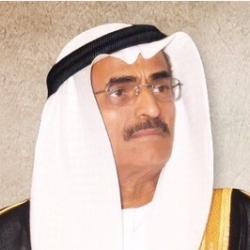
His Excellency Dr. Eng. Abdulla Al-Nuaimi joined the Federal Government in 2013 as Minister of infrastructure Development, which is responsible of developing the infrastructure of the federal state road networks and federal buildings (schools, hospitals, government buildings, research centers, cultural and sports centers, police stations and civil defense, housing for the citizens, and other governmental projects).
Beside his responsibilities as a Minister Dr. Eng. Abdulla Al-Nuaimi is Chairman of Sheikh Zayed Housing Program and also he is a Chairman of Federal Transport Authority.
Dr. Eng. Abdulla Al Nuaimi holds a Ph.D. degree in Construction Management from the University Of Reading, UK (1990), and a Bachelor degree in Mechanical Engineering from the University of Wisconsin in USA (1980). Among his hobbies playing tennis, swimming and reading.
Ensuring regional air connectivity
Hall 2, Level +1
By ensuring rapid connections over bigger distances, aviation plays an important role in connecting remote areas to the centres of economic activity, hence making them more attractive to economic investment, maintaining populations of those regions, and rebalancing the national economy away from the centre.
With deregulation of the aviation sector over the past two decades, numerous domestic routes have become unsustainable due to their low profitability. In many ITF countries, governments stepped in and launched programmes supporting domestic air connections, many of them significant in terms of both their costs and scope. For example, in the United States the Essential Air Services Program subsidises links to the national aviation system in over 170 communities at a cost of around USD 300 million per year. The Japanese government subsidises airline operations on 14 remote island routes. Norway foresees a budget of EUR 74 million in subsidies to air transport services in 2019. Over 200 routes are supported by Public Service Obligations inside the European Economic Area. In other countries, such as Canada, no support is provided for domestic air connections.
This panel session will gather government officials and independent experts to discuss the following questions:
- What is the role of governments in supporting regional air connectivity?
- What are the costs and benefits of government intervention in the market for regional air connectivity?
- What policies supporting domestic air connectivity are proving cost-effective?
- How can aviation stakeholders work together and leverage new technologies to improve efficiency, security, and travellers’ experiences?
Background reading:
ITF (2018), “Government Support Measures for Domestic Air Connectivity”, https://www.itf-oecd.org/sites/default/files/docs/domestic-air-connectivity_0.pdf [54]
Juliette Foster

Juliette Foster is an award-winning broadcaster and businesswoman. She has worked for the BBC (British Broadcasting Corporation) and has anchored flagship programmes at Bloomberg Television, Sky News and BBC World Service Television.
Silvia Gehrer
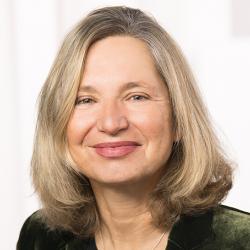
Silvia Gehrer is the Regional Director of the European and North Atlantic (EUR/NAT) Office of ICAO since 01 February 2019.
Previously, she was Director General International from 2013 to 31 January 2019 where she was heading the Department of Strategy and International in the Austrian Civil Aviation Authority since 2009.
She initially worked with the Ministry for Economic Affairs and joined the Austrian Permanent Representation at the EU in Brussels in 1995, the year of Austria’s accession to the EU as Trade Policy Attaché. She also worked at the US Embassy in 1999 before joining the Austrian Ministry for Transport in 2000 where she headed the unit for EU and International Aviation. From 2004 -2007 she represented Austria on the Council of the International Aviation Organisation as a member of the ABIS Rotation Group (Belgium, The Netherlands, Luxemburg, Ireland, Switzerland and Ireland).
Ms. Gehrer received a Master Degree in Business Administration specialising in Aviation and Trade from Vienna Economic University and also holds a Master Degree in Public Relations.
Adefunke Adeyemi

Adefunke Adeyemi was recently honoured as one of the 200 globally Most Influential People of African Descent (MIPAD) in affiliation with the United Nations Decade for People of African Descent. An alumnus of the University of Cambridge, she is a catalyst of change, a transformative thought leader and influencer, positively impacting lives and the business environment through her passion, work and initiatives. She is focused on bringing value, best practices and international standards to sectors, industries, businesses and government, through her work and career spanning 20 years. She is a lawyer, advocate and global aviation expert.
In her current role as Regional Director, Advocacy & Strategic Relations for Africa at the International Air Transportation Association (IATA), Adefunke advocates for the sustainability and growth of the aviation industry across the region, highlighting its value to economies and societies as an enabler and catalyst for development and growth, and a force for social good.
Adefunke is passionate about Leadership and Innovation. In IATA, she was part of the core senior management group tasked with revising the strategic direction of the global aviation industry and the re-organisation of IATA to better meet member and industry needs. Until last year, Adefunke headed the Diversity & Inclusion initiative of IATA in Africa Middle East, also leading its Women in Leadership program in the region, and has mentored several women and men, both within and outside her organisation.
Allan Ellingsen
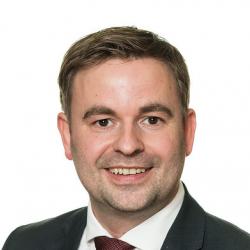
Allan Ellingsen is a Norwegian politician from the Progress Party. He was appointed State Secretary of the Ministry of Transport on 22 January 2019. He has studied political science and organisational management.
Ellingsen was appointed Deputy Mayor of the City of Bodø from 2014 to 2015. He served as a member of the Vågan Municipal Council from 2003 to 2011. Ellingsen has served as a member of the Bodø Municipal Council since 2015 and the Nordland County Council since 2003.
Michael Keenan

Michael Keenan was appointed Deputy Minister of Transport on March 14, 2016.
Michael has extensive experience in management, engagement, economic analysis and policy development in the Government of Canada. Before joining Transport Canada, he served as Associate Deputy Minister at Natural Resources Canada.
Before that, at Environment Canada he was responsible for strategic policy development, economic analysis of environmental policy and regulatory initiatives, coordination of federal/provincial relations, and the Federal Sustainable Development Strategy. He also served as the Vice-President of Organizational Leadership at the Canada School of Public Service and as the Director General of Economic Analysis at Agriculture and Agri-Food Canada, where he also chaired of the OECD Committee of Agriculture.
Earlier in his public service career, Michael worked in central agencies, in the Priorities and Planning Secretariat at the Privy Council Office, in various positions at Finance Canada and at the British Columbia Ministry of Finance.
Michael holds a B.A. (Honours) from Saint Francis Xavier University and an M.A. in economics from Queen's University.
Marc Hamy
Marc HAMY is an alumnus of Ecole Normale Supérieure (ENS) de la rue d’Ulm and a civil aviation engineer, with a post-graduate diploma from the French national school for civil aviation (ENAC) and a Master degree from the University of Paris Dauphine. He has an important background in aviation, transports, economy, and politics, with many senior executive positions.
He has been successively:
- deputy CFO of DSNA, the French air navigation services provider,
- General Manager of the two air traffic control centres of the south of France,
- Director of the civil aviation authority in the French Pacific territories,
- CEO of DSNA (8000 employees and a turn-over of 1 Billion Euros a year),
- Chief of Staff of the French Minister for Transports,
- deputy Chief of Staff of the Minister for Energy, Transports and Environment,
- COO of Airbus ProSky
- Vice-President, Air Transport and Public Affairs, Airbus SAS.
He is a founding member of the SESAR Joint undertaking, and of the EGNOS SSP, and contributed to create Airbus ProSky in 2010, three companies developing new technologies and services in aviation and space. He is holder of the Legion of Honour, of the National Order of Merit and of the Medal of aeronautics.
Supply chain connectivity in a changing global economy
Hall 3, Level +1
Transport connectivity is essential for global value chains. Better connectivity promotes regional integration, reduces trade costs and increases trade volumes, which stimulates economic growth, social integration, and development. This panel session will explore changes affecting global trade flows and discuss ways to improve global and regional connectivity in the face of these changes. It will specifically consider the role of policy makers in implementing solutions. The session will kick off with a short presentation of the ITF Global Freight Model, a tool to assess the evolution of freight flows, and its application for a recent joint ITF - OECD study of connectivity in Central Asia.
Key facts:
- World trade will grow at an annual rate of 3.5% in the coming years, slower than the close to 7% average annual growth since 1990.
- Trade in OECD countries will halve by 2060, but will more than double among non-OECD economies.
- Global trade patterns will shift geographically, reflecting converging regional incomes, changes in consumption patterns, and changes in productivity between regions. Asia and Africa will see substantial increases in trade.
Lead questions:
- How do changes in the global distribution of economic activity affect trade flows? What do these changes mean for international freight transport and logistics and supply chains? What are the implications for the environment?
- How do these changes manifest themselves in different regions? What are specific regional solutions and what should be the role of policymakers?
- How can new opportunities for data generation and sharing shape the transformation of logistics chains?
Background reading:
- ITF Transport Outlook 2019 (forthcoming)
- OECD Global Economic Outlook 2018
- Jean Chateau, Lionel Fontagné, Jean Fouré, Åsa Johansson, Eduardo Olaberría. Trade patterns in the 2060 world economy. OECD Journal: Economic Studies, OECD, 2015 (1), pp.67-100. Available on: https://hal.archives-ouvertes.fr/hal-01299777/document [55]
- ITF Enhancing Connectivity and Freight in Central Asia 2019
Melinda Crane

Melinda Crane is Chief Political Correspondent at Deutsche Welle-TV and hosts the talk shows "Quadriga" and "People and Politics" She was Senior Producer of "Global Players" on CNBC. She has moderated a wide variety of podium discussions and conferences for public organisations and private sector clients. Among her areas of expertise are transatlantic politics; women, family education issues; climate and environment; business and economics; new media and the internet. Crane holds a Juris Doctorate from Harvard Law School and a Doctoral Degree in political economy from the Fletcher School of Law and Diplomacy.
Christian Labrot
Mr. Christian Labrot is the President of the International Road Transport Union (IRU). He enjoys a distinguished career in transport, which started in 1979 at BWV, the German Association of Professional Transport Companies and Shippers. He was appointed Managing Director of BWV in 1990 and became Secretary General of the German Federation of Economics, Transport and Logistics in 1995. Mr Labrot has also served as a member of various IRU Commissions for many years, including: President of the IRU Liaison Committee for own-account transport and Vice-President of the Goods Transport Liaison Committee with the European Union. Mr Labrot studied Economics at the University of Bonn, Germany, specialising in transport economics, where he graduated in 1979. He also holds an MA in Economics.
Bruno Georges
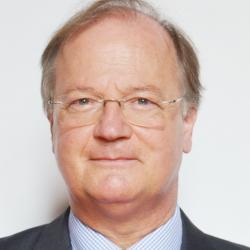
Mr Georges, previously a member of the Belgian diplomatic corps, was until last August the Permanent Representative of the Kingdom of Belgium to the OSCE in Vienna. During his diplomatic career, Mr Georges has accumulated experience in embassies and at the Ministry of Foreign Affairs as well as at the Permanent Representation of the Kingdom of Belgium to the European Union. He is now looking forward to giving the benefit of his skills to the Central Commission for the Navigation of the Rhine.
Stephen Cotton
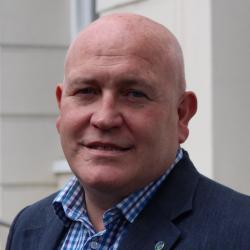
Stephen Cotton is General Secretary of the International Transport Workers’ Federation (ITF), a global union federation of 665 trade unions representing 18.5 million transport workers in 147 countries in the maritime, port, aviation, road, rail and urban transport sectors. He was elected at the 43rd ITF Congress in Sofia, Bulgaria in 2014.
Under his leadership, the ITF has transformed into a proactive campaigning organisation, allowing the ITF and its affiliates to secure industry-leading contracts and protocols with key multinational companies in the transport sector.
He is Chair of the Council of Global Unions (CGU), a Trustee of the ITF Seafarers’ Trust and serves on the United Seaman’s Service (USS) governing body. In 2014, Cotton received the USS Admiral of the Ocean Sea (AOTOS) Award, in recognition of his work defending the well-being and fair treatment of seafarers.
Sunandan Tiwari
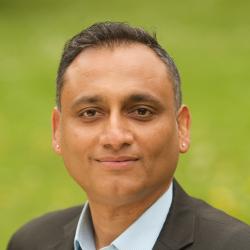
Muneeza Alam

Muneeza is an Economist at the World Bank with over ten years of experience in the development field. She is particularly interested in issues relating to economic and social inclusion.
Open Stage Café
ITF Stand
- lock_open Restricted participation
Rhine Alp and the North Sea - Mediterranean Ministers' meeting
MPA3, Level 0
Integrated Transport Networks in the Asia-Pacific and Beyond
Hall 5, Level +1
logos.PNG [56]
The event will focus on the issue of transport connectivity in Asia and the Pacific, presenting the regional approach to connectivity and assessing the progress reached in the identification and operation of the regional transport network.
In particular, it will describe the experience of the regional transport connectivity programmes in Asia and highlight the support provided by the regional development actors. It will analyze the impact of the recent regional and national initiatives related to transport connectivity and identify the remaining challenges for a greater integration of the Asia-Pacific region into the global transport networks and global and regional supply chains. The discussions will also touch upon the private sector’s perspective on the regional transport connectivity in Asia and beyond to unleash the full potential of regional, economic integration.
Opening Remarks
- Hongjoo Hahm, Deputy Executive Secretary, the United Nations Economic and Social Commission for Asia and the Pacific (UNESCAP)
- Robert Guild, Chief Sector Officer, Sustainable Development and Climate Change, Asian Development Bank (ADB)
Panelists:
- Yuri Petrov, Assistant to the Minister, Ministry of Transport, Russian Federation
- Jari Kauppila, Head of Quantitative Policy Analysis and Foresight, ITF
- Frida Youssef, Chief Transport Section, Division on Technology and Logistics, UNCTAD
- Azhar Jaimurzina, Chief of the Transport Connectivity and Logistics Section of the Transport Division, UNESCAP
- Nancy Vandycke, Program Manager, Sustainable Mobility for All (SuM4All), World Bank
- Jens Hügel, Senior Adviser, International Road Transport Union (IRU).
More information:
ADB GMS: https://www.adb.org/countries/gms/main [57]
ADB CAREC: https://www.adb.org/countries/subregional-programs/carec [58]
ADB SASEC: https://www.adb.org/countries/subregional-programs/sasec [59]
ESCAP Asian Highway and Trans-Asian Railway and Dry Ports Network: https://www.unescap.org/our-work/transport [60]
Contact person: James Leather, Chief, Transport Sector Group, SDSC-TRA, jleather@adb.org [61]
- how_to_reg Booking required
- location_on Off-site
BMW Plant
Meet at Transport Information Desk, Level -1
Hydrogen for zero-emission mobility
Hall 4, Level +1
logos.PNG [62]
With the expected increase of world population to 9,7 billion inhabitants by 2050, out of which 70% are projected to live in urban areas, the issues of raising mobility needs, and their related impacts require urgent transformations. Today transport generates around 25% of worldwide CO2 emissions, therefore decarbonizing transport is becoming more and more a central part of national low carbon strategies. Hydrogen technology represents an efficient enabler to pave the way towards a more sustainable and emissions-free society of tomorrow. Many countries are considering or have already launched initiatives on hydrogen for mobility needs.
This session aims to provide an insight on the most recent advances and projects in hydrogen technologies for the transport sector, especially in rail and road fields, as well as discuss the potential of hydrogen to emerge as a competitive solution through strong ecosystems of actors and adapted public policies. The session opens an opportunity for all interested stakeholders to share their vision, views, experiences and knowledge related to hydrogen-based solutions for the transport sector.
Speakers:
- Wolfram Schwab, R&D and Innovation Vice President, Alstom, France
- Stephan Herbst - General Manager - Toyota Motor Europe, Belgium
- Mr. Markus Bachmeier, Head of Hydrogen Solutions - Linde Group, Germany
Moderator: Jorgo Chatzimarkakis - General Secretary - Hydrogen Europe, Belgium
Contact: Ms. Lola Azimova, Global Commercial Manager, Alstom lola.azimova@alstomgroup.com [63]
- location_on Off-site
Presidency Reception
Glass Hall
- location_on Off-site
- lock_open Restricted participation
Ministers' Dinner
Westin Hotel
- how_to_reg Booking required
- location_on Off-site
DHL Airfreight Hub
- lock_open Restricted participation
SuM4All Consortium Meeting
Messehaus – M8
Coffee at ITF Stand
ITF Stand
- lock_open Restricted participation
Meeting of ITF member-country ministers
Hall 1, Level +1
ITF Transport Outlook
Hall 2, Level +1
This session will feature highlights of the ITF Transport Outlook, which provides an overview of recent trends and near-term prospects for the transport sector at a global level, as well as long-term prospects for transport demand to 2050, for freight and passenger transport and CO2 emissions.
Alan McKinnon

Alan McKinnon is Professor of Logistics in the Kühne Logistics University, Hamburg. A graduate of the universities of Aberdeen, British Columbia and London, he has been researching and teaching in freight transport / logistics for 40 years and published extensively on many different aspects of the subject. Much of his research in recent years has been on the decarbonisation of logistics. Professor McKinnon has been an adviser to several governments, parliamentary committees and international organisations, including the ITF/OECD, the World Bank, European Commission, the United Nations and the IPCC. He was chairman of the World Economic Forum’s Logistics Council and the Transport Advisory Group of the EU Horizon 2020 research programme.
Åsa Vagland
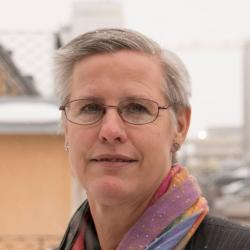
As senior adviser and deputy director at the Swedish Ministry of Infrastructure in Stockholm, Åsa Vagland is responsible for such emerging technologies as connected, cooperative, shared and automated mobility, as well as mobility as a service. She also manages the Swedish Prime Minister’s Innovation Partnership Programme in next-generation travel and transportation and develops policy and strategies for transport and mobility as well as gender objectives and gender mainstreaming in the transportation sector.
Vagland earned a degree in social science from Farsta Gymnasium, an upper secondary school outside Stockholm and received her university degree in regional, transportation, and societal planning at the University of Stockholm.
Karen Vancluysen

Karen Vancluysen was appointed as Secretary General of the Polis network in September 2014, after having been the network's Research Director for 8 years. Since 1998, she has been involved in European urban transport networking and policy activities and many EU research and innovation projects covering a wide range of urban mobility topics. Polis is the leading European network of cities and regions focussing on urban transport innovation. For 30 years already, members have been working together to develop sustainable and innovative urban mobility solutions for the city of today and tomorrow. Polis supports the exchange of experiences between European local and regional authorities, facilitates the dialogue with other actors of the transport sector, including industry and research, and acts as the urban mobility voice of its members towards the European institutions. The network engages in debates around topical issues such as MaaS, automated transport, electromobility, and shared mobility services.
Jari Kauppila
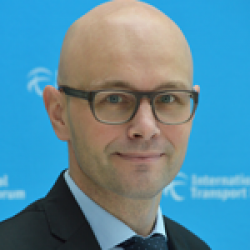
Dr. Jari Kauppila is Head of Quantitative Policy Analysis and Foresight Division at the International Transport Forum at the OECD. His team works on wide range of transport policy issues and is responsible for the ITF’s flagship publication, Transport Outlook, quantitative model development and statistical data collection, among others. Since joining the ITF in 2007, Jari has also coordinated several international research projects on topics such as logistics, transport reliability, decarbonisation, road safety and infrastructure investment. Prior joining the ITF in 2007, Jari spent nearly ten years as a lead economist with the Ministry of Transport and Communications Finland. Besides his duties at the ITF, Jari is an Adjunct Professor in Transport Economics at the Department of Operations and Supply Chain Management at Turku School of Economics in Finland.
Maximilian Eichhorn
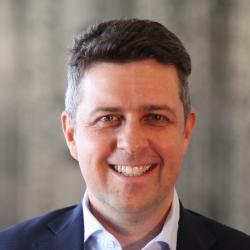
Max is the global head of Strategy & Business Development of Siemens Mobility, a world market leader in sustainable transport technologies for rail and road. Earlier roles within the transport sector included Head of Digital Transformation of Siemens’ Intelligent Transport Systems, CEO of Siemens Mobility Australia and Global Head of Siemens’ Software Solutions for Railways. Earlier he worked seven years as a Management Consultant with strong focus on the Transport and Building Technology sectors. He started his career in a German “Mittelstands”-Champion. Max holds a Master of Science degree in Electrical Engineering from Technical University of Vienna, Austria, and a PhD in Logistics from University of Göttingen, Germany.
Ramon Cruz
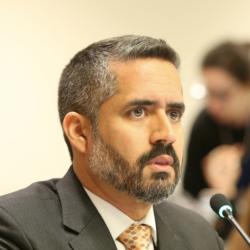
Philippe Crist

Philippe Crist is Advisor for Innovation and Foresight at the International Transport Forum (ITF) at the Organization for Economic Cooperation and Development (OECD). He coordinates the research of the ITF’s Corporate Partnership Board and manages international research projects for the ITF’s 59 Member countries. His current work focuses on disruptive urban mobility scenarios and examines how car-based and active mobility, public transport and taxis must adapt to these. He is also leading work on Data science and public policy within the ITF investigating new strategies to leverage knowledge derived from new and rapidly growing data sources to improve transport decision-making. In 2016 he won the Danish Cycling Embassy's Leadership Award for Cycling Promotion. His other work currently looks at managing mobility in rapidly growing urban areas, assessing GHG emission strategies in the transport sector, as well as investigating national transport asset and network management strategies. He also does much of his best thinking on a bicycle.
Innovation for a more connected world
Hall 3, Level +1
This session will feature a number of inspiring presentations from leading thinkers to showcase examples of recent transport innovations. The transport and mobility sector is a hotbed of opportunity for innovative companies. This session will showcase innovative companies, notably startups that are shaking up the sector: With rapid technological advances and unprecedented levels of investment startups are playing an ever-more important role in shaping transport and mobility.
Daniel Sperling
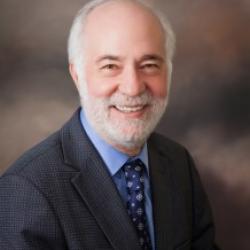
Dr. Daniel Sperling is Professor of Civil Engineering and Environmental Science and Policy, and founding Director of the Institute of Transportation Studies at the University of California, Davis (ITS-Davis). The Institute has over 150 faculty, staff and student researchers. He has led ITS-Davis to international prominence by building strong partnerships with industry, government, and the environmental community, integrating interdisciplinary research and education programs, and connecting research with public outreach and education.
Regina Clewlow
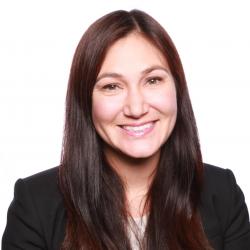
Regina Clewlow is the CEO and Co-founder of Populus, a data platform for cities to manage the future of mobility. Trusted by leading cities and the world’s largest mobility operators, the Populus platform securely ingests real-time data from shared electric scooters, bikes, and cars - helping operators and cities partner to deliver safe, equitable, and efficient streets through better data and analytics.
Regina has over a decade of experience in transportation, having served as a research scientist and lecturer at Stanford, UC Berkeley, and UC Davis. Prior to forming Populus, Regina was the Director of Business Development and Strategy at RideScout, an early mobility-as-a-service aggregator that was acquired by moovel, Daimler and BMW’s mobility services unit. Regina has been named a 40 Under 40 by Mass Transit magazine and the San Francisco Business Times. She has a Ph.D. in transportation and energy systems from MIT, and a bachelor’s in computer science from Cornell.
Shailen P. Bhatt
As its chief executive, Bhatt promotes policies that advance the development and deployment of intelligent transportation technologies throughout the United States. He has testified before Congress about the positive safety impact of intelligent transportation technologies, including connected and automated vehicles. Bhatt is a leading voice in transportation on technology’s ability to save lives and reduce crashes on U.S. roadways. He speaks extensively about the importance of vehicles to communicate with each other and all roadway users as one of the best ways to improve safety and reduce congestion. He is also passionate about reducing transportation’s carbon footprint and the need to provide seamless mobility and transportation choices to people no matter where they live. Bhatt was appointed as a transportation leader by three governors. While serving as Executive Director for the Colorado Department of Transportation (CDOT), the agency launched the Road X program, which is focused on deploying innovative technology solutions such as connected vehicles and teaming with the private sector to shape the future of transportation. Prior to CDOT, Bhatt was Cabinet Secretary for the Delaware Department of Transportation. He was also a presidential appointee at the U.S. Department of Transportation. Bhatt has served as Chair of the Board of Directors for the National Operations Center of Excellence (NOCoE) and the Executive Committee of the I-95 Corridor Coalition; he was a member of the World Economic Forum’s (WEF) Global Agenda Council on the Future of Automotive and Personal Transport. Bhatt graduated summa cum laude with a Bachelor of Arts in Economics from Western Kentucky University. He lives with his wife and two young daughters in Washington, DC.
Chris Snyder

Chris Snyder is the CEO of ViaVan and the Senior Vice President of Expansion at Via, where he oversees the company's global expansion efforts. Prior to Via, Chris built next-generation biomedical supercomputing architectures at D. E. Shaw Research and developed analytics products for mission-driven organizations at Edgeflip. He is a 2004 graduate of Harvard University.
Corridors financial sustainability: options and approaches
Hall 4, Level +1
The objective is to discuss the financial and fiscal sustainability of the road sector, in particular in the context of corridor development and regional integration, looking in particular at the extension of the TEN-T network to the Western Balkans and to the Eastern Partnership countries. Large investments to promote regional integration have been made and are planned to the near future, but ensuring the financial and fiscal sustainability of such investments requires a solid cash-flow to ensure proper operations and maintenance.
The proposal is to discuss the advantages and risks associated with various instruments, including traditional tolling, electronic tolling, vignettes, fuel levies as well as bonds and guarantees to improve long term financial sustainability of corridors.
Speakers:
- Guangzhe Chen, Senior Director, World Bank
- Karla Gonzales, Practice Manager, World Bank
- Ian Jennings, Senior Specialist, European Bank for Reconstruction and Development
- Antonio Nunez, Senior Transport Specialist, World Bank
- Hatem Chahbani, Senior Transport Specialist, World Bank
- how_to_reg Booking required
- location_on Off-site
BMW Plant or Porsche Plant
Meet at Transport Information Desk, Level -1
Open Stage Café
ITF Stand
Improving global connectivity: Transport, energy and telecommunications networks
Hall 1, Level +1
Connectivity is a 21st century mega-trend that is reshaping the world far beyond the transport sector. Integrating transport planning with other policy areas is challenging. Yet transport is becoming more and more interdependent with electricity infrastructure as it decarbonises. The rise of connected vehicles and infrastructure increasingly intertwine it with telecommunications. And an integrated approach for transport, housing and commercial development is becoming critical to reduce congestion, improve access and foster sustainability. With regard to funding transport infrastructure, road transport in particular has much to learn from the energy and telecommunications sectors, which have advanced much further in managing demand by charging users.
Key facts:
- The World Economic Forum estimates the worldwide investment in infrastructure is expected to be $79 trillion by 2040, but the actual global investment need is closer to $97 trillion. Average annual global infrastructure investment would need to increase by approximately 23% per year to close the financial shortfall.
Lead questions:
- How quickly will electrification of transport progress and what infrastructure investment is needed? How is hydrogen offering new opportunities for electric mobility?
- How are emerging information and telecommunication technologies revolutionising global connectivity? How can policy makers respond to related challenges to establish supportive policy and governance frameworks?
- How can policy makers and industry work together to improve global connectivity and ensure it benefits all parts of society
- What lessons from more integrated transport, energy, and telecommunications networks are emerging from national experience?
Background reading:
- Strategic infrastructure planning: International best practice (ITF 2017) [https://www.itf-oecd.org/strategic-infrastructure-planning [65]]
Axel Threlfall

Axel Threlfall is Editor-at-Large, Reuters, based in London. Alongside his editorial duties, he hosts high-profile engagements and thought leadership events for and on behalf of Reuters and Thomson Reuters, such as the Newsmaker series and the World Economic Forum news programs in Davos. He was previously Lead European Anchor for Reuters Digital Video. Prior to joining Reuters, Axel spent four years as an anchor for CNBC in London. Before that, he was an editor with The Wall Street Journal in New York and a news reporter for Bloomberg in London. He has also advised businesses and NGOs on their dealings with the international media. Axel is frequently asked to moderate events for international organizations, including the United Nations and the OECD. He has a BA in History from Durham University and a postgraduate degree in journalism from City University, London.
Rachel Kyte
Rachel Kyte is Chief Executive Officer of Sustainable Energy for All (SEforALL), Special Representative of the UN Secretary-General for Sustainable Energy for All and Co-Chair of UN-Energy. She is a leading advocate for sustainable development and drives SEforALL’s work to mobilize action towards its 2030 goals on universal energy access, energy efficiency and renewable energy. As SRSG, she is the UN point person for the global goal on sustainable energy. Until December 2015 Rachel Kyte served as World Bank Group Vice President and Special Envoy for Climate Change, leading integration of climate across the Bank Group’s work as well as support for an ambitious agreement at the 21st Convention of the Parties of the UNFCCC (COP 21). She was previously World Bank Vice President for Sustainable Development and was the International Finance Corporation Vice President for Business Advisory Services. A recipient of numerous awards for leadership for climate action and sustainable development, she is a Professor of practice in sustainable development at Tufts’ Fletcher School of Law and Diplomacy.
Enrique Medina Malo
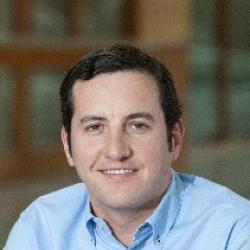
Enrique Medina Malo is currently Chief Policy Officer at Telefónica S.A
He joined Telefónica Legal department in 2006, as Head of Public Law and hold different responsibilities in the field of Regulation and Competititon legal afairs. In 2008 he was appointed Chief Legal Officer of Telefónica, S.A., reporting to the Group´s General Counsel and in September 2011, General Counsel of Telefónica Europe, reporting to the regional CEO. Before joining Telefonica, Enrique Medina Malo served as in the Spanish Government Legal Service in different posts: Ministry of Science and Technology, Ministry of Industry and Energy and the High Court of Cataluña.
He holds a law degree from Carlos III University of Madrid (1994) and was admitted to the Spanish Government Legal Services in 1997 (Abogado del Estado).
Connectivity for Development: The Mesoamerican Experience
Hall 4, Level +1
The geographic position and the interoceanic regional infrastructure of Mesoamerican countries are relevant to the regional and global trade outlook. At a national level, improving transportation connectivity and logistics performance has been recognized as a means towards better competitiveness and economic development, therefore, the region has made great efforts to increase the coverage, quality and connectivity of its transportation infrastructure through the implementation of programs and policies in transport and freight logistic sector in the last decades, that have had important effects in the productive integration of cities and communities and in the intraregional and global trade of the countries. Despite the progress made in infrastructure and software investments, significant areas in Mesoamerica continue relatively isolated from key economic centers and logistics corridors, hence a high potential for a greater integration remains unexploited in the region.
This session will discuss how better transport connectivity can help integrate countries in the Mesoamerican region (at the local, national and global level) and its contribution to achieve economic, social, and environmental development goals. The event will showcase the evolution of Mesoamerica regional integration in terms of physical infrastructure and institutional development. The important lessons that Mesoamerica’s region have accumulated linked to the evolution of transport connectivity, in which infrastructure (hard), regulations (soft), trade facilitation, sustainability and urban connectivity has been addressed; represents a source of knowledge and a field of analysis for stakeholders in order to continue promoting actions that targets the challenges identified for the region. The panel will discuss relevant issues that developing countries typically face, analyzing the complexities and underlying aspects related to the role of technology, infrastructure financing, and institutions, to achieve development goals.
Speakers:
- Ofelia Betancor, Associate Professor, University of Las Palmas, Gran Canaria, Spain
- Jocelyn Aguilar, Executive Coordinator, The Mesoamerican Project, San Salvador, El Salvador
- Marelia Martinez, Consultant in freight logistics and trade facilitation, Paris, France
- José Barbero, Consultant in logistics chains for Latin America and the Caribbean, Buenos Aires, Argentina
Moderator:
- Agustina Calatayud, Senior Specialist – Transport Sector, Inter-American Development Bank, Washington D.C., Unites States
Links to relevant website(s) for further information: www.iadb.org [67]
Contact Person: Raul Rodriguez-Molina, Infrastructure Integration Specialist, IADB, raulr@iadb.org [68]
Launch of Global Fuel Economy Initiative 2.0
MPA4, Level 0
gfei-logo.png [69]

To meet global climate targets the emissions of the global fleet need to go to near zero. How are we going to achieve this? What actions are needed to get there?
The GFEI is the leading global initiative to improve the efficiency of the global fleet. It is supporting countries around the world to introduce policies for cleaner and more efficient vehicles. It is a partnership of expert groups which have worked together for 10 years to support governments around the world to set policies for cleaner and more efficient vehicles. Our approach is evidence- based. We work with policymakers and stakeholders to understand the issues each country faces and to establish a national fuel economy baseline. Then we use our global toolkit of policy options to explore appropriate policy options to make vehicle fleets more fuel efficient.
2019 is GFEI’s 10th anniversary. Since we began our work around 70 countries have begun developing fuel economy policies with our support. This event will re-launch and refresh GFEI’s mission in the context of ever-changing global mobility trends and the tightening window to address the climate impact of vehicles.
Speakers:
- Gloria Hutt Hesse, Minister of Transport and Telecommunications, Chile (Invited)
- Young Tae Kim – Secretary General, ITF, GFEI Partner
- Dan Sperling – Founding Director, ITS Davis, GFEI Partner
- Lew Fulton, Director, STEPS+ programme at University of California, Davis
- Rob de Jong, UN Environment, Head of Air Quality and Mobility
- Pierpaolo Cazzola, Senior Energy and Transport Analyst, IEA
- Saul Billingsley – Executive Director, FIA Foundation, GFEI Partner
- Sheila Watson – Deputy Director FIA Foundation
Speakers Biographies:
Contact person: Ms. Beatrice Dumaswala, Communications Coordinator, GFEI b.dumaswala@fiafoundation.org [72]
- lock_open Restricted participation
Ministerial Lunch hosted by the ITF Secretary-General
Hall 2, Level +1
- Lunchtime Session
Resilient connectivity: Minimising the impact of network disruptions
Hall 5, Level +1
This session examines best practices and innovations to improve the resilience of multimodal transport networks. It will also discuss ways of enhancing connectivity in the face of efficiency and sustainability challenges. Ensuring that transport networks are resilient to disruption is high on policy agendas around the world. It is important to balance transport network efficiency and resilient connectivity. The latter stimulates regional integration, reduces trade costs and increases trade volumes, thereby promoting economic growth, social integration, and development. This task is challenging due to growing global trade flows, sustainability requirements, and risks such as political instability, cyber-crimes and climate change. Innovation in technology, including in IT and physical hardware, may influence both operational efficiency and resilience of the network. To recover from disruption and to implement efficient solutions, all stakeholders must work together.
Key facts:
- The World Bank estimates a USD 8 trillion infrastructure investment gap in roads by 2040, which represents more than half of the total global infrastructure investment gap.
- 75% of companies worldwide experience one major supply chain disruption per year according to a report by consultancy PwC.
- The number of cyber-attacks on transport control systems in the United States more than quadrupled from 2012 to 2015 according to the U.S. National Cybersecurity and Communications Integration Center.
Lead questions:
- What are effective strategies and trade-offs for increasing transport networks’ resilience and maintaining efficiency?
- How can built-in redundancy, enhanced management capacity and preparedness contribute to resilient transport networks? How can international cooperation and contingency planning enable this?
- What are the technological innovations (e.g. blockchain, 3D printing, automation of vehicles and terminals) or the new business models that can help increase transport network resilience and enhance connectivity? How could governments stimulate the development and adoption of such innovations?
Background reading:
- ITF Collaboration in Supply Chain Management: A Resilience Perspective. Discussion Paper, 25 October 2018. Available online on: https://www.itf-oecd.org/collaboration-supply-chain-management-resilience-perspective-0 [73]
- Reggiani, Aura, Peter Nijkamp, and Diego Lanzi. "Transport resilience and vulnerability: the role of connectivity." Transportation research part A: policy and practice 81 (2015): 4-15.
Juliette Foster

Juliette Foster is an award-winning broadcaster and businesswoman. She has worked for the BBC (British Broadcasting Corporation) and has anchored flagship programmes at Bloomberg Television, Sky News and BBC World Service Television.
Giampaolo Botta
Mr Giampaolo Botta, 47 age, is the General Manager of Spediporto, the leading maritime forwarders association in Italy, it also represents couriers and truck drivers of Genoa. He is a member of Confetra, the main Italian logistics confederation; Sea Working Group of FIATA (International Federation of Forwarders); Committee for impartiality and protection of RINA; member of the mixed commission for the port and customs of the port of Genoa. He is also a member of the board of directors in various logistics and ICT Italian companies.
Philippe Villard
Philippe Villard has been Airports Council International (ACI) World’s Head, Policy and Economics since February 2017. His main responsibilities include developing airport economic policies; airport charges and aeronautical business development; and airport slots and capacity policies. Prior to joining ACI, Philippe held positions with increasing responsibilities in air transport economic policy development, and airport user charges and aeronautical revenues at the International Civil Aviation Organization (ICAO) and the International Air Transport Association (IATA). He holds a Master’s in Public Policy from the Paris Institute of Political Studies, France, and a PhD in Political Science from Concordia University in Montreal, Canada.
Supee Teravaninthorn

Hongjoo Hahm
Hongjoo Hahm joined ESCAP in January 2016 as the Deputy Executive Secretary for Programmes. He served as Acting Executive Secretary from May to December 2018. Prior, he worked at the World Bank in various positions - as Senior Advisor to the Water Global Practice Group; Country Manager for the Balkans; Head of the Infrastructure Unit in the World Bank Office in Jakarta (transport, energy, urban, and water and sanitation sectors); and Program Manager for the post-tsunami reconstruction of Aceh, post-earthquake Yogyakarta, and flood mitigation in Jakarta. Hongjoo Hahm worked at Goldman Sachs LLC as the Global Head for Central Banks, Official Institutions and Sovereign Wealth Funds for five years. He also worked at the Asian Development Bank, the Korea Development Institute, and taught economics at New York University, Queens College, and the City University of New York.
Hongjoo Hahm graduated from Cairo American College, received his B.A. from the College of William and Mary; M.Phil from the London School of Economics; and Ph.D. from New York University. He has an Executive MBA from Harvard Business School and a diploma from the Cambridge University Programme for Sustainable Development. He also graduated from Korea’s Third Military Academy and was commissioned as an officer in the Korean Army.
- Lunchtime Session
Maximising regional value through maritime connectivity investment
Hall 3, Level +1
Maritime connectivity has been shown to increase the external trade of countries and regions. There are various ways in which maritime connectivity could be facilitated. In many countries this takes the form of support of some form to their shipping sector, either via budgetary or tax expenditures or other support measures. A measure introduced in many countries is the tonnage tax, a favourable tax scheme for shipping companies that replaces the regular corporate income tax. One could wonder if these support schemes have achieved their objectives. At the same time, initiatives such as Belt and Road have driven increased foreign investment in maritime assets, including ports. Such initiatives could provide funding for projects that would otherwise not taken place, but have also raised concerns. One of the main questions is how local economic spillovers can be generated from this investment?
Key facts:
- In 2019, 22 EU-countries have a tonnage tax, yet the share of EU-flagged vessels has decreased from 34% in 1990 to 18% in 2018.
- The market share of Chinese state-owned enterprises (SOEs) in European container terminals has increased from zero to ten percent in one decade.
Lead questions:
- Do maritime subsidies enhance regional growth, well-being and land-side connectivity?
- How can foreign investment in maritime assets create positive local spillover effects?
- What is the impact on ports and related policies?
Pat Cox

Pat Cox has been President of the European Parliament Former Members’ Association (2010-2014), President of the European Movement International (2005-2011), a former President of the European Parliament (2002-2004), and Member of the European Parliament (1989-2004). Between 1998 and 2002 he was President of the European Liberal Democrat and Reform Party (ELDR) Group European Parliament. Prior to this Cox was a current affairs television broadcaster for RTE, Ireland's national broadcaster, from 1982 to 1986 and Secretary General Progressive Democrat Party (Ireland) between 1986 and 1989.
Philippe Alfonso
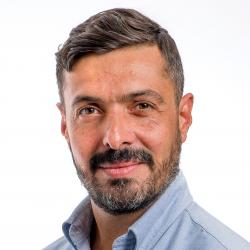
After concluding his studies on Political Sciences in Strasbourg (France) in 1998 , P. Alfonso worked from 1999 to 2004 as a Parliamentary Assistant to the Vice-Chairperson of the EP Employment and Social Affairs Committee.
He then worked for the Dublin-based the European Foundation for the Improvement of Living and Working Conditions. He eventually joined the European Transport Workers Federation (ETF) in October 2005 as Political Secretary for Maritime Transport, Fisheries and Dockers.
As from April 2011, he became full-time Political Secretary responsible for shipping. In this capacity he coordinates the work of the ETF Maritime Transport Section - which brings together the European seafarers’ unions – focusing on quality jobs and promoting the demand for European seafarers and maritime professionals, seafarers’ social rights and well-being, and the need for high-level training.
Christophe Tytgat
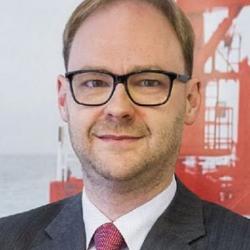
Martin Dorsman
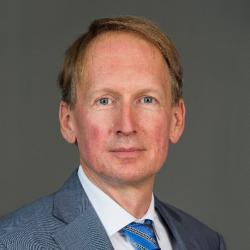
Martin Dorsman has been the Secretary General of the European Community Shipowners’ Associations since the 1st of November 2017. From June 2011 to the date of his appointment as Secretary General he had been the managing director of the Royal Association of Netherlands Shipowners (KVNR). From September 2006 to June 2011 he had been the KVNR’s deputy managing director.
Before joining the KVNR he had been employed by the Ministry of Economic Affairs, and as such had been working on macro-economic policy, regional economic policy and R&D-policy. In 1999 he joined the ministry of Transport, where he was responsible for fiscal maritime policy and other maritime policies. The latter two years of his employment at the ministry of Transport he was head of unit for the team responsible for the Betuwe freight rail track, running from the port of Rotterdam to the German border.
Katherine Bamford

Katherine Bamford is a member of the Leadership Team at Vancouver Fraser Port Authority serving as Director, Trade Development since 2012. Ms. Bamford is responsible for providing strategic leadership and daily management of the Port’s commercial customer engagement and outreach strategies, maintaining and growing market share across the Port’s five business sectors, and developing new markets through competitive marketing strategies and policies.
Ms. Bamford joined the Port Authority in 1992. Previous to her current role, Ms. Bamford provided leadership for the Port’s strategic external communications while supporting the organization’s federal and provincial government affairs and policy initiatives. With a background in corporate communications and public affairs, Ms. Bamford has played a major role in shaping the Port’s story in the media and with external audiences.
Ms. Bamford holds an executive MBA and a Graduate Certificate for Business in the Americas from the Beedie School of Business at Simon Fraser University. Ms. Bamford also holds a BA in English from the University of British Columbia, and is a graduate of the Anatomy of Shipping diploma program from the Cambridge Academy of Transport in Cambridge, England.
- how_to_reg Booking required
- location_on Off-site
BMW Plant, Porsche Plant or Amazon Center
Meet at Transport Information Desk, Level -1
Open Stage Café
ITF Stand
- lock_open Restricted participation
RailPax - Cross border passenger rail services between Belgium, Germany, Luxembourg and The Netherlands Presentation of the Final Report of the Four Country Platform
MPA2, Level 0
Fostering connectivity across borders
Hall 1, Level +1
The multitude of free trade agreements and improved connectivity in information technology have increased global and regional economic integration over the past few decades. As a result, production flows have become increasingly dependent on global and regional value chains, yet most infrastructure investments remain domestic. There is a growing need for cross-border infrastructure, which could be “soft”, such as improved coordination between customs, or “hard”, which includes improved physical connectivity of transport links, such as cross-border roads and railways. This session will focus on the positive impact of improved cross-border connectivity on trade, the challenges of cross-border infrastructure projects and lessons learned.
Key facts:
- Improvements in border crossing time will increase the overall traffic flow passing through Central Asia by 11% for road and 2% for rail by 2050 (ITF, in press)
- Asia Pacific Economic Cooperation (APEC) trade would increase by 7.5%, if all APEC countries reach regional average of customs efficiency (Helble et al., 2009)
- Full implementation of the World Trade Organization’s (WTO) Trade Facilitation Agreement (TFA) would reduce trade costs by an average of 14.3% and boost global trade by up to $1 trillion per year (WTO, 2015)
- A direct transportation link with trading partners more than doubles trade and tourism flows (Helble, 2014)
Lead questions:
- How can the link between trade facilitation and trade flows be fostered through improved connectivity?
- Better border management will require better coordination, collaboration and connectivity. What are some of the existing border control strategies that have successfully incorporated such a collaborative approach?
- What are some of the greatest trade facilitation challenges?
- In what ways will new technologies facilitate border crossing and foster connectivity?
- Logistics centers at border crossing points provide crucial services to accommodate growing freight flows. How can such infrastructure help foster connectivity across borders?
Background reading:
- ITF (in press) Enhancing Connectivity and Freight in Central Asia. OECD, International Transport Forum.
- Helble, M., B. Shepherd, and J. S. Wilson. (2007) Transparency and Trade Facilitation in the Asia-Pacific: Estimating the Gains from Reform, APEC and The World Bank Development Research Group.
- WTO (2015) World Trade Report 2015. Speeding up trade: benefits and challenges of implementing the WTO Trade Facilitation Agreement. World Trade Organization (WTO).
- Helble, Matthias. (2014) The Pacific's Connectivity and Its Trade Implications, ADBI Working Paper 499.
Melinda Crane

Melinda Crane is Chief Political Correspondent at Deutsche Welle-TV and hosts the talk shows "Quadriga" and "People and Politics" She was Senior Producer of "Global Players" on CNBC. She has moderated a wide variety of podium discussions and conferences for public organisations and private sector clients. Among her areas of expertise are transatlantic politics; women, family education issues; climate and environment; business and economics; new media and the internet. Crane holds a Juris Doctorate from Harvard Law School and a Doctoral Degree in political economy from the Fletcher School of Law and Diplomacy.
Karla Peijs

Karla Peijs was appointed European Coordinator for the TEN-T Rhine-Danube Corridor on 12 March 2014. Ms Peijs has previously been European Coordinator responsible for Inland Waterways, in particular Priority Project 18 Rhine/Meuse-Main-Danube, and Priority Project 30 Seine-Scheldt, between September 2007 and December 2013.
François Davenne

François Davenne, a graduate of the Ecole Nationale Supérieure des Télécommunications d’Evry in 1988 and of the Ecole Nationale d’Administration (ENA) in 1999, has always promoted interdisciplinarity as a key factor for success. After experience in international satellite telecommunications, his first assignments were in the housing sector and required strong financial and legal skills. He was involved in policy and regulation of the sector, and managed key operational programmes, in particular for the city of Paris. After three years in the French Ministry of Transport working on railway safety and regulations, with the emphasis on European regulations, he was elected Secretary General of OTIF in 2012, where, since 1 January 2013, he has promoted interdisciplinarity and partnership building to expand the uniform regulations for international carriage by rail. He’s currently Deputy Director General of UIC, the International Union of Railways. He will become Director General of the organisation end of June 2019.
Ana B. Hinojosa
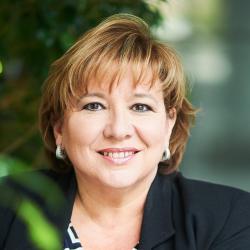
Director Hinojosa assumed her elected post in the Compliance and Facilitation Directorate of the World Customs Organization (WCO), effective January 1, 2016. She leads the directorate that is responsible assisting Members in implementing effective and efficient controls, ensuring fair and accurate revenue collection, and protecting society by intercepting and suppressing illicit and criminal activities. The directorate has the twin goal of securing and facilitating legitimate global supply chains through the simplification and harmonization of Customs procedures. In order to accomplish this, the Directorate, working with WCO Members, develops international standards covering all aspects of trade processes. Prior to her election and transition to her current post, she served nearly 29 years with the United States Custom Service/Customs and Border Protection (CBP). She is fluent in English and Spanish, and is currently studying French.
Gene Seroka

An industry-known leader, Gene Seroka brings more than 29 years of experience in shipping, global logistics and executive management to the Port of Los Angeles. As executive director of the busiest container port in North America, he is responsible for managing more than a $1 billion budget, leading a team of more than 900 employees, advancing major capital projects, growing cargo volumes, and promoting innovative, sustainable practices that improve Southern California’s economy and quality of life. His duties involve interacting with a wide range of stakeholders, including Port customers worldwide, supply chain partners, labor, community members, and elected and appointed officials at all levels. He is a member of the U.S. Department of Commerce Advisory Committee on Supply Chain Competitiveness, U.S. Department of Transportation Bureau of Transportation Port Performance Freight Statistics Working Group, U.S. Maritime Administration Marine Transportation System National Advisory Committee, and Federal Maritime Commission Supply Chain Innovation Team. He is an alumnus of the University of New Orleans, where he earned a Bachelor’s Degree in Marketing and a Master’s Degree in Business Administration.
Maximilian Eichhorn

Max is the global head of Strategy & Business Development of Siemens Mobility, a world market leader in sustainable transport technologies for rail and road. Earlier roles within the transport sector included Head of Digital Transformation of Siemens’ Intelligent Transport Systems, CEO of Siemens Mobility Australia and Global Head of Siemens’ Software Solutions for Railways. Earlier he worked seven years as a Management Consultant with strong focus on the Transport and Building Technology sectors. He started his career in a German “Mittelstands”-Champion. Max holds a Master of Science degree in Electrical Engineering from Technical University of Vienna, Austria, and a PhD in Logistics from University of Göttingen, Germany.
Hichem Ben Ahmed
In 1996, Hichem Ben Ahmed obtained the diploma of specialized graduate studies (postgraduate) at the IHEC of Carthage in management (tourism option) and a master's degree in high commercial studies in June 1992.
Hichem Ben Ahmed is Tunisia's Chief negotiator for the European Union Free Trade Agreement (ALECA),
In 2016, he was nominated Secretary of State for transport and then appointed in 2017 Secretary of State for foreign trade before his appointment as Minister of transport since November 2018.
He also served as Governor of Mahdia, the General Manager of Tunisair handling, the Secretary General of the governorate of Ben Arous and the advisor to Minister of Trade.
Hichem Ben Ahmed taught at the High school of commerce (ESC)
He was a member of several boards of Directors of the Tunisian Agency of electronic certification, Mauritanian Airways, Commissariat General for regional development, Etc.
Open Stage Café
ITF Stand
Connecting regions through rail
Hall 2, Level +1
Many urban areas depend on railways to move very large and ever increasing numbers of commuters. Medium-distance rail services (50-200km) have an important role in regional integration, including across borders. High-speed rail has fostered the development of mega-regions creating bustling networks of urban centers and offering a lower emission alternative to air or car travel. Rail plays a critical role in the development of sustainable cities, inclusive regions and mitigation of climate change. Yet, rail’s successful contribution to the sustainable and inclusive economic development of regions depends on how well matched regional characteristics and rail systems configurations are. New opportunities and challenges arising from growing urbanisation, emerging societal trends and new mobility services need to be integrated into planning for the development of rail services. This session will discuss these advantages and drawbacks and the unique features of rail in fostering connectivity at different regional levels.
Key facts:
By 2050 urban population is expected to be 66% of the total world population, up from 54% in 2015. Over the past decade personal vehicles have been responsible for most of the growth (76%) in urban passenger activity.
Electricity accounts for 39% of the global railways energy fuel mix, 68% in Europe, far above any other transport mode.
Energy use per passenger-km of high-speed rail is about 90% lower than aviation. CO2 emission intensity of urban rail per passenger-km is less than one tenth of passenger light duty vehicles.
Lead questions:
- How should rail change in the 21st century to improve urban connectivity and be a part of a seamless multimodal offer?
- How can sufficient funds be generated for adequate rail and metro systems to serve the mobility needs of large cities?
- What are examples of effective rail systems connecting regions over short and medium distances within a country and across borders?
- When is high-speed rail the right option? What are effective investment strategies to ensure that high-speed rail is well integrated with other transport systems (i.e. local rail, metro systems), as well as across regions and across borders?
- Rail vs. air travel: which are their advantages and drawbacks (i.e. competition in terms of economic benefits, environmental and climate change aspects)?
Background reading:
- Connectivity and City Clusters, ITF Roundtable Report, https://www.itf-oecd.org/connectivity-city-clusters [74]
- The Economics of Investment in High Speed Rail, ITF Roundtable Report, https://www.itf-oecd.org/economics-investment-high-speed-rail-0 [75]
- John Preston, The Economics of Investment in High Speed Rail, ITF Discussion Paper, https://www.itf-oecd.org/sites/default/files/docs/dp201330.pdf [76]
- Chris Nash, When to Invest in High Speed Rail, ITF Discussion Paper, https://www.itf-oecd.org/sites/default/files/docs/dp201325.pdf [77]
-
· John P. Drzik, Infrastructure around the world is failing. Here’s how to make it more resilient, https://www.weforum.org/agenda/2019/01/infrastructure-around-the-world-failing-heres-how-to-make-it-more-resilient/ [78]
Ali Aslan

Ali Aslan is an international television presenter, moderator and journalist. His career has included working for global news networks such as CNN, ABC News, Channel News Asia and Deutsche Welle TV.
Libor Lochman
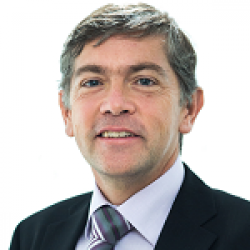
The Community of European Railway and Infrastructure Companies (CER) brings together more than 70 railway undertakings, their national associations as well as infrastructure managers and vehicle leasing companies. Prior to his current role, Libor Lochman was CER Deputy Executive Director and leader of technical affairs.
Björn Westerberg
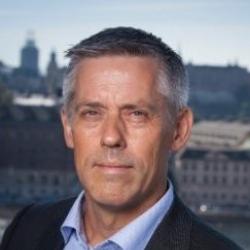
Björn Westerberg is the CEO of ASTOC – The Association of Swedish Train Operating Companies (42 members). Björn is a policy professional, working to enhance the quality , capacity and competitiveness of railway operators in Sweden and the EU. Previously he held several positions with SJ, the Swedish National Railway Co, i.e. Head of Strategy, Head of High Speed Train Procurement and Head of ERTMS. Before joining SJ, Björn was a partner at a technology strategy advisory firm for six years. He has been an advisor to industrial companies, government agencies, start-ups, venture capital firms and financial institutions on strategy, technology, and financing. Björn holds a business degree from the Stockholm School of Economics and a M.Sc. in Management, Sloan Fellow, from Stanford Graduate School of Business, Stanford University, USA.
Akiko Yoshida
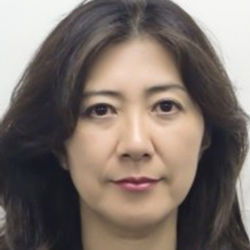
Ms. Akiko Yoshida is Assistant Vice Minister for International Affairs for the Ministry of Land Infrastructure, Transport and Tourism(MLIT) of Japan.
She has held various positions in the MLIT and other government agencies in the transport and tourism sector including railways. Recently, she worked as a legal advisor to a London Based IGO, IOPC Funds. She earned a Bachelor of Laws from Kyoto University in Japan and a LL.M. from NYU School of Law in the United States.
Anton Sevastyanov
Graduated from Lomonosov Moscow State University with the major in Mechanics and Mathematics. Also, received an MBA degree in Euromanagement from the Russian Presidential Academy of National Economy and Public Administration. From 2011 until 2015, worked in private financial and oil&gas companies where was in charge of business and financial analytics and various projects. In 2015, entered Moscow Metro as Manager of Investment Development Department. In 2018, appointed as Director of Investment Development Department.
In Moscow Metro Anton Sevastyanov is in charge of:
- long-term strategic development
- investment planning and analysis
- investment control
- project management.
Jerry Zhe Li

Mr Li is based in Hong Kong and is responsible for three functional areas: development and execution monitoring of MTR’s corporate strategy, development and delivery of corporate-level innovation programs, and management of Information Technology services. Prior to joining the MTR, he was a Managing Director at Accenture, with leadership roles across numerous practices, including Consulting, Technology, Digital and Operations in the Asia Pacific region. Mr. Li graduated from University of California in Los Angeles USA with a Bachelor of Science degree in Computer Science.
Sassi Hammami
Mr. Sassi HAMMAMI, a trained engineer with a focus on "Transport", began his career in 1980 in the Ministry of Transport where he participated actively in several studies and reform and restructuring cases in the transport sector. He held the posts of Head of Service, Assistant Director and Head of Central Administration.
Since 2012, he is Secretary General of the Ministry of Transport. In this role, he ensures coordination between the Ministry's structures and the public institutions and enterprises under his supervision.
Ensuring access for remote and rural communities
Hall 3, Level +1
45% of the population worldwide lives in rural areas. While the overall share of people living in predominantly rural remote areas has declined, there are multiple economic pressures that justify developing better connectivity for these communities. For example, access to economic opportunities, health and education is low and geographical distance to major markets means higher costs for services and goods. Economic crisis has disproportionately affected remote rural regions and remote rural areas often face double demographic pressure, with both higher shares of elderly and young populations with diverse mobility needs (OECD 2016 & 2019).
Policy makers have put in place diverse policies supporting connectivity for remote communities. As the costs of addressing connectivity of low-density areas are often an issue, governments seek to increase the effectiveness and efficiency of their policies (ITF, 2018).
This session will explore the national policies developed in ITF countries and how effective they are in delivering regional and remote connectivity across all transport modes. The session will aim at answering the following questions:
- How to measure the level of connectivity of remote communities and identify critical gaps in coverage?
- How to quantify the costs and benefits of policy measures to support regional connectivity?
- How to develop efficient policy frameworks for supporting regional connectivity?
Note: This session will serve as an input to a high-level ITF Expert Event hosted by Transport Canada in Ottawa at the end of September 2019.
Background reading:
ITF (2018), “Government Support Measures for Domestic Air Connectivity”, https://www.itf-oecd.org/sites/default/files/docs/domestic-air-connectivity_0.pdf [54]
OECD (2016), “OECD Regional Outlook”, http://www.oecd.org/regional/oecd-regions-at-a-glance-19990057.htm [79]
OECD (2019), “OECD Regional Outlook”, http://www1.oecd.org/fr/regional/oecd-regional-outlook-2019-9789264312838-en.htm [80]
Juliette Foster

Juliette Foster is an award-winning broadcaster and businesswoman. She has worked for the BBC (British Broadcasting Corporation) and has anchored flagship programmes at Bloomberg Television, Sky News and BBC World Service Television.
Helen Hughes
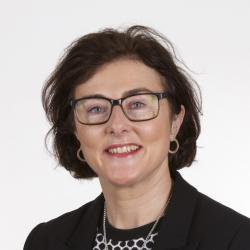
Helen was appointed Director of TII’s Professional Services Division in 2015 following the establishment of Transport Infrastructure Ireland. This Division provides technical expertise to support the delivery of TII funded projects and network operations. Her responsibilities include transport planning, land use planning, environmental policy, road and light rail safety, research and standards. Her previous role was the Head of Strategic and Transport Planning in the National Roads Authority. Helen has over 30 years of experience in transport planning, project appraisal and project management and has worked in the UK, Ireland and France in the public and private sectors. She is a Chartered Engineer and holds a Bachelor of Civil Engineering degree and a Diploma in Project Management. She has been a Council Member of Engineers Ireland and Chairperson of WITS, a voluntary organisation supporting women in science, technology, engineering and mathematics.
Timothy Reuter
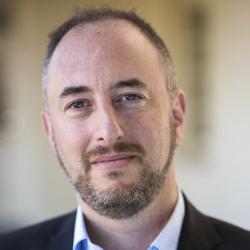
Timothy Reuter is Head of Drones and Tomorrow’s Airspace at the World Economic Forum. Prior to joining the Forum, he worked at Google[x] on drone delivery. A serial robotics entrepreneur, Timothy was founder and CEO of a company that designed, manufactured, and distributed a personal flying camera product and subsequently founded another company that built food delivery robots. Before developing a passion for robotics, Timothy worked for the US government at the State Department and USAID. He has a master’s degree from Johns Hopkins University in economics and international affairs.
Yohei Fujigaki

Yohei Fujigaki is an expert of mobility service design, planning, and analysis. After working as a social simulation engineer and consultant at KOZO KEIKAKU ENGINEERING Inc. in Japan, he had been researching Mobility as a Service (MaaS) design methodology in the University of Tokyo, and earned Ph.D in 2018. His previous work was Research Fellow of the Japan Society for the Promotion of Science. He is now leading the development of MaaS application and services in Odakyu Electric Railway.
Ofelia Betancor
Ofelia Betancor is an Associate Professor of Economics at the University of Las Palmas de Gran Canaria (Spain) and currently, the Head of the Department of Applied Economic Analysis. She holds a MSc in Economics by the University of London, and two doctorate degrees in Economics (Institute for Transport Studies-University of Leeds and University of Las Palmas). She has participated in many research projects at national and international level. Of special relevance is her participation in European projects. Currently she is also Vice-Chair of the COST Action TU1408 on Air Transport and Regional Development (ATARD). She has also collaborated with the World Bank and the Inter-American Development Bank, having participated in several missions in Latin America and the Caribbean as specialist in air transport and the economic evaluation of projects and transport policies.
Gloria Hutt Hesse

Ms. Hutt Hesse holds a degree in Civil Engineering from the Catholic University of Chile and she has completed International Finance and Business Administration programs at Georgetown University. She was a Professor for the Master’s in Public Policy program in the School of Economics and Business of University of Chile. From June 2014 to January 2018, she was a partner of Quiz Consulting, specializing in transportation studies. She was a member of the board of directors of the Mejillones port facilities company Complejo Portuario Mejillones and consultant for the think tank Consejo de Políticas de Infraestructura and think tank Horizontal. For 12 years, Ms. Hutt Hesse was a partner and Regional Director for Latin America at Steer Davies Gleave, a prestigious British consulting firm specializing in transportation. There she was in charge of operations in Chile, Colombia, and Puerto Rico, and later broadened the presence of the company to Brazil and Mexico. She was a founder member and also the coordinator and general manager for the Evópoli political party. From 2010 to 2014 she acted as Transportation Viceminister. During her office, she coordinated the creation of the National Transportation Policy and development master plans for public transportation and national port and rail systems, proposing a long-term vision for Chilean transportation. A year ago Gloria Hutt Hesse became Minister of Transport and Telecommunications in Chile. In her spare time, she does gardening and follows her passion of designing sewing.
Eléonore Lacroix
Born in 1974, a former student of Ecole Normale Superieure and qualified teacher in philosophy, Eleonore Lacroix started by teaching philosophy in high schools and universities. After graduating the Ecole Nationale d’Administration, she joined the local administration of the Ministry of Interior. She occupied various positions in the fields of global policies among which management of crisis and urban policies. In July 2014, she integrated the RATP Group foundation as Executive Delegate. She is now Head of General Studies, Development and Territories, member of RATP Group Directory Board, with the core mission to anticipate adaptations of mobility to territories ‘evolutions through various fields of expertise.
- lock_open Restricted participation
ITF Corporate Partnership Board Meeting
Hall 4, Level +1
Drafting guidelines for global road safety up to 2030 – in preparation for the 3rd Global Ministerial Conference on Road Safety
MPA3, Level 0
Last year the UN General Assembly designated Sweden as the host of the 3rd Global Ministerial Conference on Road Safety. The conference, February 19-20 in Stockholm 2020, marks the end of the UN Decade of Action for Road Safety 2011–2020. The aim is to reach a global consensus on guidelines for road safety up to 2030 and help make roads safe around the world. It will also be the place to discuss the path, ambition and strategies ahead. Sweden is looking for an inclusive process. At the ITF Summit 2019 conference, Swedish government Offices organise a Stakeholder Event as a part in preparing the 3rd Global Ministerial Conference.
A significant change compared with ten years ago is the United Nation’s sustainability goals. These goals give a new structure to sustainability and have added traffic safety as one of the elements. As the 2030 Agenda goals are indivisible, there are possibilities to find synergies between road traffic safety and other sustainability areas. Illegal speeding is emitting lots of CO2. Unsafe traffic environment is diminishing active mobility. Gender imbalances can result in a car-centric planning of our cities. The synergies need to be discussed and the new opportunities explored.
This session invites speakers and attendants to discuss the potential content of the 2020 ministerial conference and – more importantly – the guidelines for the future work on road safety. Potential areas of discussion may be road safety issues integration with other UN’s sustainable development goals, future global collaboration for road safety and general strategies for safer roads around the world.
Background 3rd Global Ministerial Conference
Sweden is to host the 3rd Global Ministerial Conference on Road Safety on 19–20 February 2020 at Waterfront Congress Centre in Stockholm. The conference will be co-sponsored by the World Health Organization (WHO), and minister-led delegations from more than 80 countries are expected to attend. Representatives from the world of industry and research, international institutions and other global organizations will also participate.
Every year there are about 1.35 million road traffic fatalities globally. This not only causes human suffering, but also major economic losses. In a vigorous effort to prevent this, world leaders gathered in Moscow in 2009 to declare 2011–2020 a Decade of Action for Road Safety. The Decade of Action has encouraged action at all levels of society, but the focus is primarily national and local. Five pillars have been established to guide the efforts of national and local governments. A follow-up conference was held in Brasilia in 2015. The Stockholm conference marks the end of the UN Decade of Action for Road Safety and the starting point for continued collaboration on road safety.
Some facts (WHO Global status report on Road Safety 2018)
- Over 3 700 people die on the world's roads every day and tens of millions of people are injured or disabled every year.
- The number of road traffic deaths continues to rise steadily, reaching 1.35 million in 2016. The rate of death relative to the size of the world’s population has remained constant.
- Children, pedestrians, cyclists and older people are among the most vulnerable of road users.
- Road traffic injuries are currently the leading cause of death for children and young adults aged 5–29 years.
- There has been no reduction in the number of road traffic deaths in any low-income country since 2013.
Speakers;
- Mr Tomas Eneroth, Swedish Minister of Infrastructure, Host
- Mr. Abdelkader Amara, Morocco Minister of Equipment, Transport, Logistics and Water,
- Ms Karla Gonzalez Carvajal, Manager for Europe and Lead Manager for the Gender Agenda in the Transport Sector, The World Bank
- Ms Emma Maclennan, Director General of the Eastern Alliance for Safe & Sustainable Transport
- Ms. Seleta Reynolds, General Manager, Los Angeles Department of Transportation
- Mr David Ward, President & Chief Executive Officer, Toward Zero Foundation
- Mr Anders Lie, Special Adviser at the Swedish Ministry of Infrastructure, Moderator
Open Stage Café
ITF Stand
Sustainable road transport connectivity across borders
Hall 5, Level +1
Roads are the oldest and most popularly used mode of transport since they are directly connecting goods, people and services door-to-door or being the “first and last mile” for other modes of transport such as maritime, air and railways.
An efficient road transport network directly contributes to sustainable transport connectivity and regional integration. Efficiency lies on lower transportation costs, integration of rural economies, generation of savings in travel time and trade through cross-border facilitation and sustainable road infrastructure development.
However, in most regions, connectivity of road networks is being followed by many challenges such as long waiting times at borders, poor road sections, differences in the vehicle weight and dimension and other safety requirements, driving restrictions in some areas, lack of adequate insurance products covering cross border and transit transport of vehicles, different formats for road signs, signals, signage and markings, visa application processes for professional drivers etc.
Countries report important differences in modal choice for transport, though road transport remains the dominant mode for both inland freight and especially passenger transport in most ECE countries. The share of tonne-kilometres by road in inland transport is over 50 per cent in 15 of the 23 countries reporting data to UNECE, and the share of passenger kilometres by road is over 70% in every available UNECE country, and up to 90% in some member States.
In light of the importance of the road sector for cross-border and transit transport, UNECE, IRU, PIARC and IRF are jointly organizing a side event entitled “Sustainable road transport connectivity across borders”. Senior representatives from the co-organizing organizations will open the 1.5 hours roundtable event involving 8-10 high-level panellists from governments the private and NGO sectors.
The panellists and the participants will have the opportunity to discuss and exchange experience and good practices on the three pillars of sustainable road transport: efficiency, safety and environmental sustainability. In particular, the panellists will share the challenges they face in their road transport networks and operations, using these challenges as an opportunity to highlight the successful infrastructure and facilitation solutions which they have implemented, are piloting or which are emerging.
There will be a spotlight on various challenges relating to traffic rights, customs, contracts on the international carriage of goods by road, road safety, visa for professional drivers and crew, insurance, emission control, dimensions of vehicles, infrastructure standards, road signs and signals, vehicle regulations, the transport of dangerous goods and professional driver fatigue. Innovative infrastructure projects, pilot projects or initiatives from around the world will also be discussed.
The objectives of this side event are to promote sustainable solutions to cross-border and transit transport by road as an indispensable part of transport connectivity, as well as to highlight selected innovative infrastructure projects or initiatives which the co-organizers are involved in. The side event targets to attract a large audience of governments, private sector, academia, MDBs, regional and sub-regional organizations and NGOs, which are working for infrastructural and operational connectivity by road and interested in participating in the Summit on this topic.
This event links well with the 2019 ITF theme of ‘Transport Connectivity for Regional Integration’ as it examines the key enablers of sustainable road transport connectivity.
Speakers:
- Mr. Kiran Kapila, Chairman, IRF
- Mr. Umberto de Pretto, Secretary General, IRU
- Mr. Patrick Mallejacq, Secretary General, PIARC
- Mr. Yuwei Li, Director, Sustainable Transport Division, UNECE
- Mr. Sergey Andreev, Deputy Director, Ministry of Transport, Russian Federation
- Ms. Susanna Zammataro, Director General, IRF
- Mr. Yergen Koziy, Senior Coordinator, BSEC Organisation
- lock_open Restricted participation
Financing infrastructure connectivity
MPA2, Level 0
Financing transport infrastructure remains a key challenge for authorities. Increasingly many governments seek private sources of finance to realise their infrastructure needs. “Financing” infrastructure, is about who borrows the money for the project, whereas “funding” is about who repays what was borrowed. There can be no financing without funding. Calling on users of the infrastructure or taxpayers to pay more, however, is often politically challenging. Hence how to spend available money more efficiently remains a major question and the context in which private finance should be considered.
To date, even in countries that most embraced private financing of infrastructure, it has never represented more than 10% of total infrastructure investment, the rest being financed by public sources.
Public-private partnerships (PPPs) in roads currently dominate transport infrastructure. In recent years, Europe has seen a flurry of negative reports on PPPs by national audit authorities, challenging the political sustainability of the approach.
ITF recently concluded a major research project, exploring when and how to involve private finance in transport infrastructure. Key findings of the work highlight that the state should reduce uncertainties the contractors face in the bidding process, by investing more effort in creating information about risk and taking responsibility for it. Second, greater discrimination is necessary in terms of where PPP is a good fit. Third, there may be other options than PPP to involve private finance in transport infrastructure.
Suggested topics for discussion include:
- What are the experiences with building strong in-house capacity to help governments become better at engaging with the private sector in procurement?
- What lessons have been learned with regard to private investment in dealing with the recent global financial crisis?
- What political preconditions are necessary for countries to consider private financing of infrastructure?
- How can infrastructure investment be made more attractive for the private sector?
Background reading:
- What is PPP and what is Regulatory Asset Base: https://www.itf-oecd.org/sites/default/files/dp_2016-01_makovsek_and_veryard.pdf [81]
- ITF’s recently concluded major research project: https://www.itf-oecd.org/private-investment-transport-infrastructure-uncertainty [82]
Pat Cox

Pat Cox has been President of the European Parliament Former Members’ Association (2010-2014), President of the European Movement International (2005-2011), a former President of the European Parliament (2002-2004), and Member of the European Parliament (1989-2004). Between 1998 and 2002 he was President of the European Liberal Democrat and Reform Party (ELDR) Group European Parliament. Prior to this Cox was a current affairs television broadcaster for RTE, Ireland's national broadcaster, from 1982 to 1986 and Secretary General Progressive Democrat Party (Ireland) between 1986 and 1989.
Paulius Martinkus

Mr. Paulius Martinkus is Vice-Minister of Transport and Communications of the Republic of Lithuania since 29 December 2016. Paulius is responsible for aviation, road, rail and maritime policy departments within the ministry. After graduating from Stockholm School of Economics in Riga (BSc in Economics and Business) he worked as Project Manager at GILD Bankers (Tallinn, Estonia, 2006-2009) and Group Finance Controller at JSC "the Book" (2009–2011). Later he was Head of Governance Coordination Centre for State-Owned Enterprises (2011–2013), President of Baltic Institute of Corporate Governance (2014–2016). Since 2008 he has served as professional member of Boards of Directors in private and state-owned enterprises. Currently Paulius holds board member position in state owned enterprises JSC "Lithuanian Railways", SE “Klaipėda State Sea Port Authority” and JSC “Smiltynės perkėla”.
Supee Teravaninthorn

Hartmut Mangold
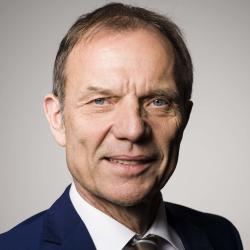
From 1977 to 1982, Dr. Hartmut Mangold studied law, German language and literature at the Universities of Freiburg
and Regensburg, completing a doctorate in philosophy (Dr. phil.) in 1988.
He was the Head of Department at Brandenburg’s Ministry of Science, Education and Culture,and later moved to the Brandenburg State Chancellery. Mangold then became the Head of Department at the Federal Chancellery.
He worked as Ministerialdirigent (head of a ministerial section) at the Federal Ministry of
Transport, Construction and Urban Development.
Dr. Hartmut Mangold has been the State Secretary at the Saxon State Ministry for Economic Affairs,
Labour and Transport since December 2014.
Ángela María Orozco Gómez
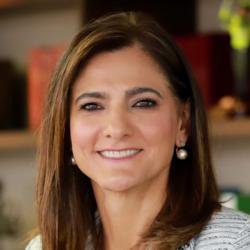
Ángela María Orozco Gómez is a Barranquilla lawyer from Universidad Javeriana with a Master's degree in Comparative Jurisprudence from the University of Texas (United States), a specialist in Economic Law from the Externado University of Colombia and a Fellow at the Yale World Yale University (2003). She was designated as one of the 100 global leaders of tomorrow by the World Economic Forum (2000), as one of the 10 outstanding young people of Colombia by the Junior Chamber of Colombia (2000) and as the year's Foreign Trade executive by the Association of Foreign Trade Directors 2001). She has worked in the public sector as Minister of Foreign Trade (2002), President of Proexport (2000-2002) and Vice Minister of Foreign Trade (1998- 2000). She excelled in positions such as General and International Manager and Vice President of the Colombian Association of Flower Exporters (Asocolflores, 1995-1998), Head of the legal office of the Superintendency of Securities, where she was also an advisor (1994-1995), Associate Lawyer in Araújo Ibarra & Asociados (1993-1994); Economic Advisor to the Embassy of the United States (1993), Deputy Director of Trade Promotion Instruments (1992-1993) and Head of the Legal Division of the Commercial Practice of Incomex (1990-1992). She has also served as a member of international trade dispute settlement panels within the framework of the WTO (2015-2016) and ALADI (2004).
Akaki Saghirashvili
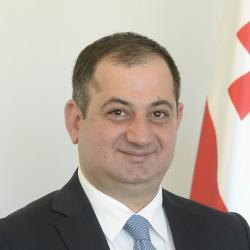
Mr. Akaki Saghirashvili is the Deputy Minister of Economy and Sustainable Development of Georgia since 1 October 2018. Prior to this position, during 2007-2018 he took several positions at Georgian Railway: Head of Corporate Management Department; Deputy Director of Infrastructure Branch (in charge of administrative and legal issues); Head of Legal Services Office, Head of Permanent Commission on Capital and Stock Management; Deputy Head of Legal Services Office; Advisor to Executive Director on Legal Issues; Lawyer, Rental Relations Administration Group, Property Management Agency. During 2009-2011, Mr. Saghirashvili was a Lecturer of Civil Law at Caucasus School of Law.
Mr. Saghirashvili holds MA Degree in Civil Law from Ivane Javakhishvili Tbilisi State University and MA Degree in Civil Law from Rheinische Friedrich-Wilhelms-Universität Bonn.
Elmir Velizadeh
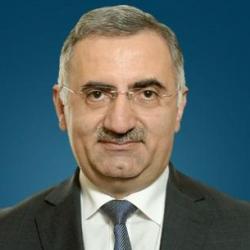
Elmir Velizadeh has been Deputy Minister of Transport, Communications and High Technologies since 2018.
He is a graduate of Azerbaijan Oil and Chemistry Institute (now Azerbaijan State Oil and Industry University) with Bachelor’s Degree in Automated Control Systems.
He worked at Computing Center of Azerbaijan Oil and Chemistry Institute. In the period of 1989 to 1991, while working there he continued pedagogical activities in Computing machines and programming chair. He was engaged in scientific researches on artificial intellect and expert systems and is the author of some scientific articles and teaching aids.
Abdulla Belhaif Al-Nuaimi

His Excellency Dr. Eng. Abdulla Al-Nuaimi joined the Federal Government in 2013 as Minister of infrastructure Development, which is responsible of developing the infrastructure of the federal state road networks and federal buildings (schools, hospitals, government buildings, research centers, cultural and sports centers, police stations and civil defense, housing for the citizens, and other governmental projects).
Beside his responsibilities as a Minister Dr. Eng. Abdulla Al-Nuaimi is Chairman of Sheikh Zayed Housing Program and also he is a Chairman of Federal Transport Authority.
Dr. Eng. Abdulla Al Nuaimi holds a Ph.D. degree in Construction Management from the University Of Reading, UK (1990), and a Bachelor degree in Mechanical Engineering from the University of Wisconsin in USA (1980). Among his hobbies playing tennis, swimming and reading.
Cocktail Reception
Exhibition Area
The Cosmic Artists Airtrack Show
Outside Glass Hall
Spectacular, dynamic, versatile and unique, this is the short but most accurate description for this act performed by the Cosmic Artists.
This firework of artistic jumps surprises over and over again with spectacular combinations, dance and acrobatics of the former Cirque du Soleil artists.
Gala Dinner
Glass Hall
Coffee at ITF Stand
ITF Stand
Looking towards the 2020 Summit: Transport innovation for sustainable development
MPA3, Level 0
This networking session will focus on possible themes for the 2020 Summit on Transport Innovation for Sustainable Development.
Summit participants will be invited to share their ideas and suggestions regarding the most pressing issues in transport innovation they would like to see on the agenda.
Melinda Hanson
Melinda Hanson, Senior Manager for Sustainability, joined Bird from the National Association of City Transportation Officials, where she served as deputy director of NACTO's international programs. Before that, Melinda was a consultant for the Asian Development Bank, helping design and implement public transit projects in Pakistan and the Philippines. Earlier in her career, she was a founding staff member of the ClimateWorks Foundation where she managed the sustainable transport portfolio
Robert Guild
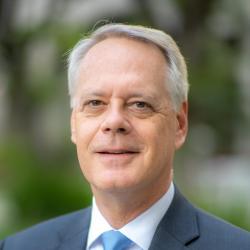
Dr Robert Guild is Chief Sector Officer of the Asian Development Bank. He is responsible for ADB-wide technical collaboration, innovation, and knowledge management for sector groups in transport, energy, urban, water, education, health, and finance; and coordination with thematic groups for agriculture and rural development, gender, social development, environment, regional cooperation, and climate change and disaster risk management. He is also responsible for management and resource mobilization for 19 bank-wide trust funds covering all sectors.
Dr Guild is an expert on infrastructure investment for social and economic development. He has advised governments, the private sector, and multilateral institutions in over two dozen countries in Asia, the Pacific, and Latin America on public investments, public-private partnerships, and national and regional development plans. His published work covers transport and urban economics, interregional development, and public investment policy.
Dr Guild began his career as an engineer in the United States and has worked extensively for bilateral and multilateral agencies in international development. He has held faculty appointments at universities in the United States, the Pacific region, and New Zealand. He has been with the Asian Development Bank since 2003.
Dr Guild holds degrees in civil engineering, public administration, urban and regional planning, and international development.
Heather Thompson
Heather Thompson brings decades of experience in the environmental non-profit sector to ITDP. Most recently, she has been advising clients, including the Asian Development Bank, The David and Lucile Packard Foundation, and the Environmental Defense Fund, in designing strategies that will have a large-scale impact. Ms. Thompson has been involved with ITDP for many years, initially as co-founder and Vice President of programs for ClimateWorks. Ms. Thompson has sat on the ITDP board of directors for the last eight years, serving as board chair for the last two years. She holds a MSc in environmental economics from the University of York, U.K. and a B.S. in biological sciences from the University of California, San Diego.
Katja Schechtner

Katja Schechtner is an urban scientist who holds a dual appointment between MIT and OECD to develop new technologies and shape innovative policies to keep cities on the move.
Currently she focuses on the future of algorithmic governance - and what it will mean for cities and citizens’ mobility when the legal code is fully implemented in digital code. She also leads ITF’s work on global regulation for drones – in order to ensure their acceptance and integration with the overall transport system and her passion for creating inclusive growth is reflected in the report she will be presenting at the summit: “Expanding Innovation Horizons – Learning from Transport Solutions in the Global South”.
Previously she worked at the Asian Development Bank implementing transport technology projects across Asia; formulated smart public space strategies for the Inter-American Development Bank in Costa Rica and Argentina; advised the EU Commission on Smart City programs and headed the applied research lab for Dynamic Transportation Systems at the Austrian Institute of Technology.
Katja has published widely, both in scientific journals and the popular press in the US, Asia and Europe, including two books: “Accountability Technologies – Tools for Asking Hard Questions” and “Inscribing a Square – Urban Data as Public Space”, (Birkhaeuser, 2012 and 2014). She is an advisor to start-ups in the urban, mobility and crypto industries in the US and Europe and to city planning authorities, mainly in Europe and Asia.
Her work has been exhibited globally at venues such as Venice Architecture Biennale, MAK , Cooper Hewitt and ars electronica. She also holds a Visiting Professorship at Technical University Vienna and curates urban tech exhibitions across the globe. Most recently her project to design and implement contemporary e-trikes in Nepal and Laos was awarded in the Fast Company World Changing Ideas 2018 transportation track and she will exhibit her work on Manila’s smart urban lighting at the Seoul Urbanism Biennale in fall 2019.
Ray O'Leary
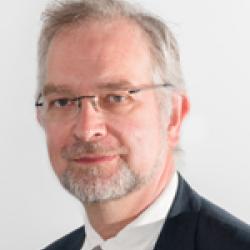
Ray O’Leary is the Assistant Secretary dealing with Roads and Road Safety. He also has administrative responsibilities for the Air and Rail Accident Investigation Units which operate independently of the Department under EU and international law. His area covers the Department’s investment, policy and oversight roles in relation to roads, and a range of areas relating to road safety and regulation of traffic generally, including bodies such as Transport Infrastructure Ireland, the Road Safety Authority and the Medical Bureau of Road Safety.
He previously worked in the Tourism Division and, prior to joining the Department, worked in the Department of Finance and the Department of the Environment. He has also worked in the former Southern and Eastern Regional Assembly and started his career in UK and Irish local government, after studying Urban and Regional Planning and Civil Engineering.
Improving access in cities: Findings from Europe and Latin America
Hall 2, Level +1
Transport provides citizens with access to goods, services, jobs and other opportunities. Transport planning has typically focused on enabling people to move faster. Accessibility indicators can be powerful tools for helping shift the policy focus from increasing movement to improving access. Clearer metrics and presentational tools could support efforts to put access issues higher in the political agenda, as well as guide decision makers more effectively.
The session will feature findings of a joint ITF, OECD and European Union project to develop a common set of indicators and a benchmarking tool for improving access in European cities. It will also explore the results of applying the methodology to Latin American cases.
Key facts:
- ITF’s accessibility indicators show that five million Europeans, 8% of everyone on urban commuting zones, cannot reach a hospital in 30 minutes.
- Transport for London (TfL) reports that the use of access indices was fundamental to doubling the modal share of public transport between 1995 and 2012.
- In many cities, formal transport systems co-exist with informal and quasi-informal ones. For example, in Mexico City, more than 11 million trips per day are made on informal buses. Including these informal modes of transport in accessibility indicators is essential, requiring new and alternative data sources.
Lead questions:
- If “you can’t manage what you don’t measure”, what indicators of success in delivering access should we be providing to decision-makers?
- Which European cities are most accessible and why?
- How successful are Latin American cities in ensuring equitable access to employment and basic services?
- How do transit-oriented demand policies measure up in enhancing accessibility across metropolitan areas?
Background reading:
- Access and Safety in European Cities, ITF 2019, https://www.itf-oecd.org/accessibility-and-safety-european-cities [83]
- The State of European Cities 2016, European Commission 2016, https://ec.europa.eu/regional_policy/en/policy/themes/urban-development/cities-report/ [84]
- Towards harmonized indicators on access to urban public transport in Europe, European Commission 2016, https://ec.europa.eu/regional_policy/sources/conferences/udn_brussels_2016/7.1%20Hugo%20Poelman%20Regio.pdf [85]
- COST Action on Accessibility Instruments for Planning Practice, European Science Foundation 2012, http://www.accessibilityplanning.eu/wp-content/uploads/2012/10/COST-Report-1-FINAL.pdf [86]
- ¿Qué implica la accesibilidad en el diseño e implementación de políticas públicas urbanas?: Concepto, instrumentos para su evaluación y su rol en la planificación de la movilidad urbana, IDB 2018, https://publications.iadb.org/en/que-implica-la-accesibilidad-en-el-diseno-e-implementacion-de-politicas-publicas-urbanas-concepto [87]
- Equal Access to Opportunities: Expanding Transportation Choices in the Global South, World Resources Institute, 2019.
Ali Aslan

Ali Aslan is an international television presenter, moderator and journalist. His career has included working for global news networks such as CNN, ABC News, Channel News Asia and Deutsche Welle TV.
Philipp Rode
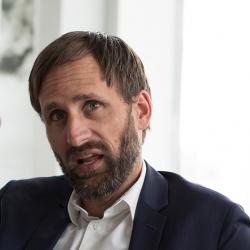
Philipp Rode is Executive Director of LSE Cities and Associate Professorial Research Fellow at LSE. He is co-director of the LSE Executive MSc in Cities and co-convenes the LSE Sociology Course on ‘City Making: The Politics of Urban Form’. As researcher, consultant and advisor he has been directing interdisciplinary projects comprising urban governance, transport, city planning and urban design at LSE since 2003. The focus of his current work is on institutional structures and governance capacities of cities and on sustainable urban development, transport and mobility. He is co-directing the cities workstream of the Global Commission on the Economy and Climate and has co-led the United Nations Habitat III Policy Unit on Urban Governance. He has previously led the coordination of the chapters on Green Cities and Green Buildings for the United Nations Environment Programme’s Green Economy Report. Dr Rode is Executive Director of the Urban Age Programme and since 2005 organised Urban Age conferences in over a dozen world cities bringing together political leaders, city mayors, urban practitioners, private sector representatives and academic experts. He manages the Urban Age research efforts and recently co-authored Towards New Urban Mobility: The case of London and Berlin (2015), Cities and Energy: Urban morphology and heat energy demand (2014), Going Green: How cities are leading the green economy (2012) and Transforming Urban Economies (2013). He has previously worked on several multidisciplinary research and consultancy projects in New York and Berlin and was awarded the Schinkel Urban Design Prize 2000.
Lewis Dijkstra
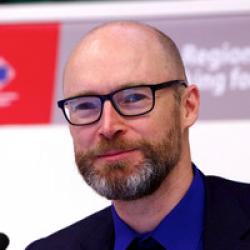
Information pending.
Clayton Lane
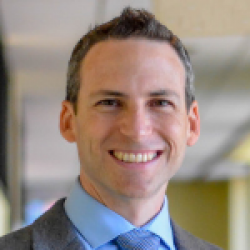
Clayton has 20 years of experience as a social entrepreneur, mobility expert, and international executive. He is a collaborator, communicator, and builder. Clayton co-founded PhillyCarShare and grew it to become the largest regional car-sharing system in the world, serving 50,000 members, nearly 500 vehicles, and achieving ~90% market share. PhillyCarShare displaced about 20,000 cars, reduced driving by ~50 million miles, and avoided ~46,000 tons of CO2. The company received accolades as a Harvard Innovation in American Government finalist, Best Places to Work, and EPA's prestigious Environmental Achievement. More recently as CEO of ITDP, COO of EMBARQ, and Deputy Director of WRI Cities, Clayton has led 100-200 passionate professionals to influence mobility policy & plans in over 50 cities of Brazil, China, India, Indonesia, Kenya, Mexico, Peru, Turkey, and the U.S. Clayton has played key roles in raising over $100 million; leading strategy; and forging partnerships with governments, banks, UN agencies, NGOs & companies. He also has overseen top-notch research teams authoring the "Bike Share Planning Guide" and BRT and TOD Standards. Outcomes have tangibly improved lives -- from bike sharing in Tianjin and Guangzhou, to complete streets in Chennai, to Mexico's groundbreaking climate policy. Clayton's background is city planning and mobility. He currently advises WhereIsMyTransport on data strategy and international partnerships -- empowering people and cities to access opportunity in greener, safer, inclusive mobility. He speaks regularly at high-profile international events. Most recently, he played a key role in developing the Shared Mobility Principles. Clayton began his career as a transport planner with PB, where he led BRT & rail plans; and estimated ridership, costs, and economic impact. Clayton holds two Masters degrees from MIT in transport and city planning. He loves cities, technology & culture, and enjoys dancing salsa, photography, and triathlons.
Sergio Avelleda
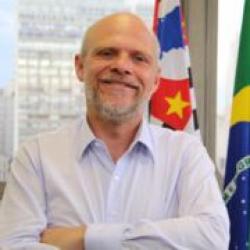
Sergio Avelleda is the Director of Urban Mobility at WRI Ross Center for Sustainable Cities. Before joining WRI, Sergio was the Secretary of Mobility and Transport in São Paulo, Brazil, where he was responsible for managing traffic challenges and the most extensive bus system in the world. He led more than five thousand people and spearheaded city implementation of Vision Zero programs to reduce traffic fatalities. Sergio was additionally in charge of taxi regulation and transport mobile apps, as well as the management of the freight transport system. He was president of the São Paulo Metropolitan Company, which transports 4.5 million people daily on four subway lines. Sergio changed how the company interacted with its users, incorporating SMS reporting and other programs, which were awarded by UITP. During his period, the company was constructing three new lines at the same time, and he led the negotiation with multilateral agencies. Prior, he had been president of the suburban trains companies in São Paulo (CPTM), a company with more than 8,000 employees and an annual revenue of $800 million. CPTM serves 22 municipalities, providing transportation for 2.1 million passengers per day. Sergio is a lawyer, and he received his MBA in 2012, at the Insper – Instituto de Ensino e Pesquisa in São Paulo. He is a cyclist and is passionate about connecting people in cities.
Aimée Aguilar Jaber

Aimée is in charge of leading work on Climate Change Mitigation in the Climate, Biodiversity and Water Division of the Environment Directorate, at the OECD. Current work includes the development of the report "Climate Change Mitigation through a Well-being Lens", which discusses how adopting a well-being lens changes the perspective on climate policy approaches across different economic sectors (electricity, heavy industry, residential, transport and agriculture). Other work includes supporting countries in the development of Long-term Low-emission Development Strategies (LT-LEDS).
Before joining the Environment Directorate, Aimee was an Economist at the International Transport Forum at the OECD. She was in charge of developing case specific studies and roundtable meetings in a range of subjects such as land-use and transport integration; linkages between mobility policies, access improvements and social inclusion; strategies for improving air quality; and metropolitan governance of transport. Aimée also worked previously as part of the Transport Outlook team, analyzing regional and global passenger transport trends. As part of this work she led the development of urban mobility scenarios for different world regions and the analysis of the environmental and health impacts of different urban transport policies. Within the OECD she has also worked in the Governance Directorate, and before joining the OECD she worked in WRI-EMBARQ Mexico.
Aimée has a bachelor degree in Economics from the Centro de Investigación y Docencia Economómicas (CIDE) in Mexico City, a Master's degree in International Political Economy from the University of Warwick in the UK and a “maitrise” in Sustainable Development from Dauphine Univeristé in Paris.
Ernesto Monter
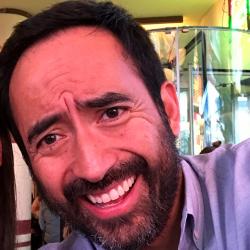
Ernesto Monter is a Transport Principal Specialist within the Transport Division at the Inter-American Development Bank (IADB). He is a highly skilled environmental engineer with 25 years of experience as transport and environmental specialist, with a particular focus on sustainability, environmental and social risk management in both the public and private sectors. Ernesto Monter currently leads the preparation and approval of complex loan operations at the IADB, and has spent most of his career assessing projects and seeking solutions to address adverse environmental and social impacts related to complex and challenging projects, mainly on the transport sector.
Dimitrios Papaioannou
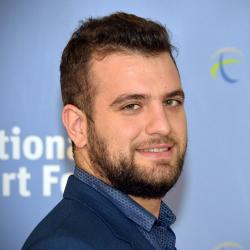
Dimitrios joined the International Transport Forum in November 2016. His principal areas of work within the ITF are urban/non-urban passenger models, urban accessibility, and passenger aviation. He is currently in working on the development of ITF’s urban and non-urban passenger models, which estimate and forecast transport demand, modal shares, and GHG emissions; and potential decarbonisation pathways. The models and their outputs are used to analyse transport policies and their impacts, and create meaningful policy recommendations. With respect to urban accessibility, he helped develop the Urban Access Framework for the project “Access and Safety in European Cities”. This project was funded by the European Commission, and developed an accessibility indicator database for all European cities with populations of over 500,000 people.
Before joining the ITF, Dimitrios completed a PhD in Transportation Systems at the MIT-Portugal Program at the Instituto Superior Técnico. In his dissertation, titled “Assessing the relation between mode choice, user satisfaction, and quality for Public Transport systems”, he developed a set of models addressing the connections between the various elements of public transport systems and user choices and satisfaction. Dimitrios has also worked as a Research Associate in Project Drawdown, an alliance of scientists, researchers, and other stakeholders whose aim is to combat climate change by modelling the effect of existing strategies regarding how to reduce GHG emissions, and proposing promising new strategies in this regard.
Dimitrios holds a MEng in Civil Engineering (with a specialization in Transport Planning) from Democritus University of Thrace, Greece, and a PhD Degree in Transportation Systems from the MIT-Portugal Program at the Instituto Superior Técnico, University of Lisbon, Portugal. Dimitrios is a Greek and Canadian national and speaks Greek, English, German, and French.
Tatiana Samsonova
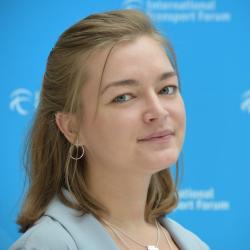
Tatiana joined the International Transport Forum in March 2017. Her work at the ITF has a focus on metropolitan governance of transport, urban mobility, access and safety as well as regulatory matters related to app-based mobility services. Within the accessibility line of work, Tatiana has contributed to the extension of the ITF Urban Access Framework initially developed for benchmarking accessibility levels in cities across Europe to Latin American region. Currently Tatiana is managing ITF work related to urban accessibility, a project on Zero Car Growth as well as organisation of 2019 Pre-Summit Research day in partnership with WCTRS, ECTRI and TRB.
Before joining the ITF, Tatiana spent a year working as GIS Analyst at the STT Group. There, she worked on the analysis of spatial data and contributed to the development of a methodology for monitoring of critical transport infrastructure. Before that, Tatiana was engaged in the work of HABIDATUM, a data analytics company assisting policymakers in understanding urban environment. There Tatiana has worked on a development of a visualization tool for the analysis of mobility patterns in Greater Moscow based on cell phone data.
Tatiana holds a Master Degree in Urban Governance from Sciences Po (Paris) and a Master and Bachelor Degree in Geography from Lomonosov Moscow State University. She is Russian national and speaks Russian, English and French.
Global Approach for Safer Motorcycling
Hall 4, Level +1
Logos.PNG [88]
Introduction
Increasing numbers of people in both developed and Low- and Middle-Income Countries (LMICs) are choosing to use Powered Two Wheelers (PTW). To secure safe and sustainable use of this low-polluting and low-congesting mode of personal mobility, transport planning policies need to integrate PTW-use and recognise the benefits that PTWs make in society, business and emergency transport.
According to the recent Global Status Report by the WHO, the proportion of PTW user fatalities increased to 28% of all traffic fatalities globally in 2016. Urgent action is needed to reverse this trend. Integrating PTW Safety policy requires immediate attention at all levels: international, regional, national, and local.
Goal and Approach of the Side Event
The goal is to discuss road safety problems related to powered two wheelers and ideas about effectively reduce these problems. Results of this event will be brought to the attention of the upcoming 3rd Global Ministerial Conference on Road Safety, relevant forums. groups and stakeholders.
After an introduction to the situation, an open roundtable discussion is held with global institutional experts, governments, industry, user organisations, road safety experts and other key stakeholders, moderated by Professor Fred Wegman. The audience will be invited to participate.
Confirmed Participants
- Minister Ángela María Orozco Gómez, Minister of Transport, Republic of Colombia
- Mr Prof. Anders Lie, Special Advisor, Swedish Ministry of Infrastructure
- Mr Andi Hartanto, Secretary General of the Federation of Asian Motorcycle Industries (FAMI)
- Mr Andrew McKellar, Secretary General, FIA Mobility
- Mr Edwin Bastiaensen, Secretary General, International Motorcycle Manufacturers Association (IMMA)
- Mr Ferry Smith, Steering Committee International Road Assessment Programme (iRAP) and Chair EuroRAP
- Mr Prof Fred Wegman. Professor Emeritus Traffic Safety at Delft University of Technology, Chairman of IRTAD – International Traffic Safety Data and Analysis Group
- Mr Jesper Christensen, Director of Public Affairs, International Federation of Motorcyclists (FIM)
- Mr Joel Valmain, Adviser to the Interministerial Delegate for Road Safety, Government of France
- Mr Nhan Tran PhD, Coordinator Unintentional Injury Prevention Unit, World Health Organisation (WHO)
- Mrs Susanna Zammataro, Director General, International Road Federation (IRF)
- Mrs Veronique Feypell de la Beaumelle, International Transport Forum
IMMA Road Safety Best Practices Contribution 2020 [91]
Contact: M. Edwin Bastiaensen, Secretary General, IMMA, e.bastiaensen@immamotorcycles.org [94]
Global Maritime Logistics Dialogue
MPA2, Level 0
Maritime logistics is essential for trade: obstacles in the maritime logistics chain have immediate repercussions on trade. The maritime logistics chain consists of many different actors with different roles that are highly interdependent. This means that the performance of the individual actors is to an important extent determined by the behaviour of other actors. There are currently no comprehensive performance indicators for the maritime logistics chain. What exist are indicators on logistics in general and on parts of the maritime logistics chain. As a result, there is a lack of visibility on the performance of maritime logistics chain: performance information is fragmented and often not publicly available. This lack of transparency makes it difficult to have evidence-based dialogue on bottlenecks. A win-win approach is possible if better performance information on the maritime logistics chain would be available.
The Global Maritime Logistics Dialogue brings together stakeholders from the maritime logistics chain, including representatives from the shipping sector, shippers, ports, terminals and freight forwarders. The format of this session is a round table discussion.
Main questions:
- What could good performance indicators for maritime logistics look like?
- What elements should be taken into account?
- How could stakeholders support the development of such indicators?
Pyers Tucker
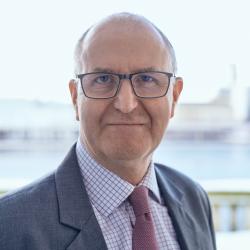
Pyers Tucker is responsible for developing Hapag-Lloyd’s long term strategy. He has been at Hapag-Lloyd for the last 5 years, running major company wide improvement programmes (eg latterly strategy). Before that he went through multiple stations, including: Maersk, DHL at Global Customer Solutions, and The Monitor Company. Prior to that he was in the British Army, latterly responsible for operations in Bosnia. During that time he was also the personal staff officer to Commander of UN Forces in Bosnia and has given evidence at 6 trials at the Bosnia war crimes tribunal in The Hague.
Tan Chong Meng

Tan Chong Meng is the Group Chief Executive Officer of PSA International, a leading global port group with operations in Asia, Europe, Middle East and Latin America. PSA is headquartered in Singapore and owned by Temasek Holdings. Through its 40 port projects around the world, with flagship operations in Singapore and Antwerp, PSA handles 1 in 10 global container movements annually, serving all major international shipping lines and other stakeholders in the maritime supply chain.
Chong Meng joined PSA on 1 October 2011, bringing with him a wealth of experience in managing the complexity, diversity and breadth of a global business. Together with his management team, he is responsible for the overall performance of the PSA Group and provides strategic direction on growing the company’s value through maximising assets, developing PSA port positions and engaging global business partnerships.
Outside the PSA Group, Chong Meng serves as Chairman of the JTC Board, a non-Executive Director on the board of the National University Health System (NUHS), and a member of the International Advisory Panel of Singapore’s Public Service Division. He was previously a Board Member of IE Singapore.
Before joining PSA, Chong Meng served as the Executive Vice President, Global Commercial, Shell Downstream, of the Royal Dutch Shell Group. He led six global businesses – many of which are world leaders engaged in the marketing and sale of fuels, lubricants and specialty products to commercial customers vis-à-vis Aviation, Marine, Industrial, Land Transport, Construction and Liquefied Petroleum Gas. A global leader with more than 20 years of experience in Shell, Chong Meng worked in USA, Europe, China and Singapore, holding various senior leadership positions that spanned management, sales, marketing, trading, refinery operations, customer service and merger & acquisitions.
Prior to Shell, Chong Meng had also worked in various positions with Singapore’s Ministry of National Development for five years.
Olaf Merk
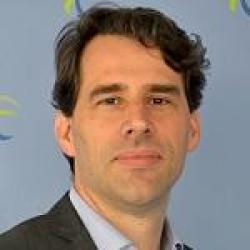
Olaf Merk is ports and shipping expert of the International Transport Forum at the OECD. As such, he has directed and written on a range of subjects, including ports policy, mega-ships, cruise shipping and decarbonisation of maritime transport. In previous posts at the OECD he worked on port-cities, urban governance and infrastructure finance. Prior to that he worked at the Netherlands Ministry of Finance.
Lamia Kerdjoudj Belkaid

Lamia Kerdjoudj-Belkaid is the Secretary General of FEPORT, the Federation of European Private Port Operators and Terminals since March 2014. She has a professional experience of more than 19 years during which she held different positions within the maritime and logistics sector. Among others, she has been for more than seven year the Public Affairs manager of the French Shipowners' Organization. Between 2009 and 2012, she has also been appointed as a senior expert and advisor in the framework of several European projects financed by different DGs of the European Commission. She has also worked for private companies and corporations (among others Capmarine, Budd SA, CATRAM, EGIS) and has been in charge of consulting and business development assignments for large multinational companies. She is since 12 years a lecturer in Business schools in France and Germany in the field of stakeholders' management and multilateral negotiations.
- lock_open Restricted participation
Global New Mobility Coalition 5th meeting
Hall 5, Level +1
Global New Mobility Coalition 5th meeting: SEAM Governance - from frameworks to pilots
Autonomous, electrification, and shared mobility technologies have the potential to revolutionize the way people move, how cities are planned and the amount of emission released into to the environment. However, special consideration should be taken to ensure that we avoid unintended, negative side effects that may arise with these emerging technical capabilities. To ensure we are shifting to sustainable, human-centered mobility, the three socio-technical revolutions should be steered in an integrated and constructive manner.
In late 2018, the Global New Mobility Coalition (GNMC) was formally launched at the World Economic Forum's Centre for the Fourth Industrial Revolution (C4IR) in partnership with ClimateWorks Foundation. The goal of the Coalition is to co- advance sustainable and inclusive mobility through the piloting of governance and business frameworks and tools that integrate shared, electric, and autonomous mobility (SEAM) solutions. The coalition is comprised of North America, EU, and Asian partners from the public, private, third, and academic sectors. GNMC members harness their relative advantages for propelling complementary knowledge-to-action through core-projects and projects supporting members' work.
This Stakeholder Event is the GNMC 5th meeting (and 1st meeting in the EU). During the meeting, GNMC lead will release the co-developed SEAM Governance Framework, and kick-off its pilot experimentation stage.
If you are interested in learning more, please do not hesitate to contact Canalp Gundogdu at Canalp.Gundogdu@weforum.org [95]
Connecting places and people: Which policies for better integration of cities and urban regions?
Hall 1, Level +1
Private motorised transport delivers tremendous value to users but has an insatiable demand for space. Most big cities and their surrounding regions also depend on mass transit systems to get people to where they need to be. The quality of mass transit services is critical: overcrowded, slow and unreliable services force people into cars and motorcycles on already congested roads or deny access to opportunities entirely. Poor, congested transport systems constrain productivity and have a severe impact on the wellbeing of commuters.
This plenary will examine the transformation of urban mobility policies and the shifting focus from throughput of vehicles to delivery of access. Panellists will discuss the investments needed for urban regions to prosper and the regulatory initiatives needed for efficient shared mobility and more integrated transport and land-use planning.
Despite the difficulties of establishing on-demand shared mobility, there are now promising pilots in European and US cities licenced by metropolitan transport authorities to complement transit services and larger scale operations in cities in South East Asia. Experience here and in Mexico has demonstrated that in cities dependent on informal mass transit, demand-responsive shared mobility services have great potential because of the increase in service quality at reasonable cost that they deliver. Regulatory obstacles have been formidable for all of these services and a permissive regulatory approach is advisable given the potential of these services to substitute for solo car and motorcycle traffic.
Key facts:
- Los Angeles has opened 100 miles of light rail since 1990, with four extensions under construction and many more planned.
- China’s cities opened 2 000 kilometres of metro line in the last five years.
- The Metro de Grand Paris will comprise 200 kilometres of automated regional metro, doubling the length of the capital’s metro lines by 2030 at a cost of EUR 38 billion.
- London’s new Elizabeth Line regional railway, is expanding overall metro capacity in Britain’s capital by 10%. The Greater Manchester Area, the UK’s second conurbation, has the country’s most over-crowded commuter rail system, with only half of the trains between Liverpool, Manchester and Leeds arriving on schedule.
- Public transport carries 66% of weekday passenger trips in Mexico City. But only 5 million use the metro and 1 million Bus Rapid Transit, while informal microbuses carry 12 million passengers a day.
Lead questions:
- What are the elements ingredients for sustainable, cost-effective solutions to improving connectivity in cities and their surrounding regions? Can consensus be built on priorities across the region?
- How can better spatial and physical accessibility contribute to social and economic inclusion?
- Capital cities invest in metros, but what should be the focus for regional centres?
- Funds for mass transit are scarce; can pooled shared mobility fill the gap?
Background reading:
- Regulating App-Based Mobility Services, ITF Roundtable Report, 2019 https://www.itf-oecd.org/regulating-app-based-mobility-services [96]
- App-Based Collective Transport Services in Mexico, ITF Discussion paper, 2019 https://www.itf-oecd.org/app-based-collective-transport-service-mexico-city [97]
- Policy Directions for Establishing a Metropolitan Transport Authority for Korea's Capital Region, ITF 2019 https://www.itf-oecd.org/policy-metropolitan-transport-authority-korea [98]
- Access and Safety in European Cities, ITF 2019, https://www.itf-oecd.org/accessibility-and-safety-european-cities [99]
- Integrating Urban Public Transport Systems and Cycling, ITF Roundtable Report, 2018 https://www.itf-oecd.org/integrating-urban-public-transport-systems-cycling [100]
Ali Aslan

Ali Aslan is an international television presenter, moderator and journalist. His career has included working for global news networks such as CNN, ABC News, Channel News Asia and Deutsche Welle TV.
Mohamed Mezghani

Mohamed Mezghani has been working for more than 25 years in public transport and urban mobility related fields. He has been elected Secretary General of the International Association of Public Transport (UITP) and will be taking office on 1/01/2018. He has been Deputy Secretary General of UITP the since January 2014. Until then, he has worked at UITP as Senior Manager (1999-2001) and Knowledge Director (2001-2006) chairing the department developing knowledge-related services for UITP members: professional training, research projects, thematic studies, technical advice, conferences, networking activities, information centre, etc. From 2006 till 2013, he has worked as independent consultant and Adviser to UITP on several technical assistance and training projects in Africa and the Middle-East and managed a number of projects involving numerous experts and multidisciplinary teams. Before joining UITP, M. Mezghani has been working as consultant in the French group, BCEOM, (from 1990 to 1999) more particularly in the urban mobility field. He has managed and carried out projects including policy definition, technical assistance and research activities in several countries in Europe, sub-Saharan Africa and Arab countries. During his collaboration with the French Agency for Environment and Energy Management, ADEME, (from 1988-1990), M. Mezghani carried out actions aimed at identifying and evaluating transport energy efficiency projects likely to be financed by the Agency in France. He has been graduated in Industrial Engineering (1987) from Ecole Nationale d’Ingénieurs de Tunis, Tunisia and has a Master in Transport (1988) from Ecole Nationale des Ponts et Chaussées, Paris, France.
Fredrick K. Schroeder
Dr. Schroeder is the President of the World Blind Union, an organization representing the needs of the estimated 253 million blind and partially sighted people around the globe.
Dr. Schroeder has lead the WBU’s work to establish an international standard requiring electric and hybrid vehicles to emit a minimum alert sound when traveling at slow speeds. Electric and hybrid vehicles are nearly silent when traveling below 20 KPH, making pedestrian accidents more frequent. Before expanding his work to the international stage, Dr. Schroeder had a long history of advocacy in the United States at the local, state and national levels. In 1994, President Bill Clinton appointed Dr. Schroeder to serve as the Commissioner of the Rehabilitation Services Administration—the federal agency that provides the majority of the funding for employment and independent living services for people with disabilities in the U.S. Today, Dr. Schroeder is a research professor with San Diego State University.
Florent Menegaux
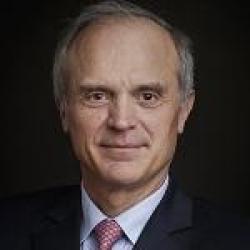
Florent Menegaux is the Group Senior Executive Vice President and Chief Operating Officer of the Michelin Group. He is also a Member of the Group Executive Committee. After graduating with a degree in finance, management and economics, Florent Menegaux joined Price Waterhouse in 1986 as a consultant. He was soon appointed manager, specializing in interest rate risk control and management for banks. In 1991, Exel Logistics France, a logistics and transport company, offered him the position of Finance Director. Six months later, he was promoted General Manager. From 1995 to 1996, Florent Menegaux was General Manager of the General Cargo Transport division for the Norbert Dentressangle Group. In 1997, Florent Menegaux joined Michelin as Commercial Director for truck tires in the United Kingdom and the Republic of Ireland. In 2000, Michelin appointed him Sales Director for Truck Tires Original Equipment and Replacement markets for North America. In 2003, he became head of Truck Tires for South America. In 2005, he was appointed head of the Africa – Middle East Zone. In January 2006, Florent Menegaux became responsible for the Group’s Passenger Car and Light Truck Tire Replacement Business Unit for Europe, before being appointed Executive Vice President for the Passenger Car and Light Truck worldwide activities in 2008. He also oversees Michelin’s Motorsports activities and Materials business. In December 2014, he was appointed Chief Operating Officer and then Senior Executive Vice President of the Michelin Group in 2017. Since January 2018, he also supervises the Group’s Business Directions, and the Manufacturing, Supply Chain and Customer Experience Operational Directions.
Seleta Reynolds

Seleta Reynolds is General Manager of the Los Angeles Department of Transportation (LADOT) appointed by the Administration of Mayor Eric Garcetti. Ms. Reynolds is responsible for implementing Great Streets for Los Angeles, a plan to reduce traffic fatalities, double the number of people riding bikes, and expand access to integrated transportation choices for Angelinos and the region. Ms. Reynolds has over 18 years of transportation experience throughout the United States. She has advised transportation technology companies like WalkScore, contributed to the state-of-the-practice as an Association of Pedestrian and Bicycle Professionals Board Member, mentored young professionals through Women’s Transportation Seminar, and nurtured research on Transportation Research Board committees. Ms. Reynolds serves as the President of the National Association for City Transportation Officials.
Gloria Hutt Hesse

Ms. Hutt Hesse holds a degree in Civil Engineering from the Catholic University of Chile and she has completed International Finance and Business Administration programs at Georgetown University. She was a Professor for the Master’s in Public Policy program in the School of Economics and Business of University of Chile. From June 2014 to January 2018, she was a partner of Quiz Consulting, specializing in transportation studies. She was a member of the board of directors of the Mejillones port facilities company Complejo Portuario Mejillones and consultant for the think tank Consejo de Políticas de Infraestructura and think tank Horizontal. For 12 years, Ms. Hutt Hesse was a partner and Regional Director for Latin America at Steer Davies Gleave, a prestigious British consulting firm specializing in transportation. There she was in charge of operations in Chile, Colombia, and Puerto Rico, and later broadened the presence of the company to Brazil and Mexico. She was a founder member and also the coordinator and general manager for the Evópoli political party. From 2010 to 2014 she acted as Transportation Viceminister. During her office, she coordinated the creation of the National Transportation Policy and development master plans for public transportation and national port and rail systems, proposing a long-term vision for Chilean transportation. A year ago Gloria Hutt Hesse became Minister of Transport and Telecommunications in Chile. In her spare time, she does gardening and follows her passion of designing sewing.
Burkhard Jung

With a population of over 500 000, Leipzig, is the largest city in the German federal state of Saxony. Burkhard Jung has been mayor since 2006. He is a representative of the Germany's Social Democratic Party.
Keechoo Choi
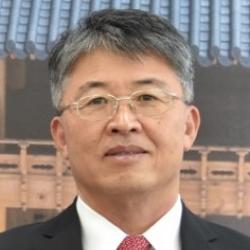
Dr. Keechoo Choi is Chair of the Metropolitan Transport Commission of Korean Government. He is also a professor of transportation and a director for the National Engineering Research Center [ERC] of Sustainable Urban Transportation at Ajou University.
He is the ex-president of the Korean Society of Transportation [KST] 2017-2019 and ex-chairman of the Korean PIARC (World Road Association). His specialities include travel demand forecasting, travel time estimation for ITS and C-ITS, sustainable transportation with environmental concerns, and public transportation. His recent research area also covers autonomous and connected vehicle implementation with infrastructure revision. He is the founder and current Editor-in-Chief of International Journal of Sustainable Transportation (SSCI in Transportation), editorial board member of Journal of ITS, both by Taylor and Francis, also a board member of Transportmetrica Part B. As director of the Smart Sustainable transportation research center, Chairman of Korean PIARC, and president of KST, he eagerly attends TRB, PIARC, WCTR, and ITS WC.
- how_to_reg Booking required
- location_on Off-site
